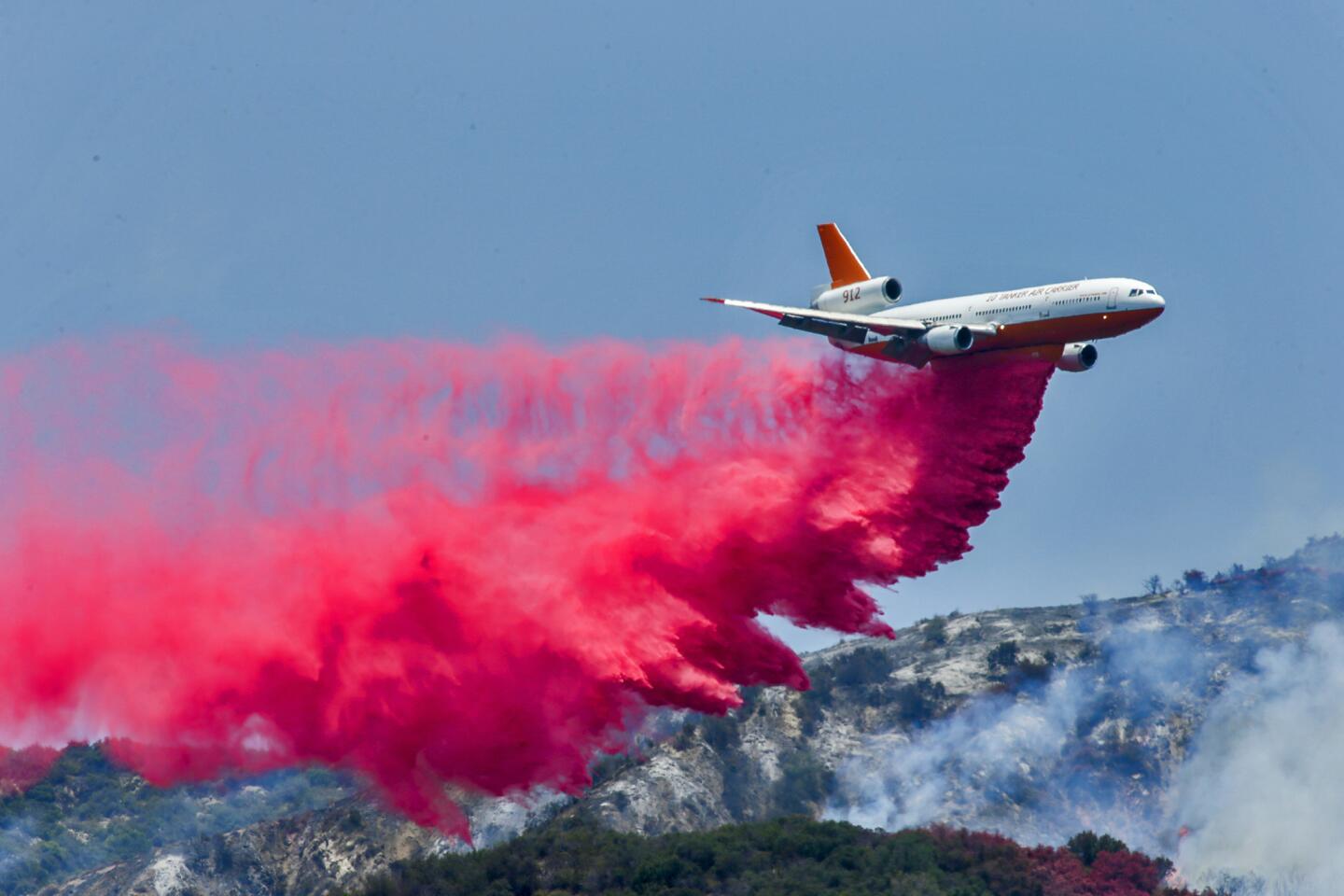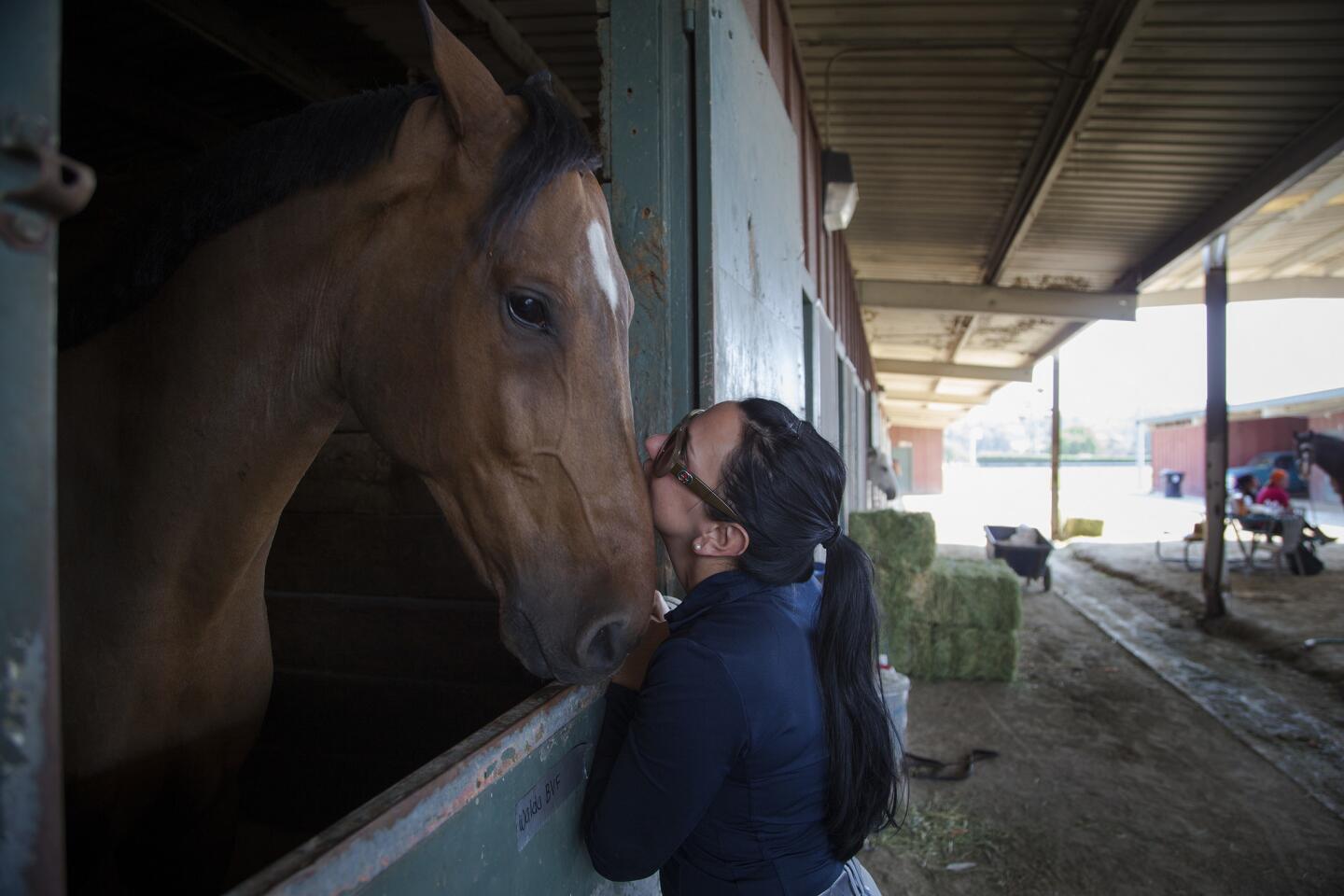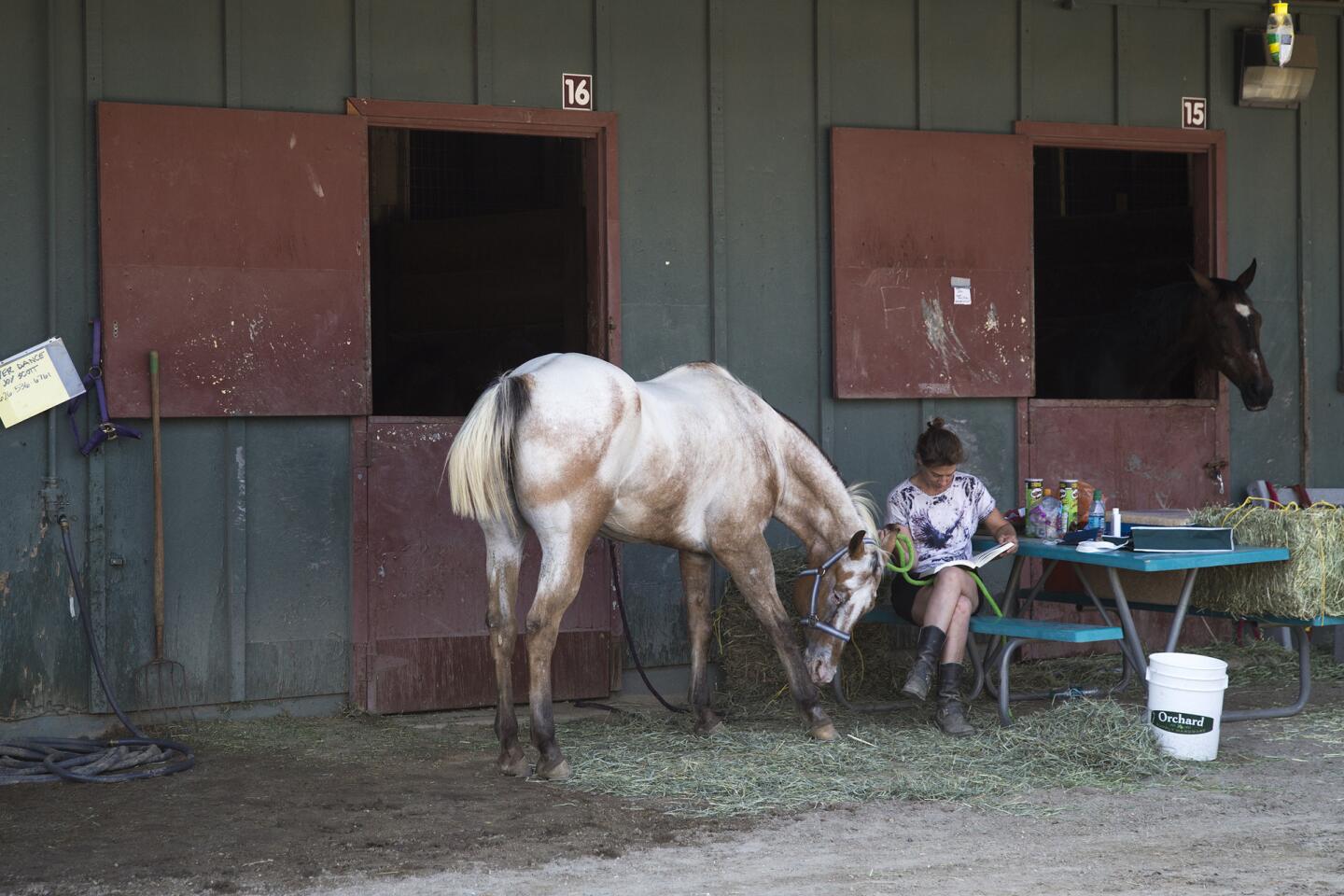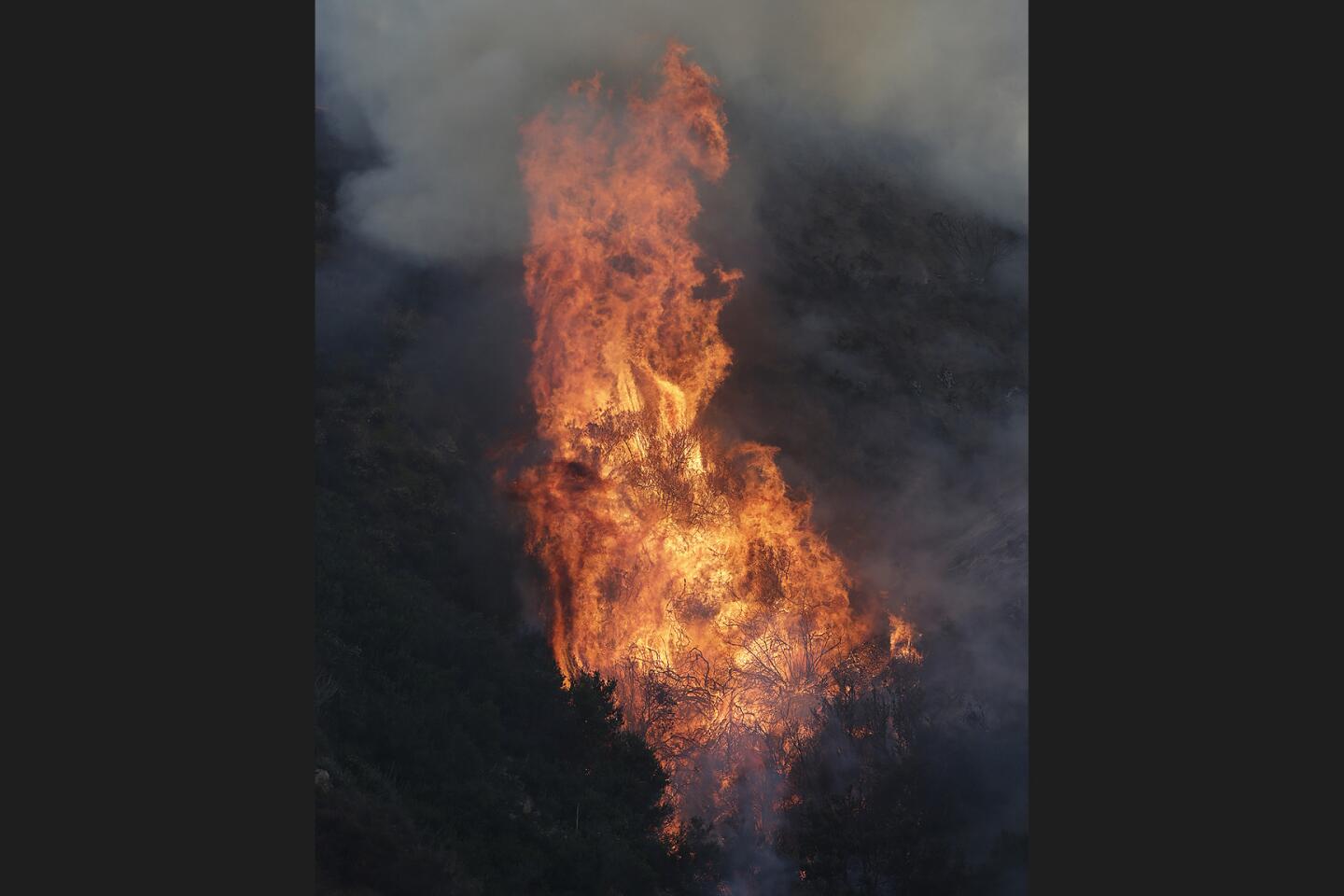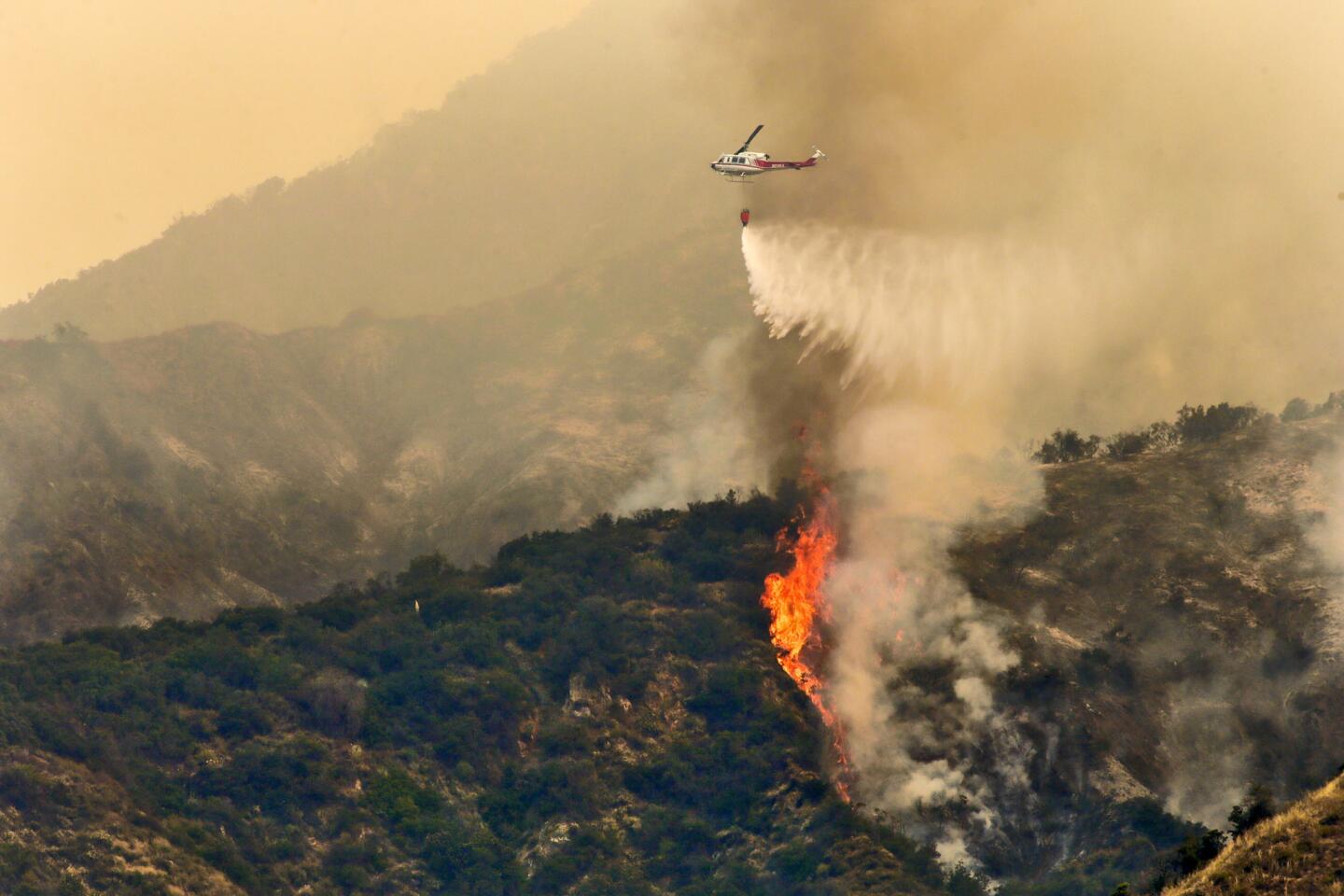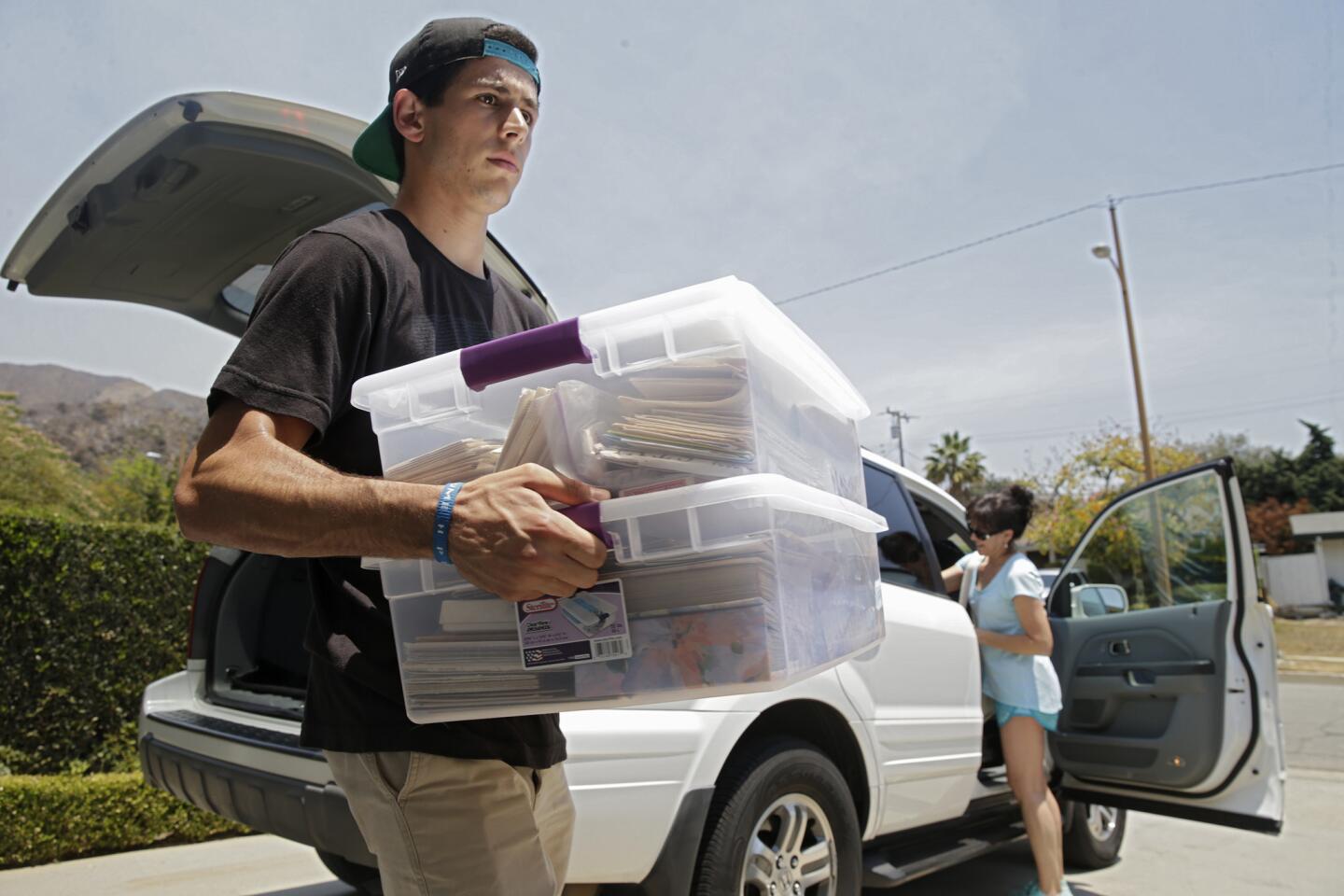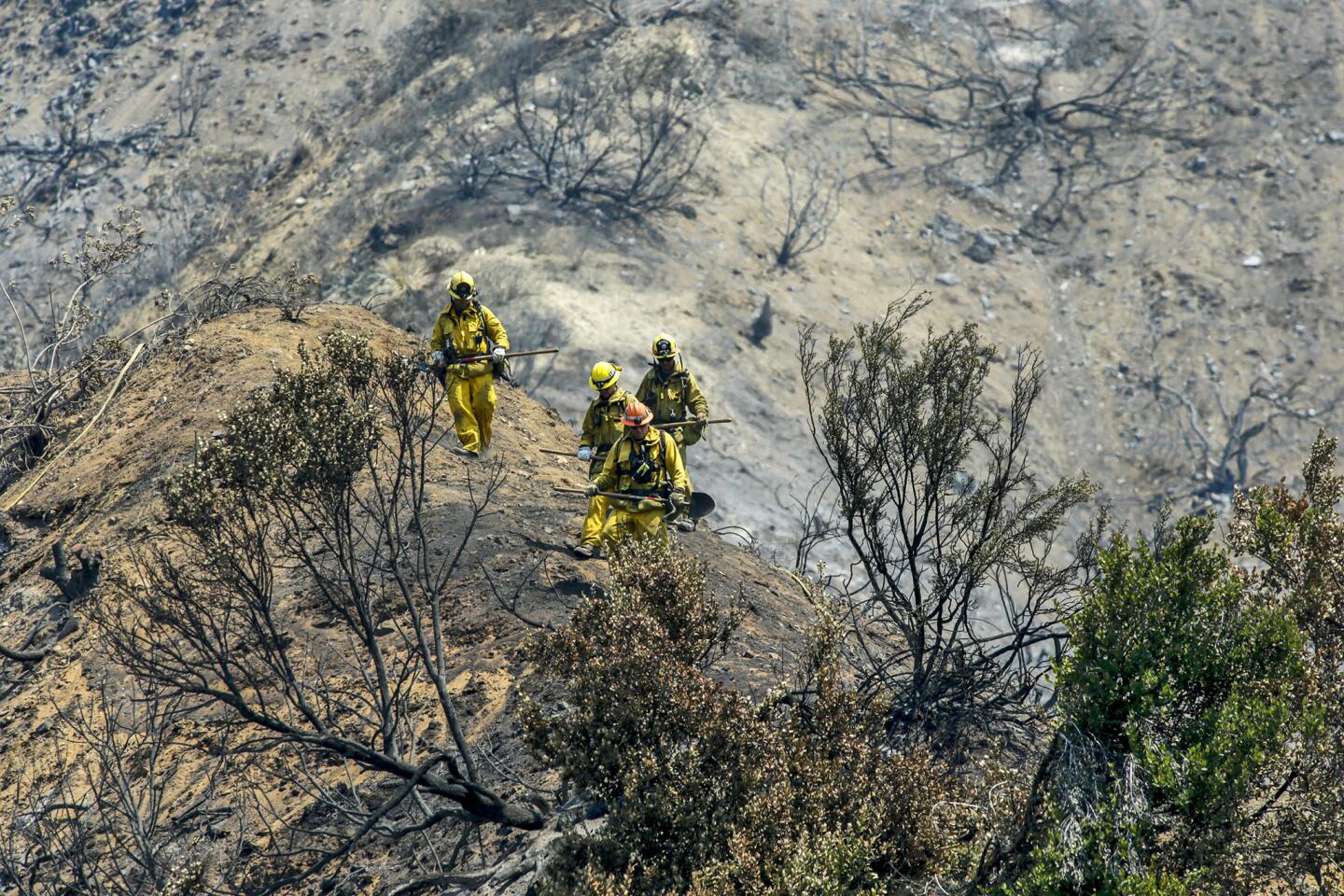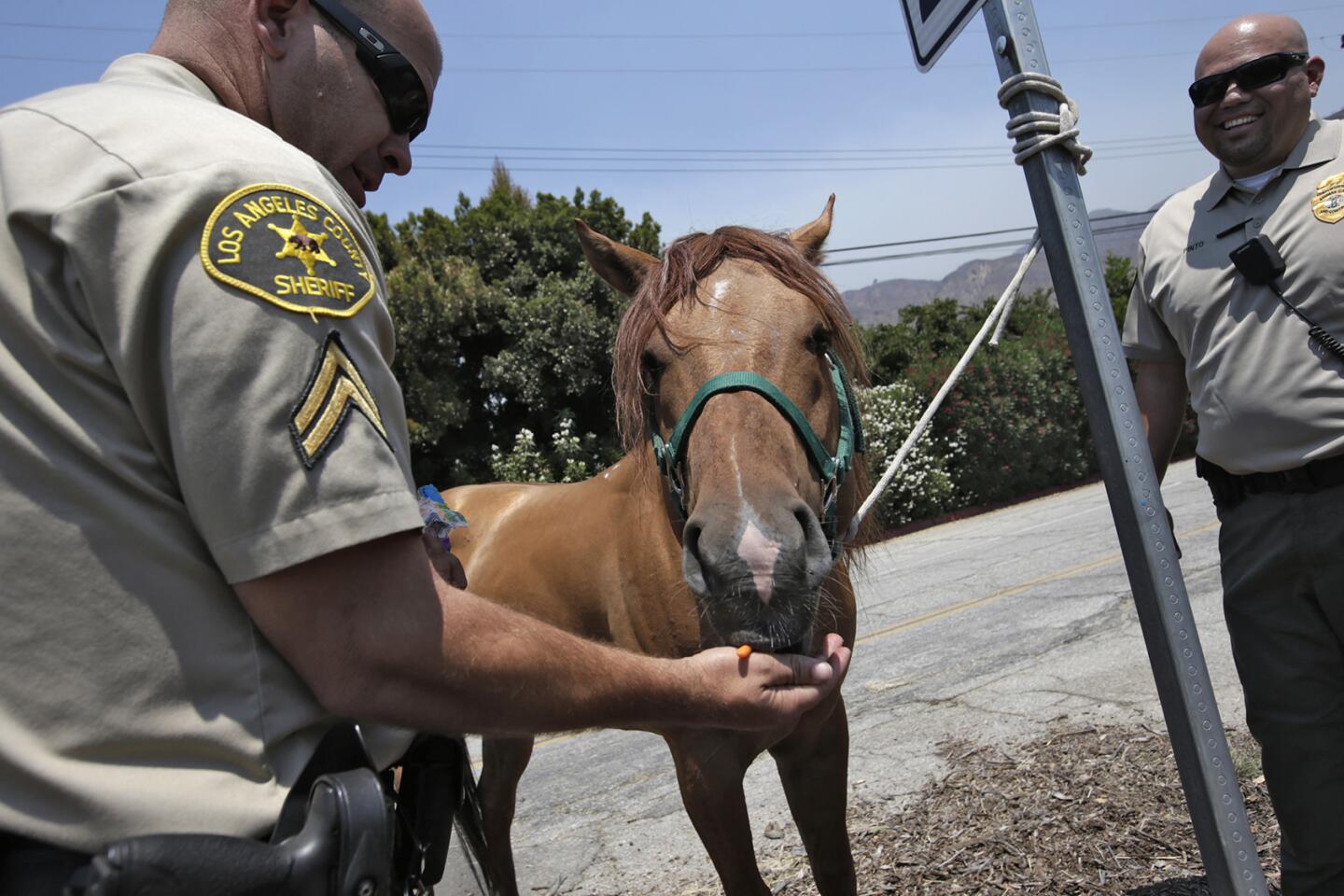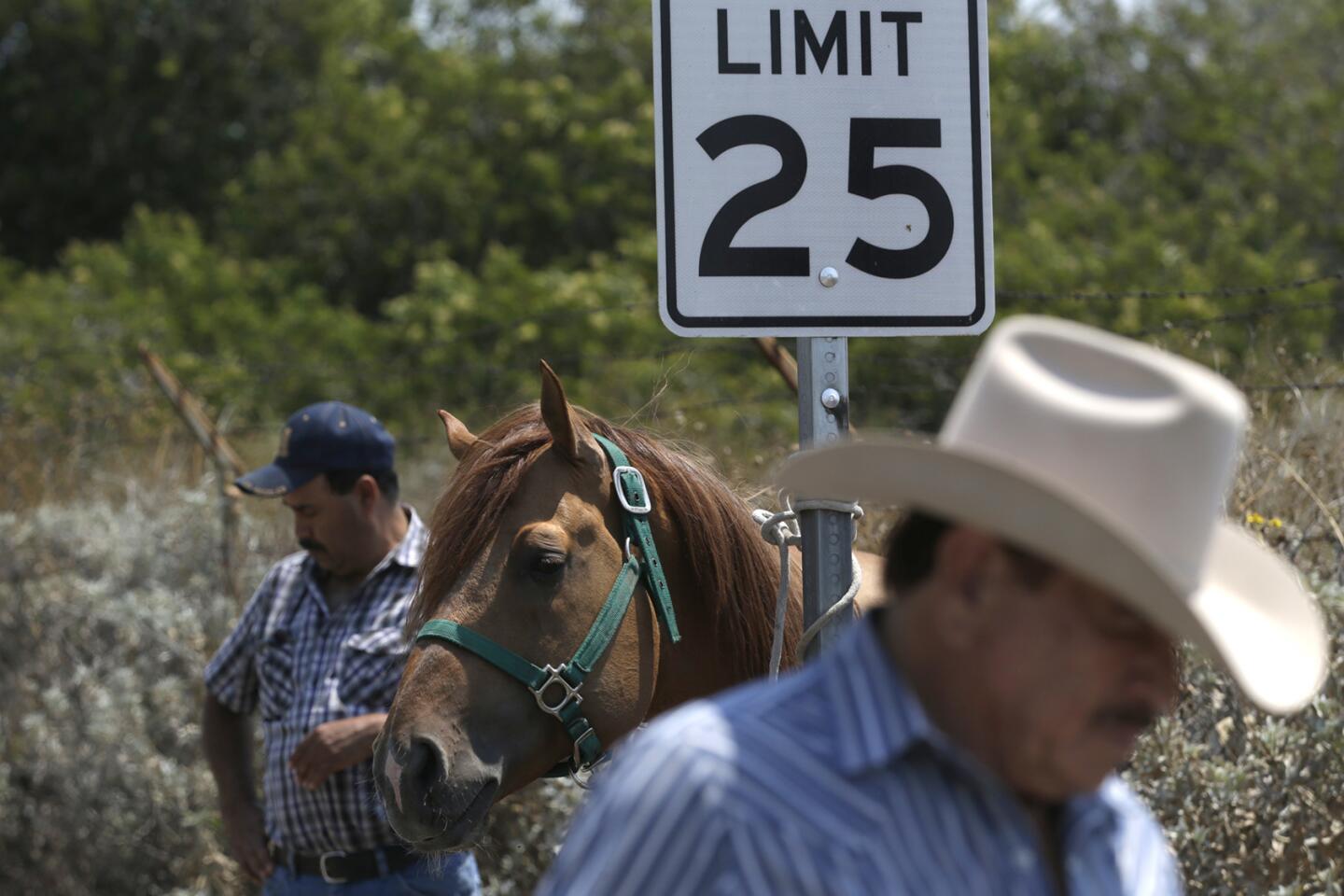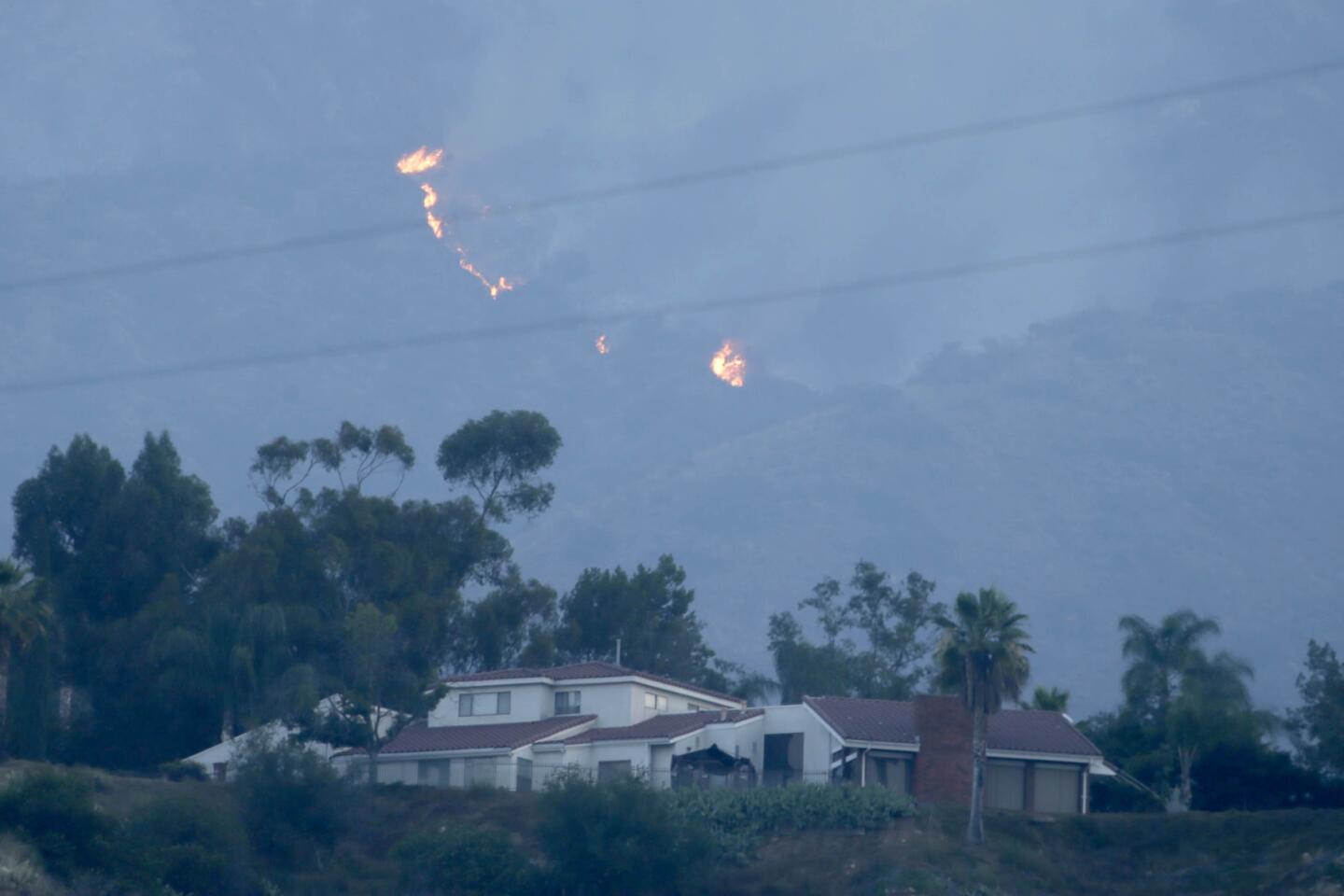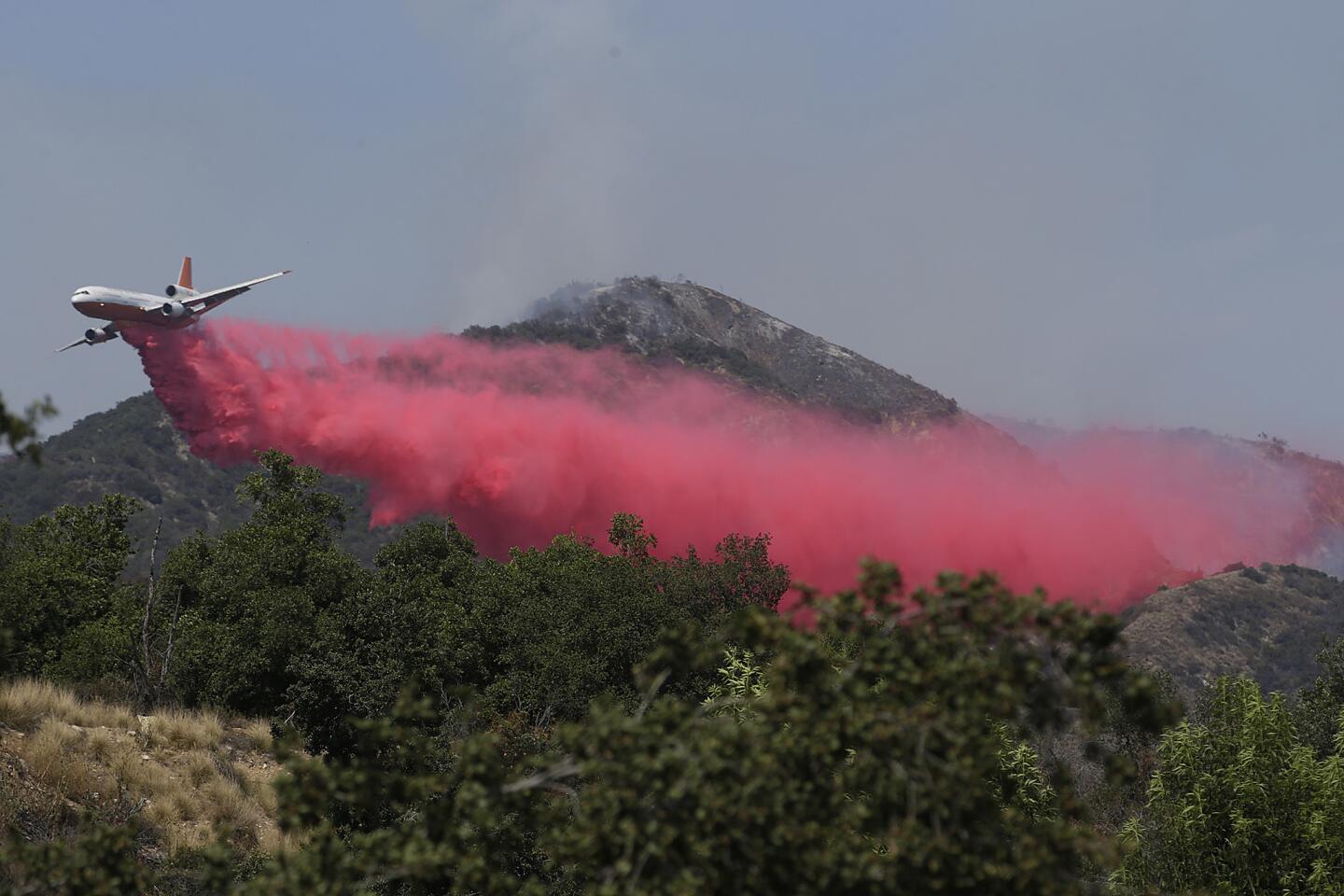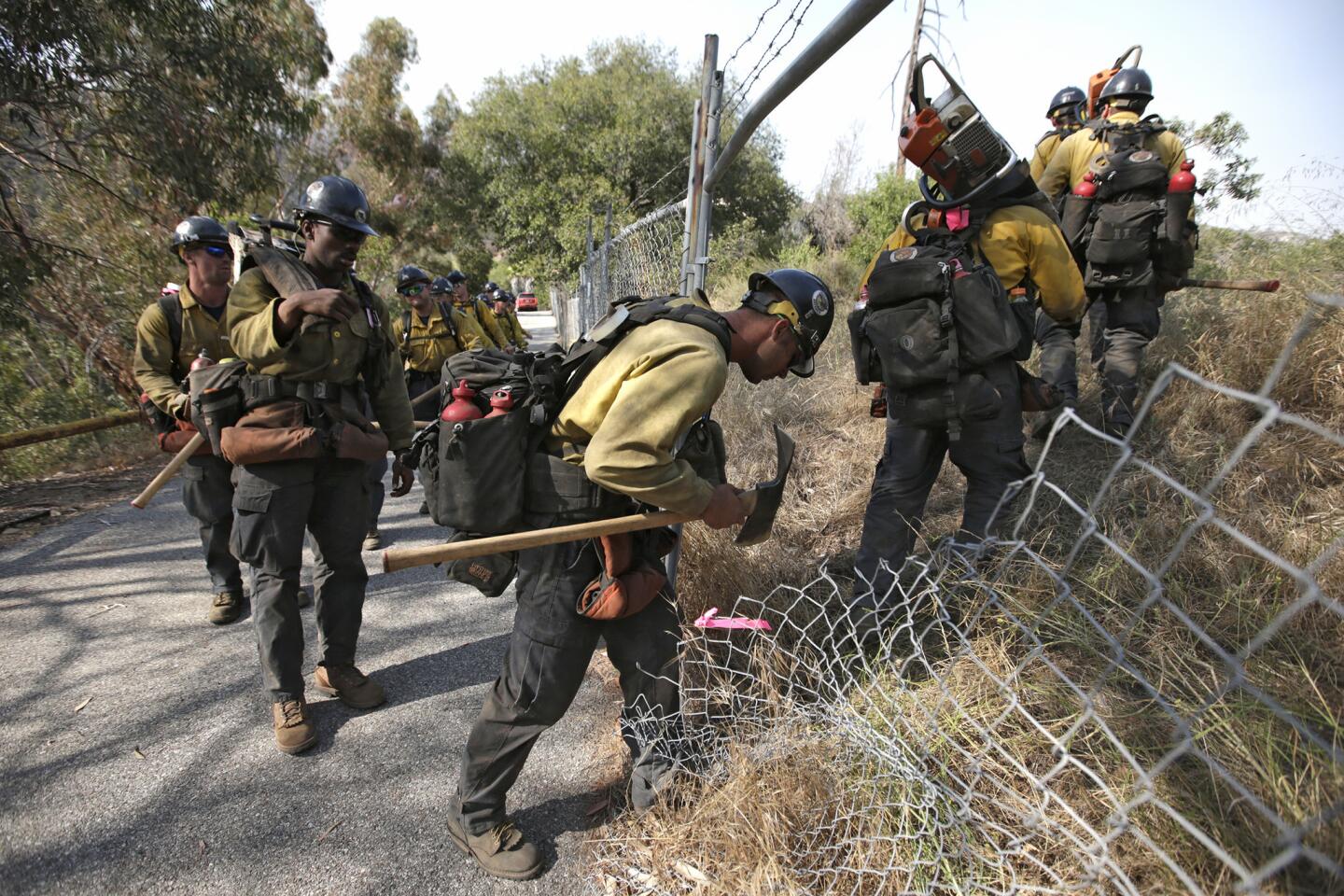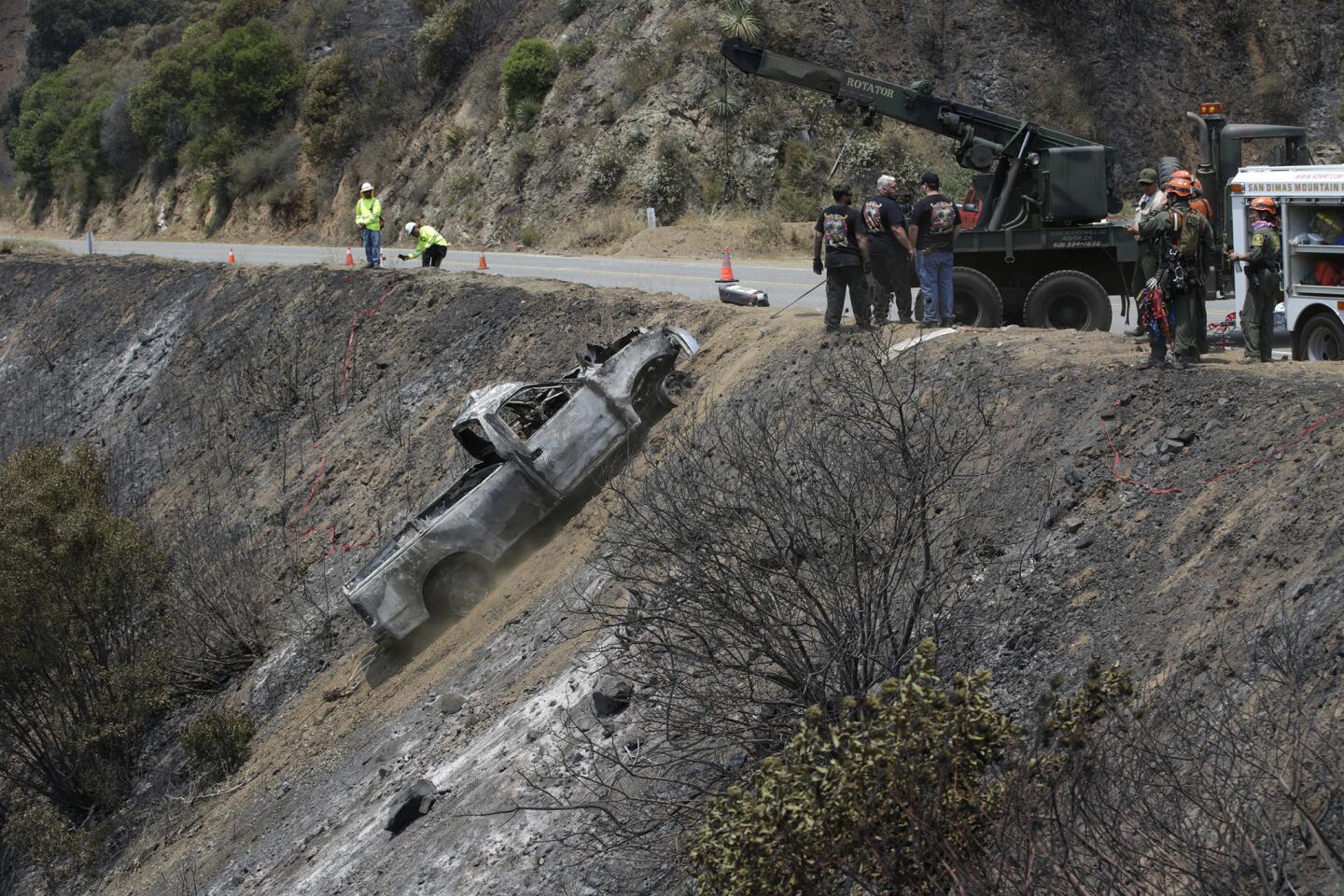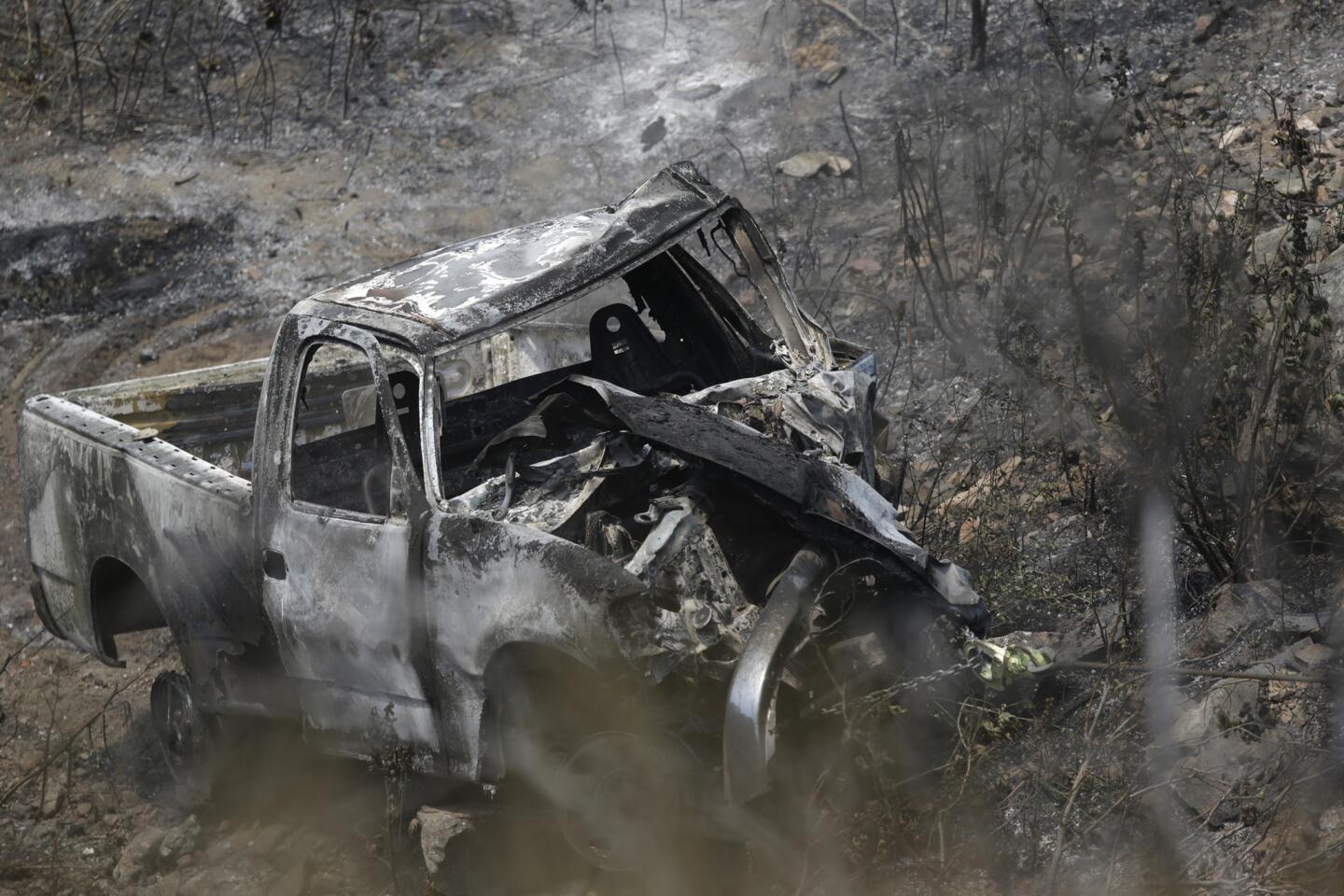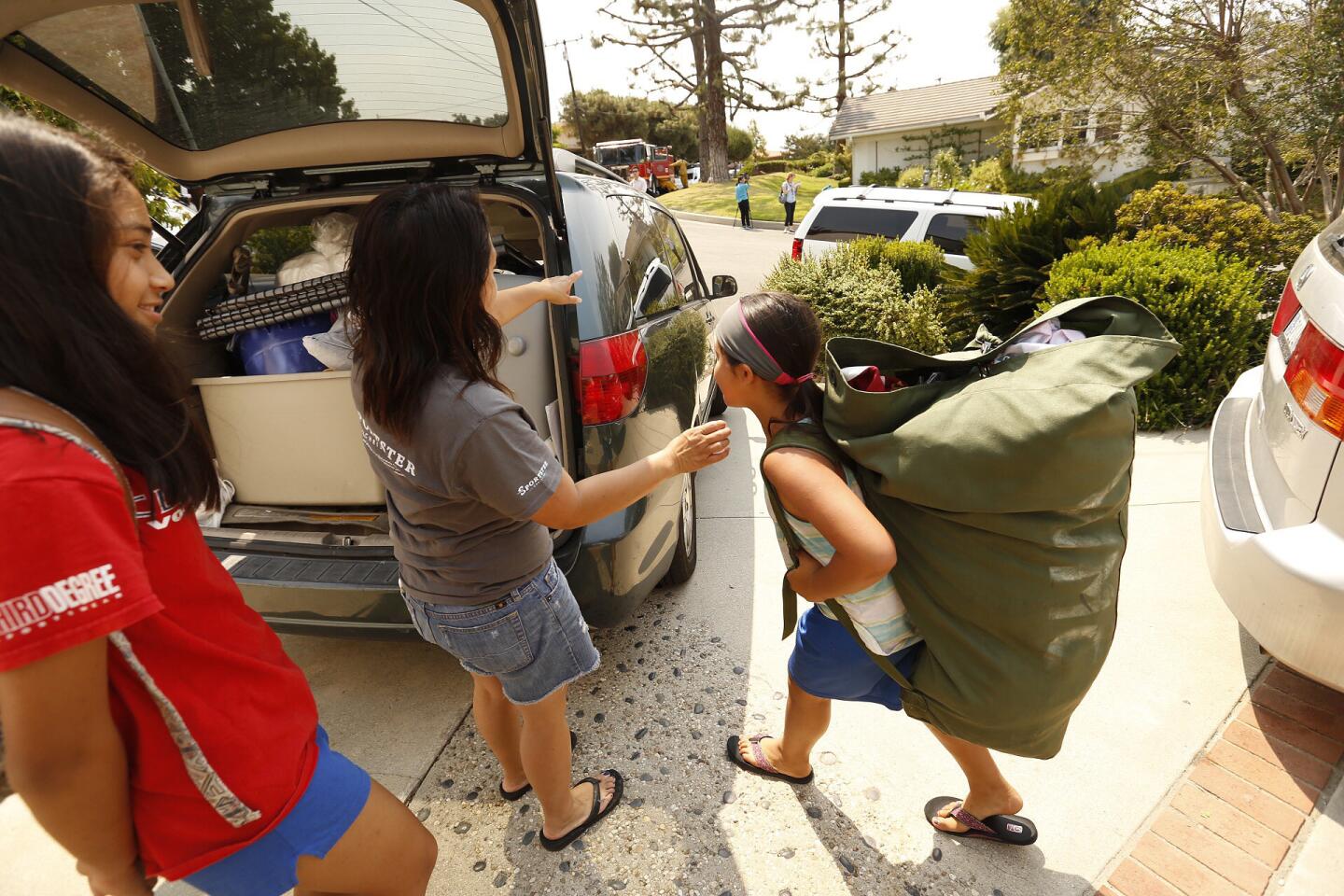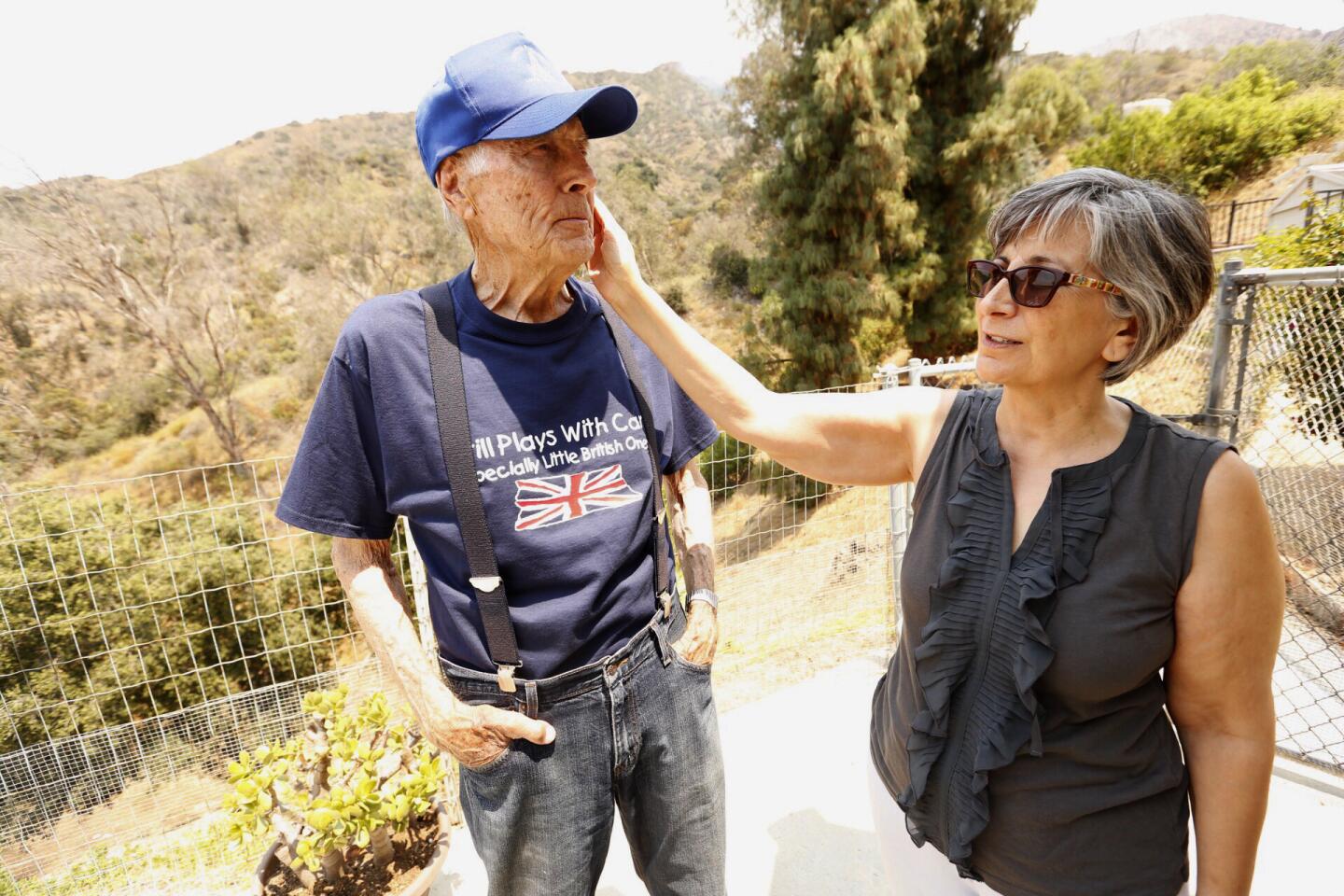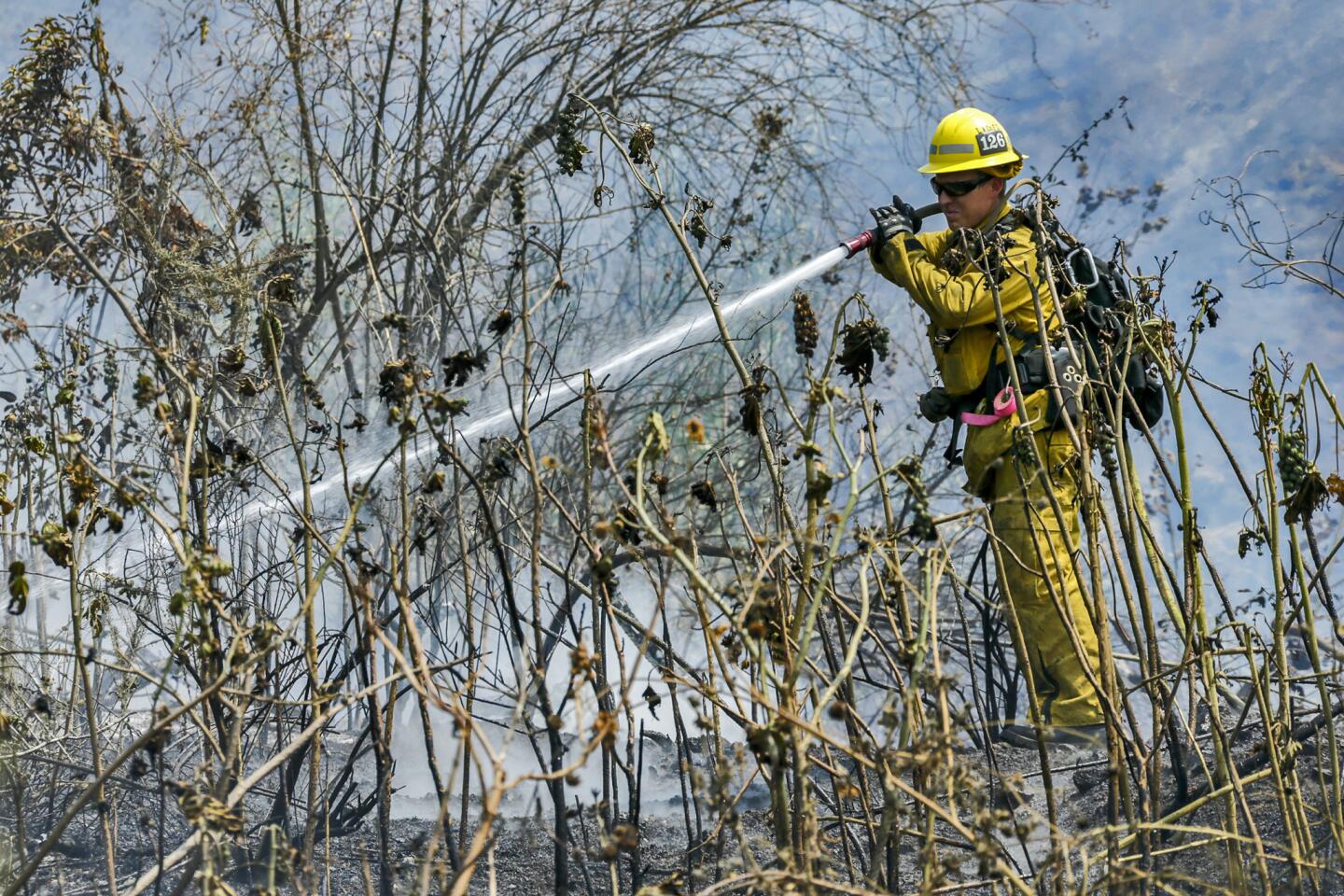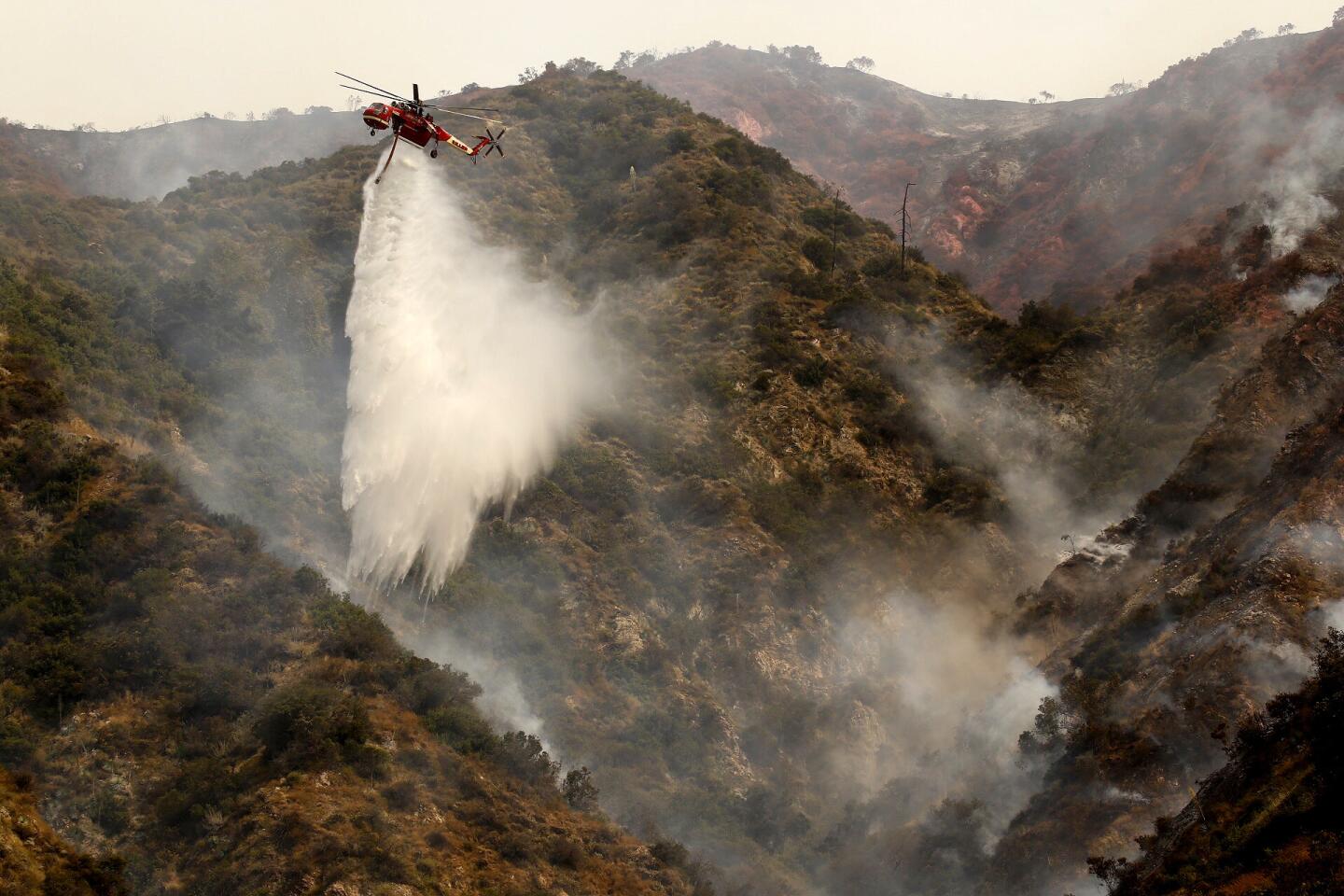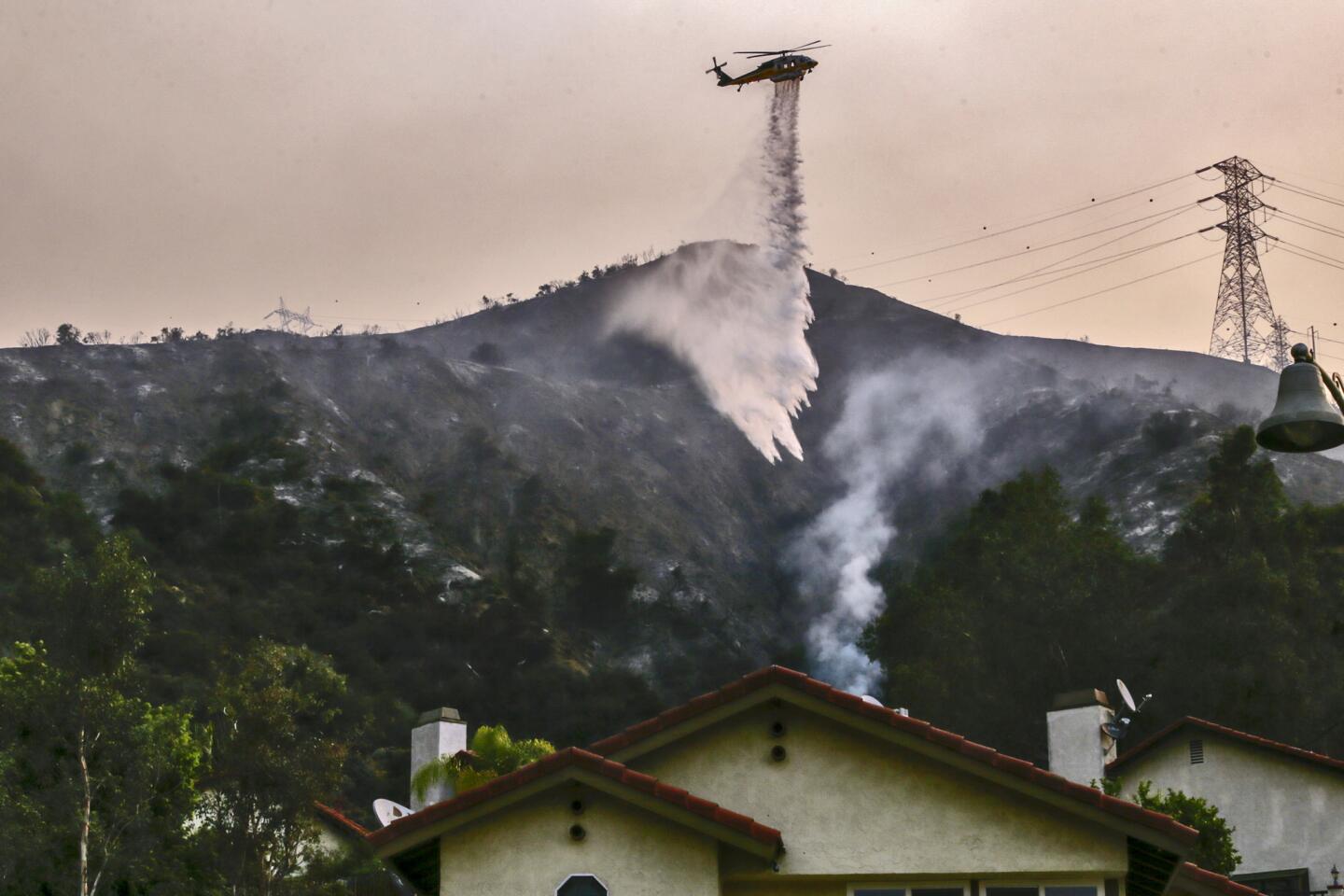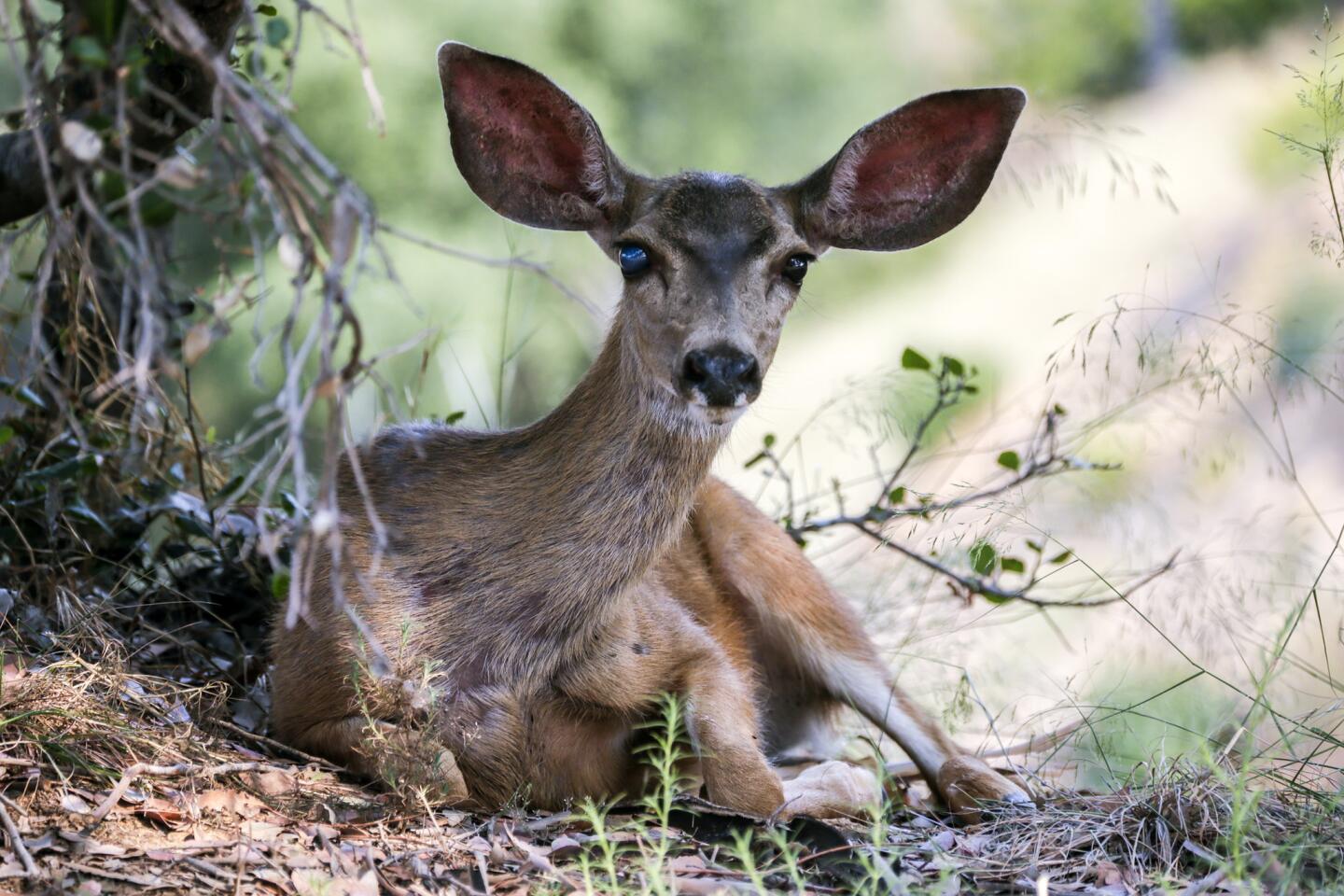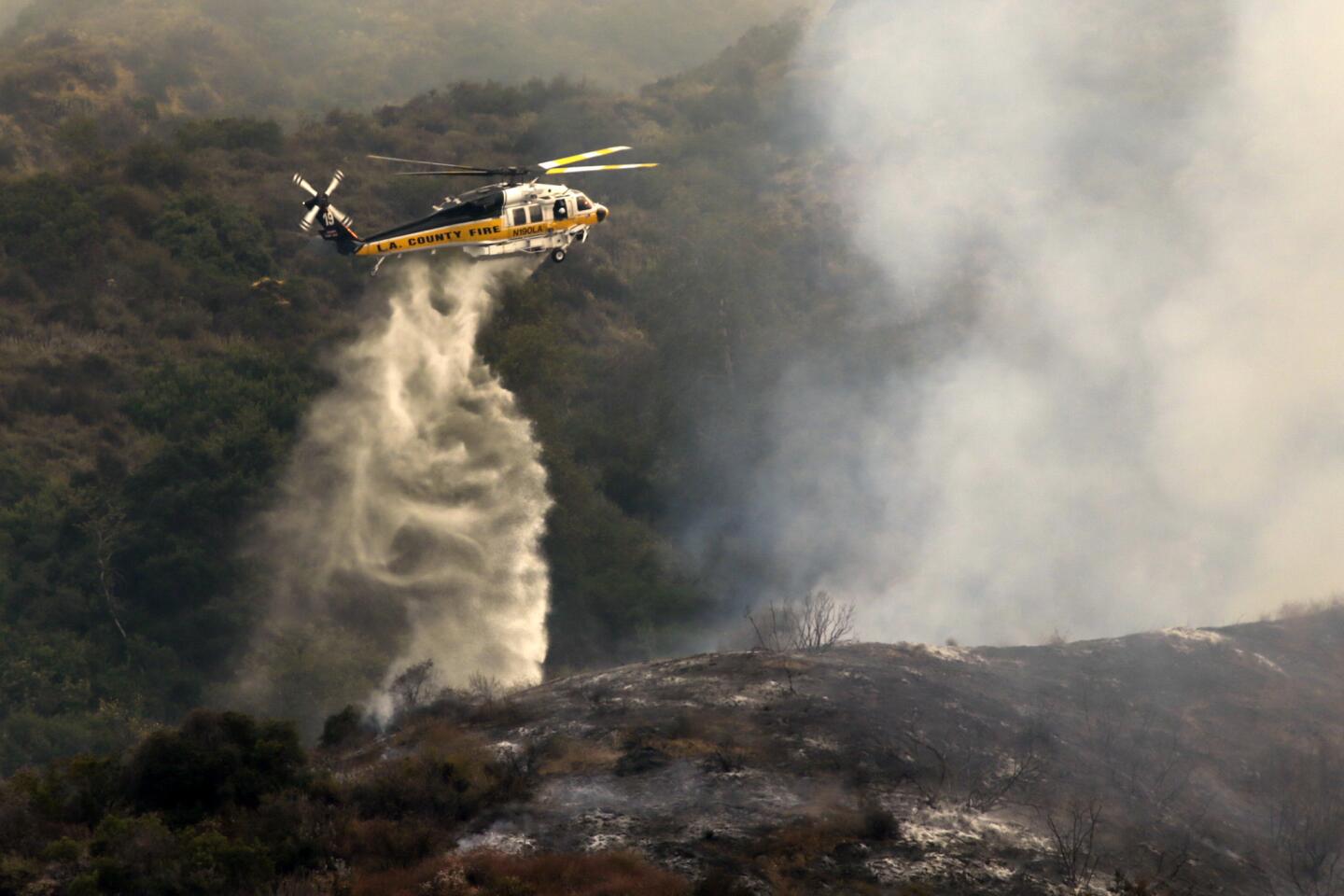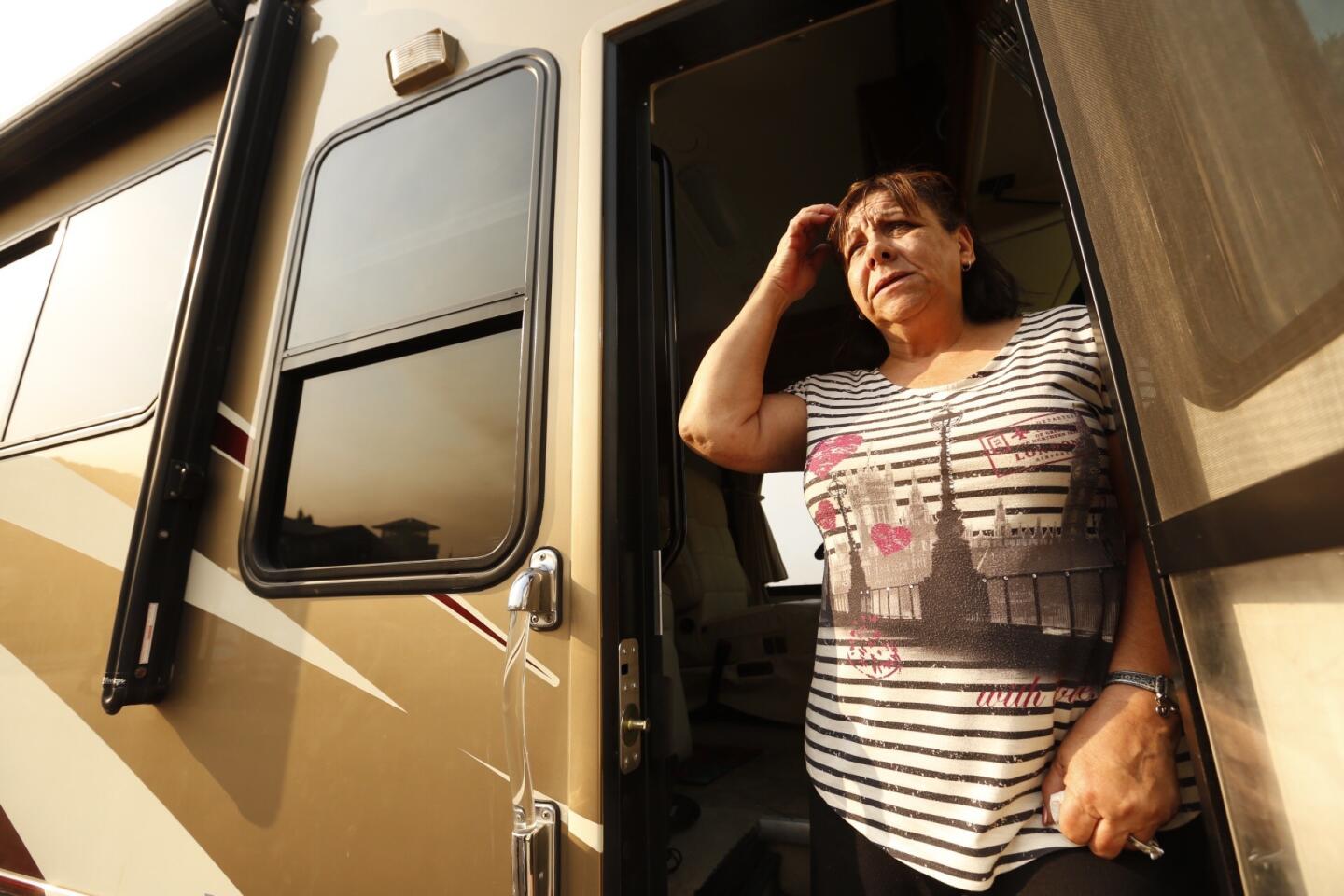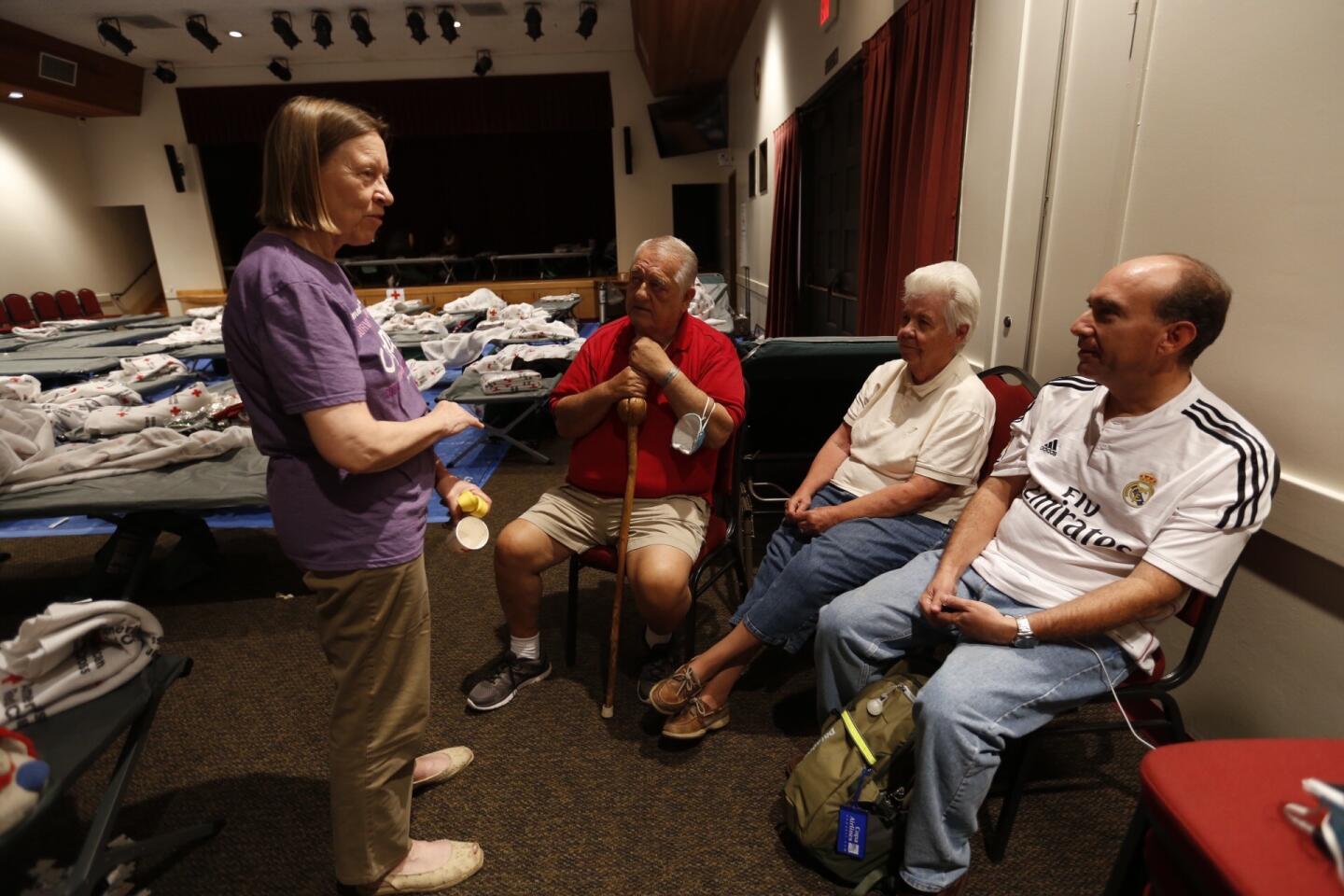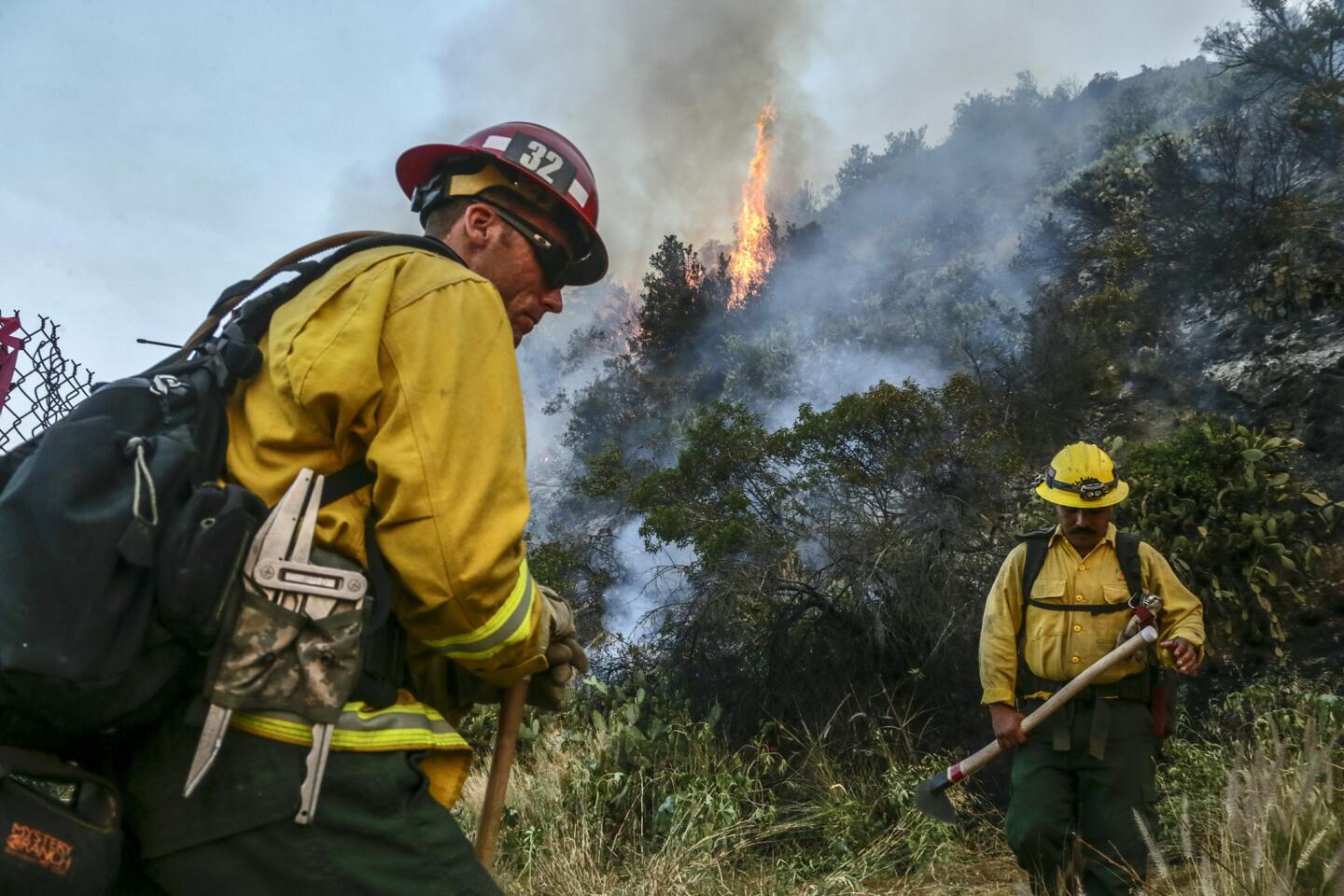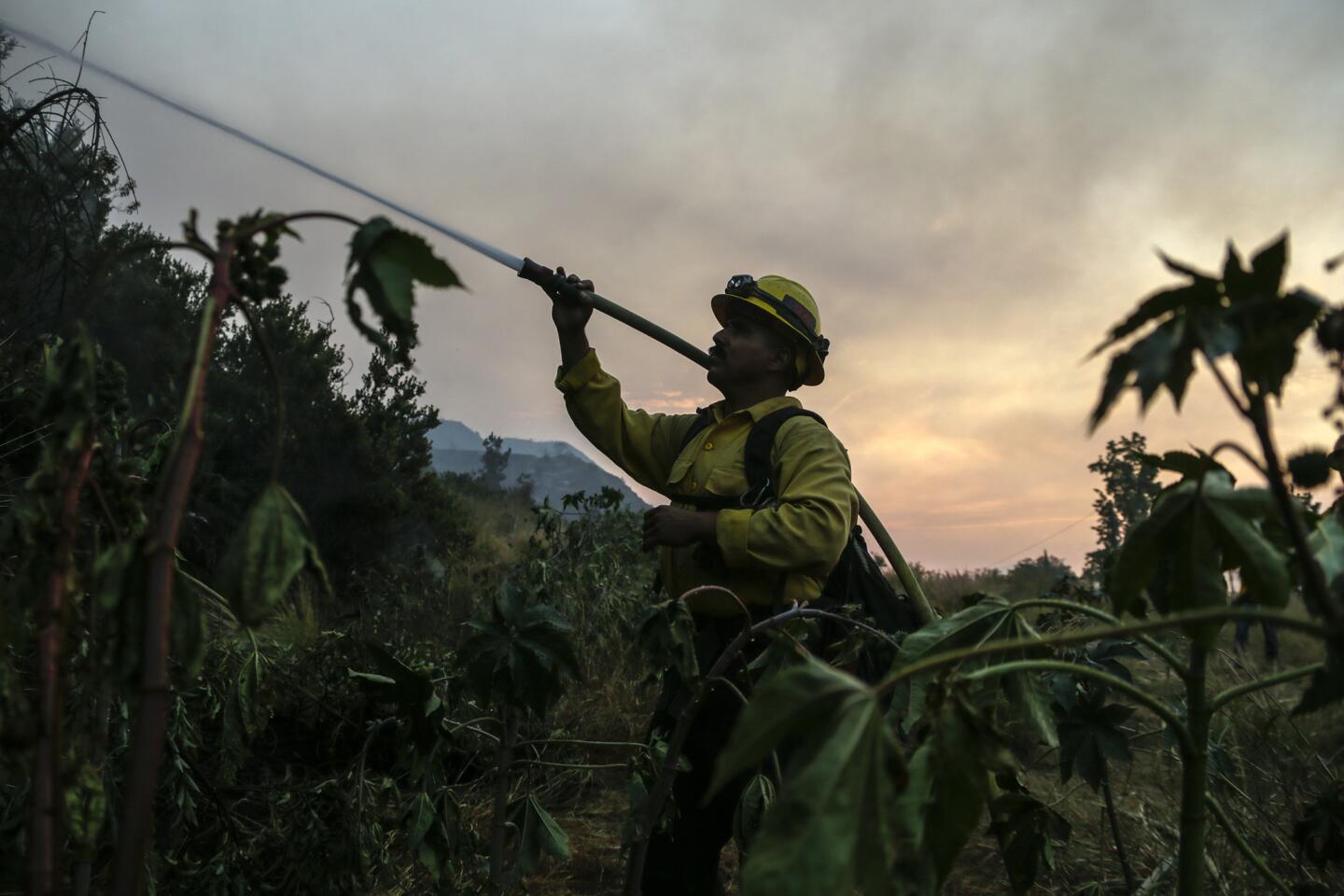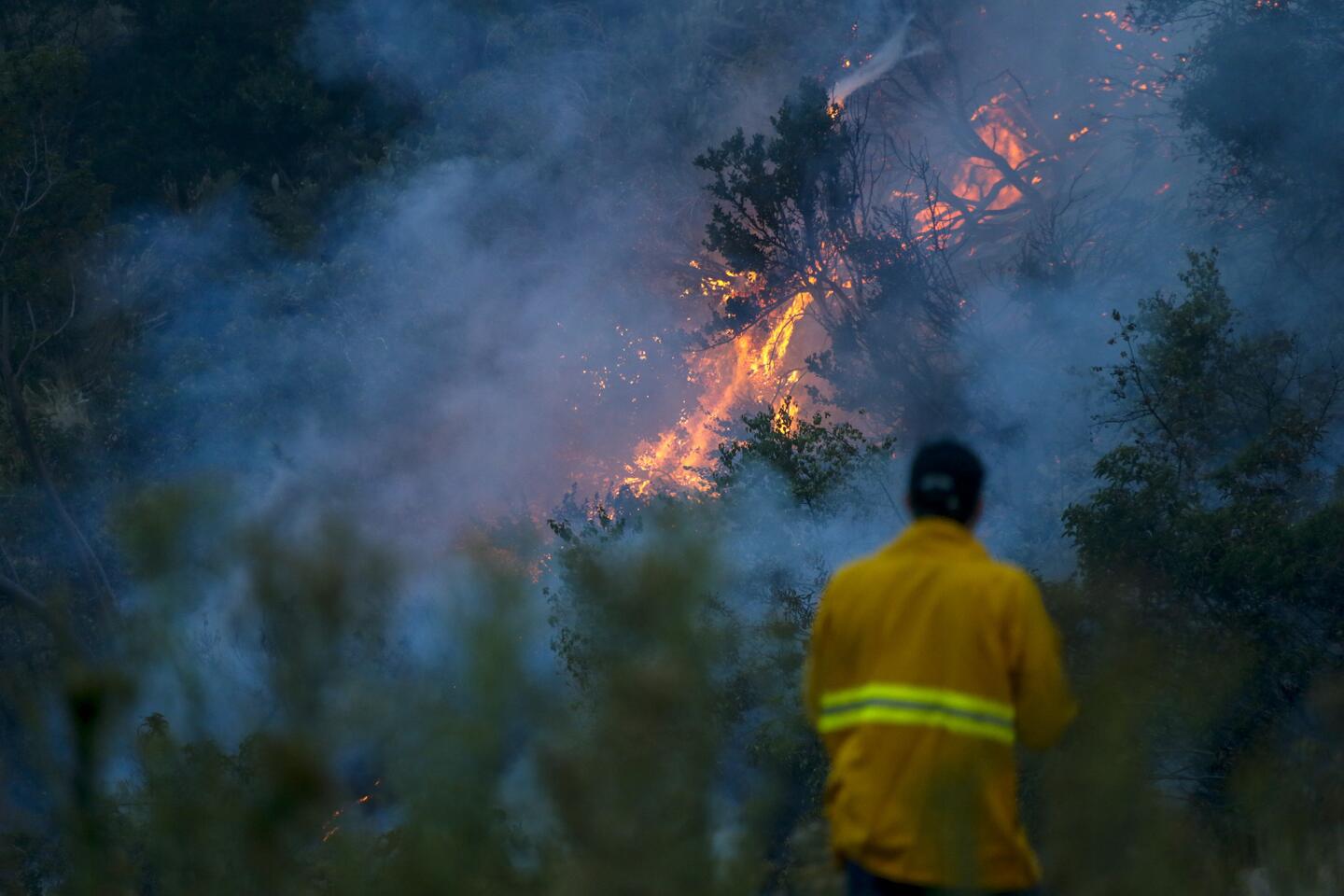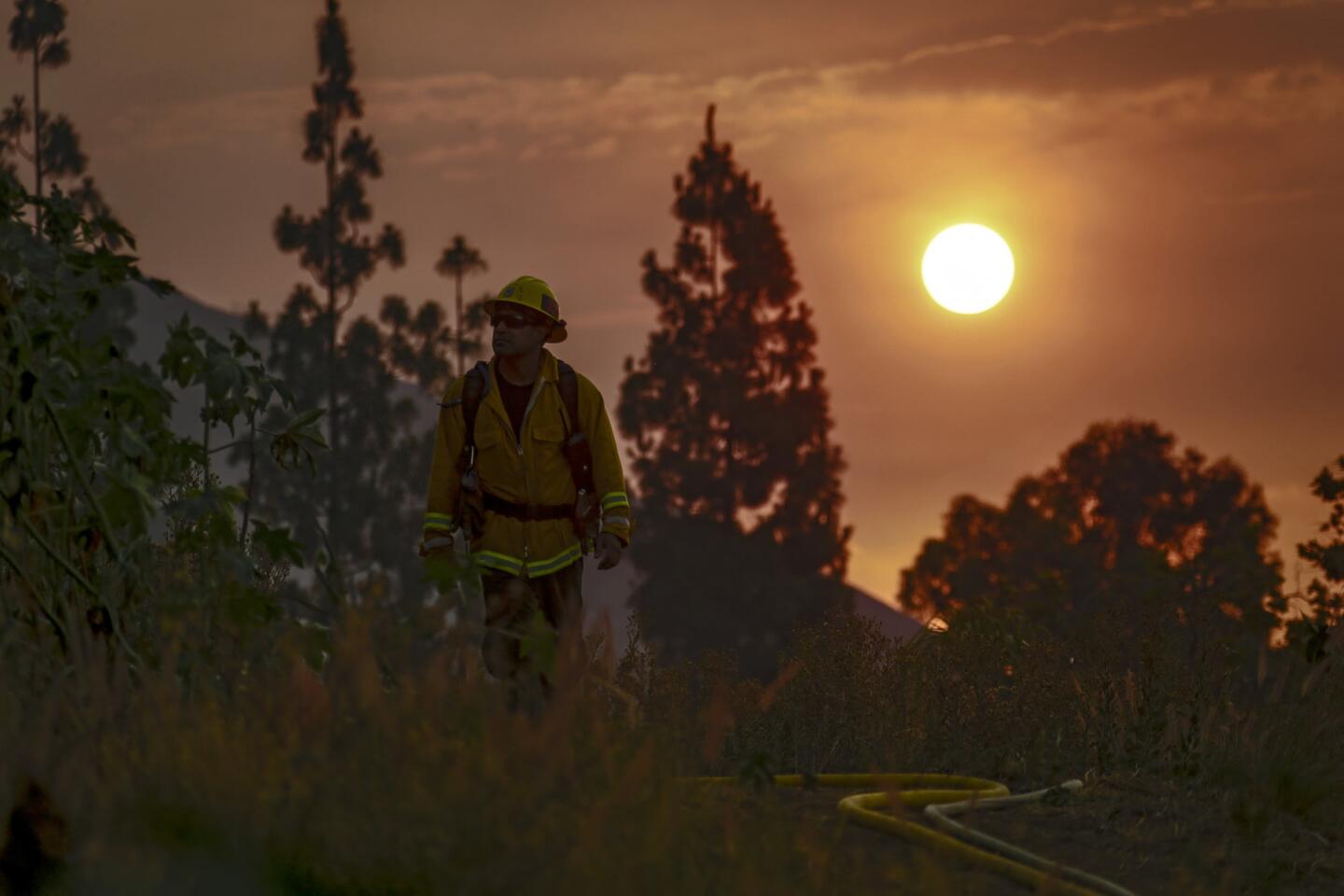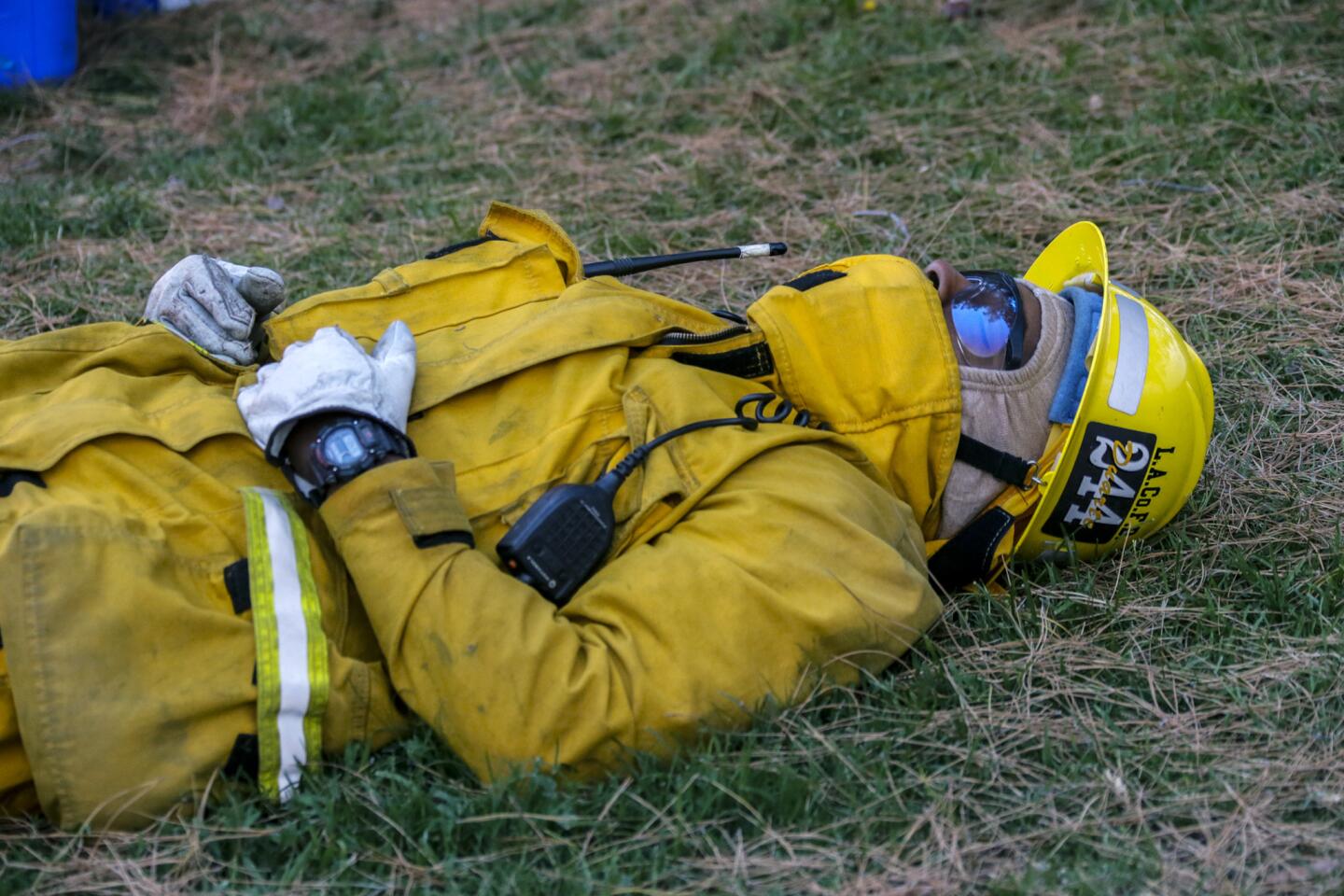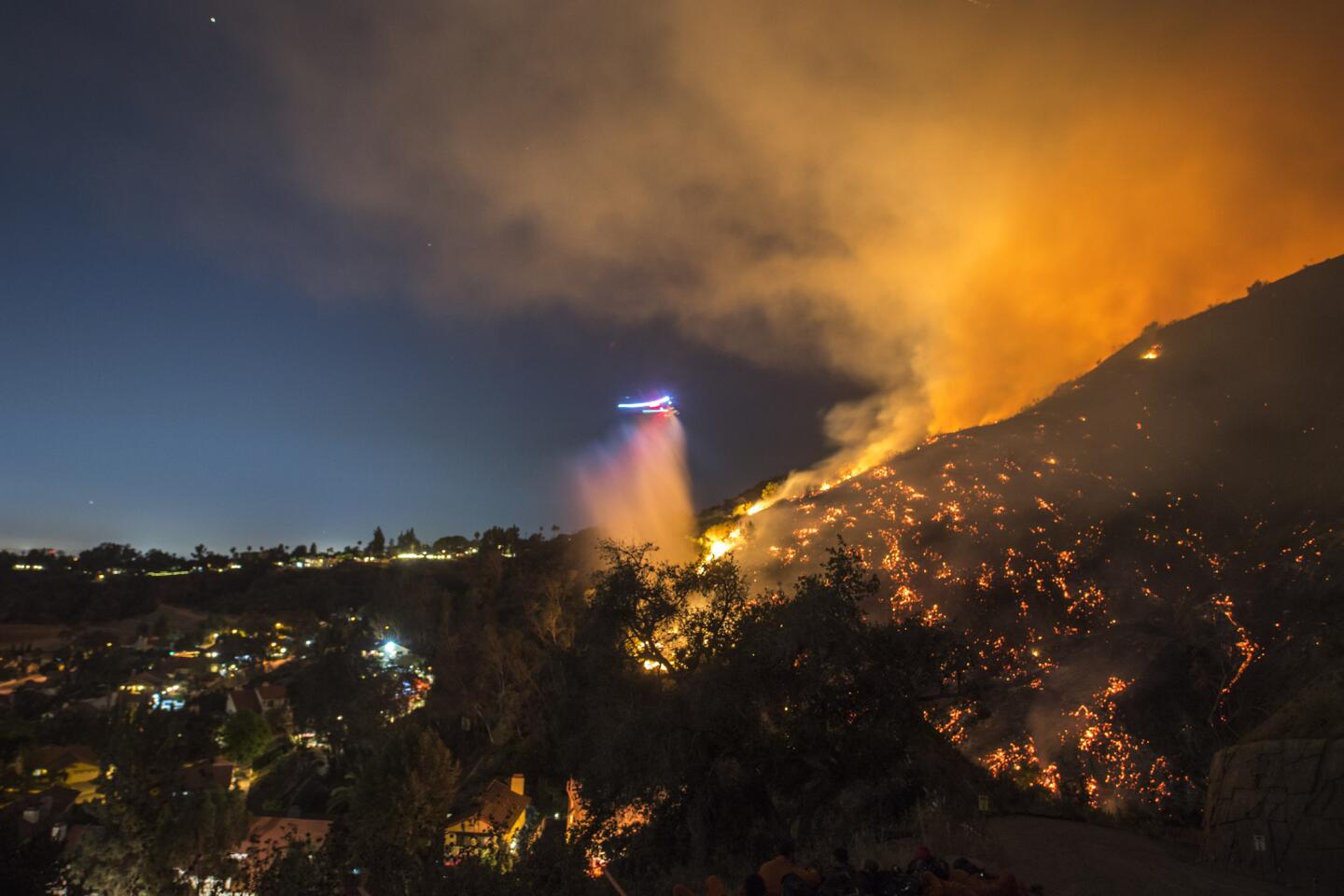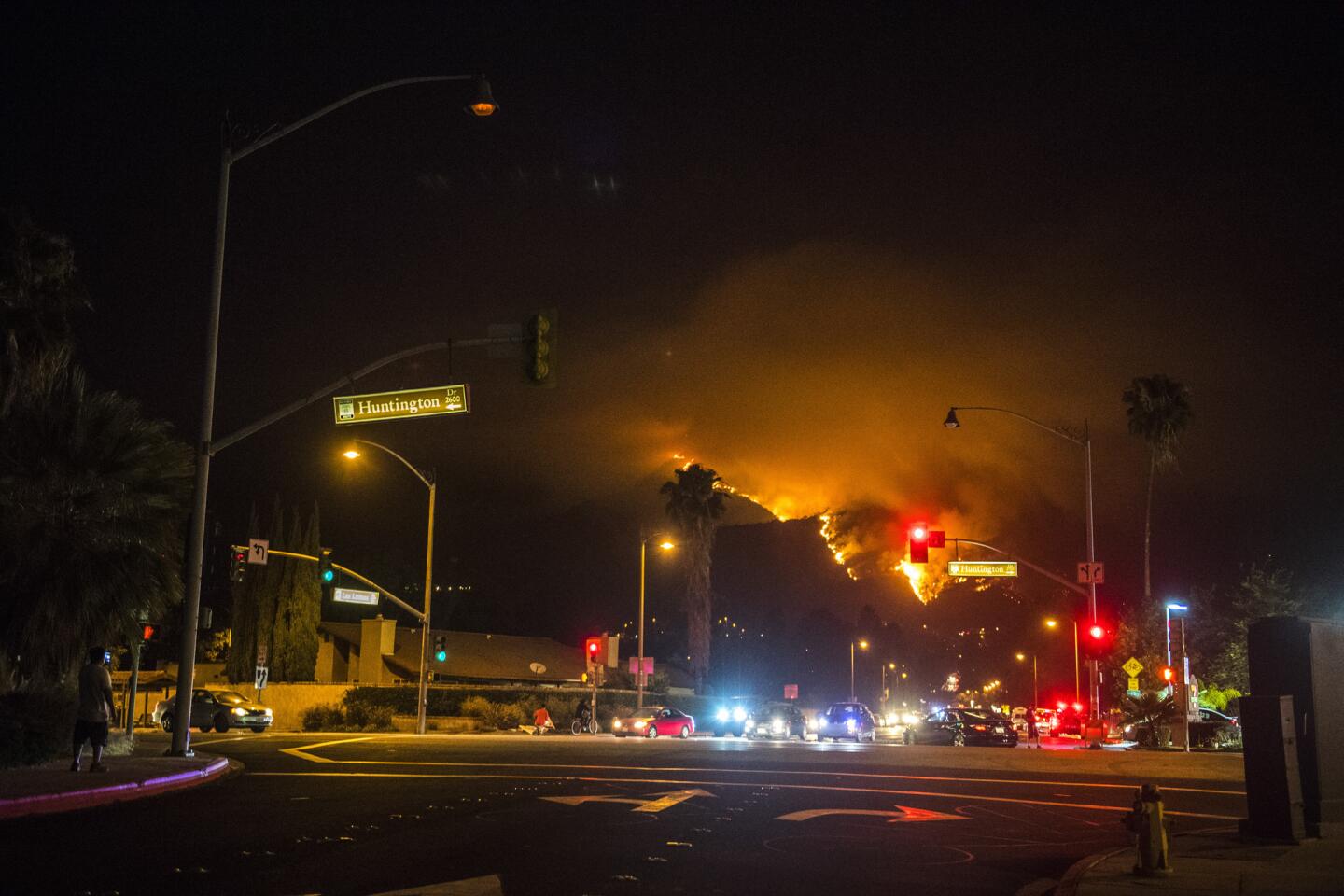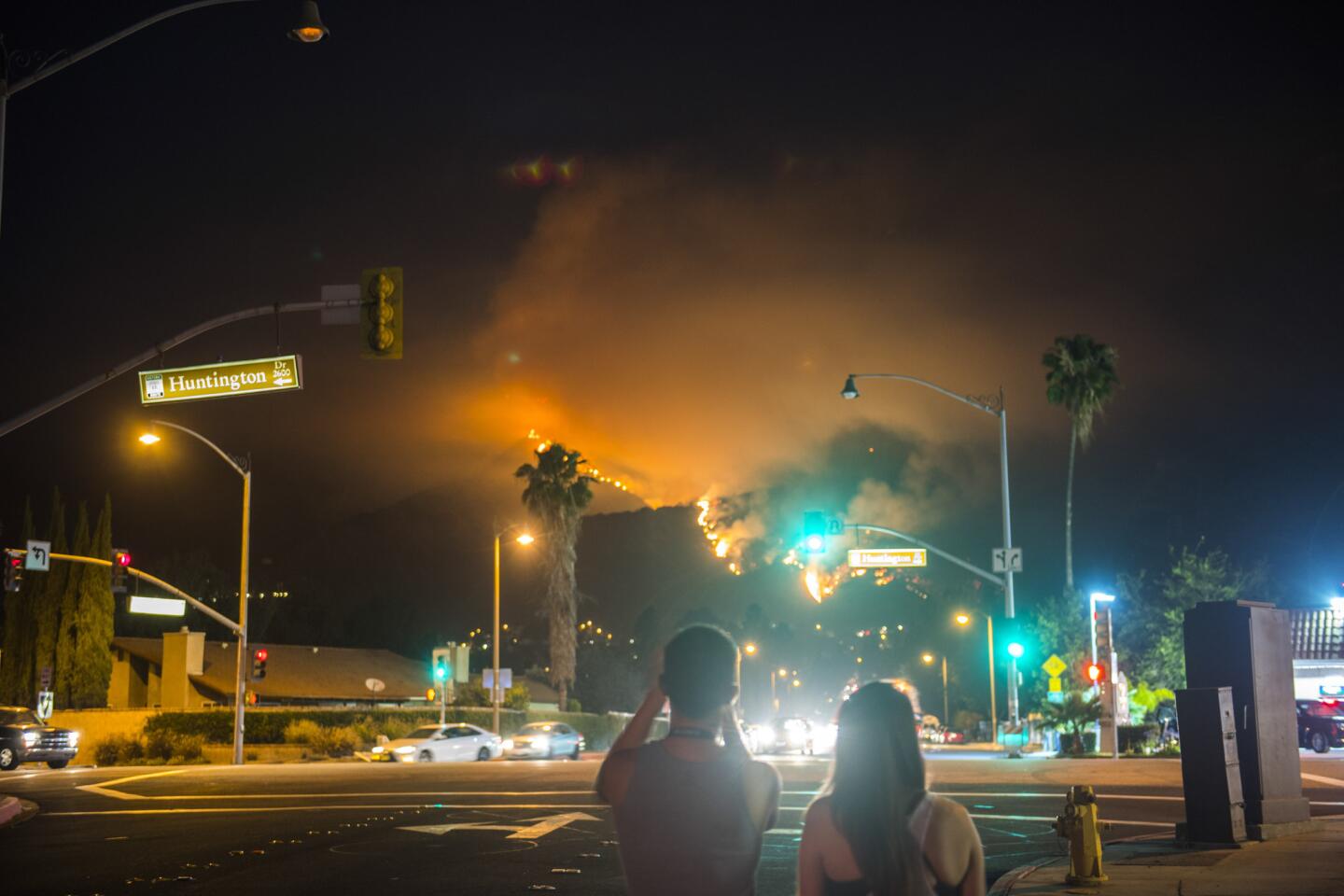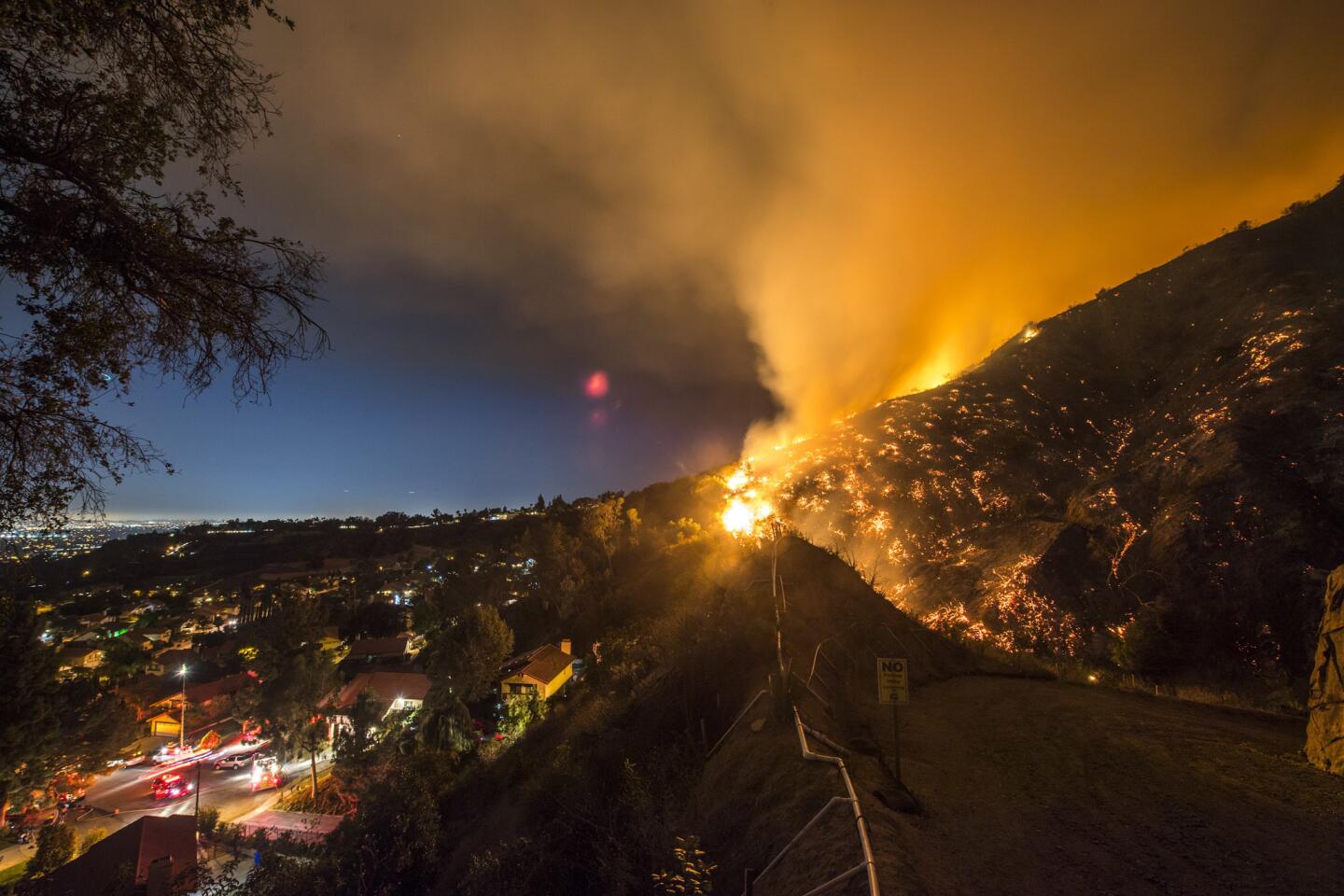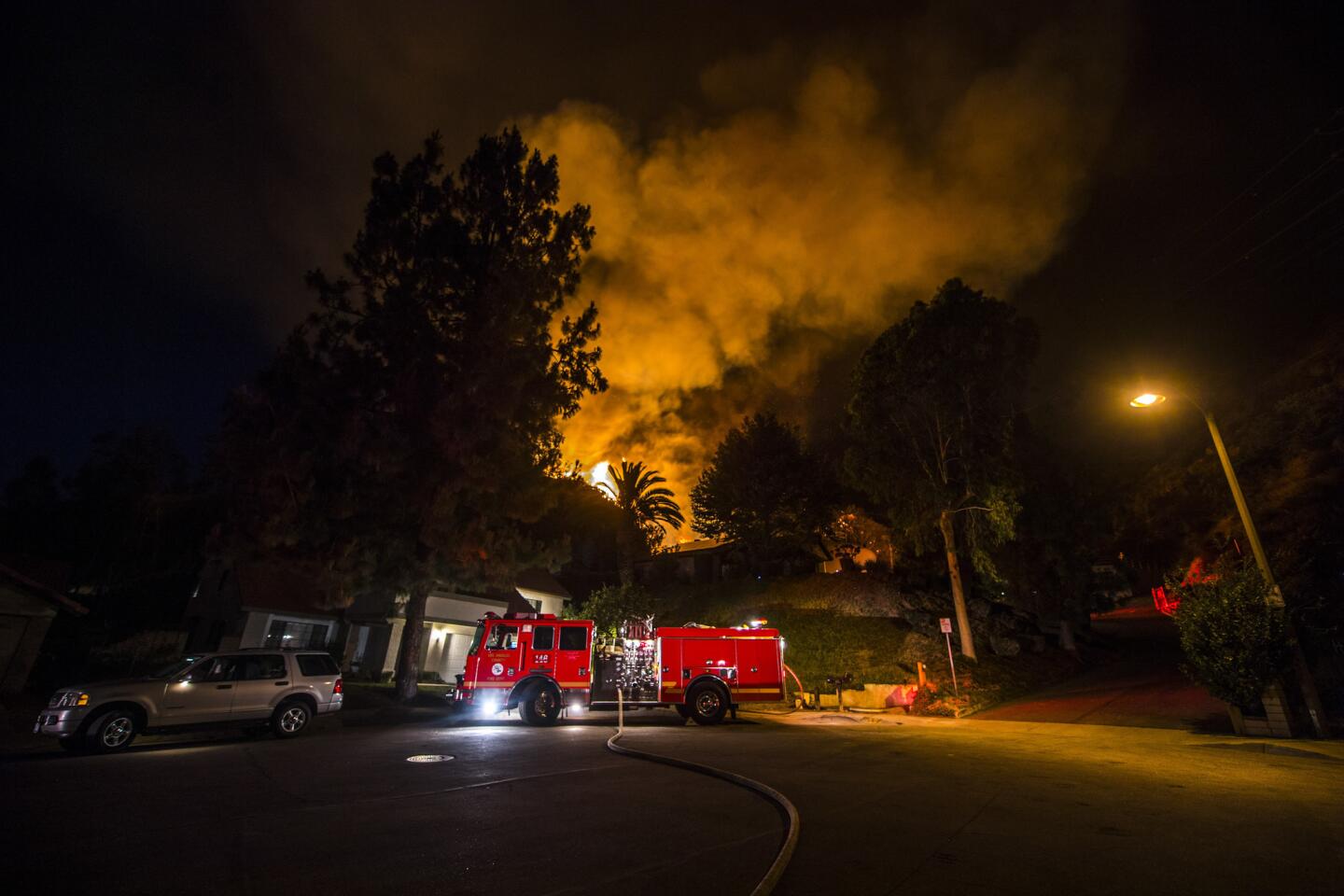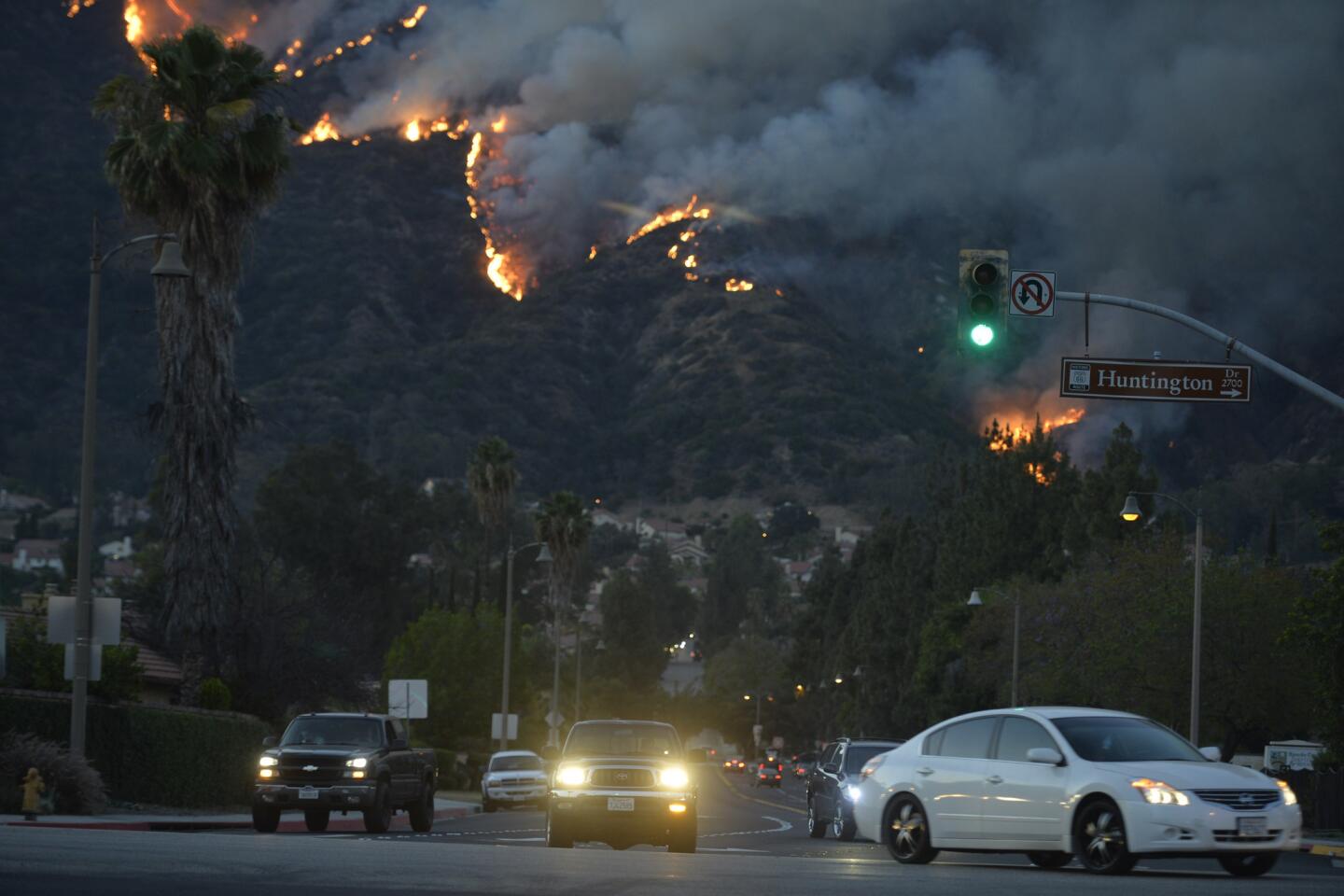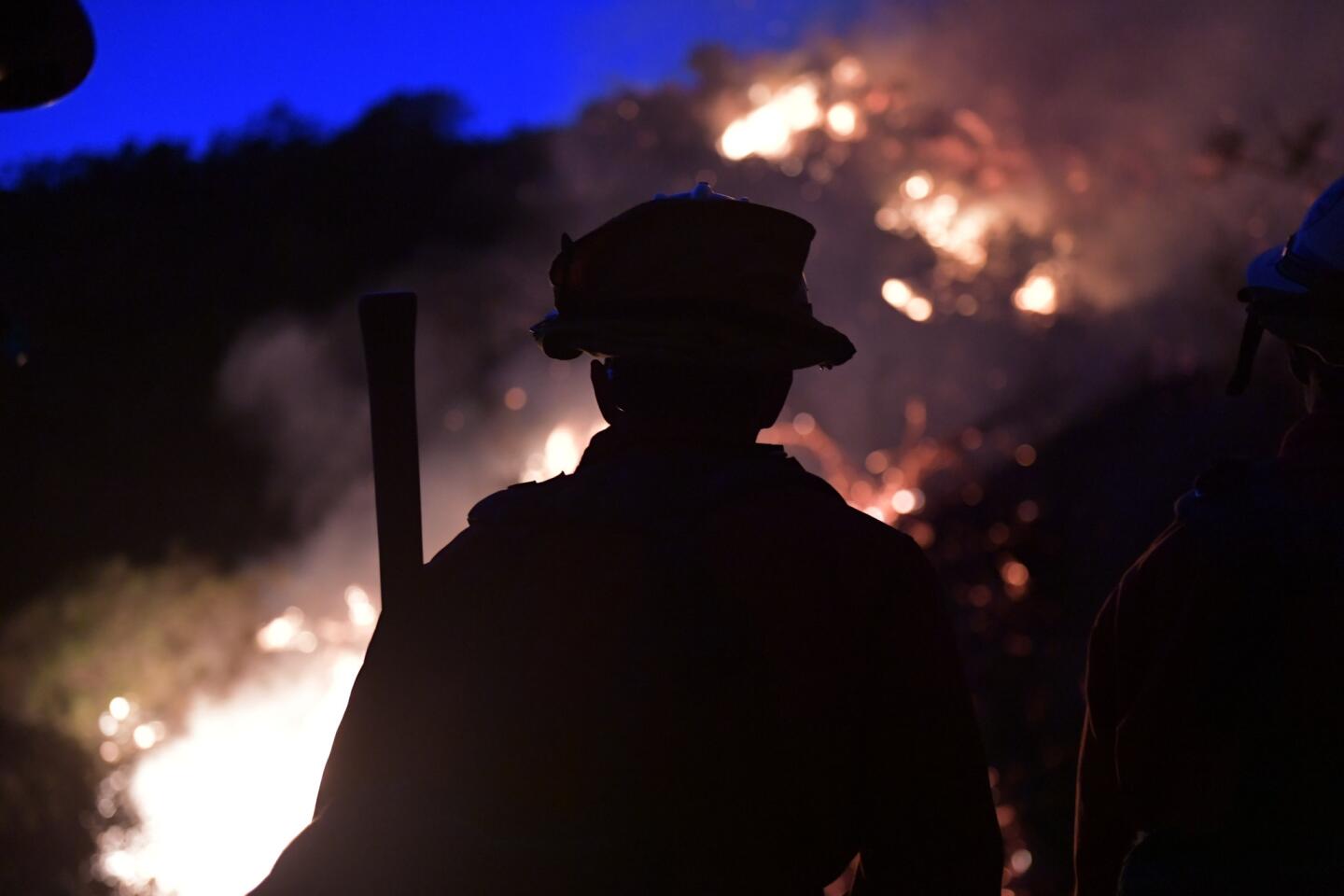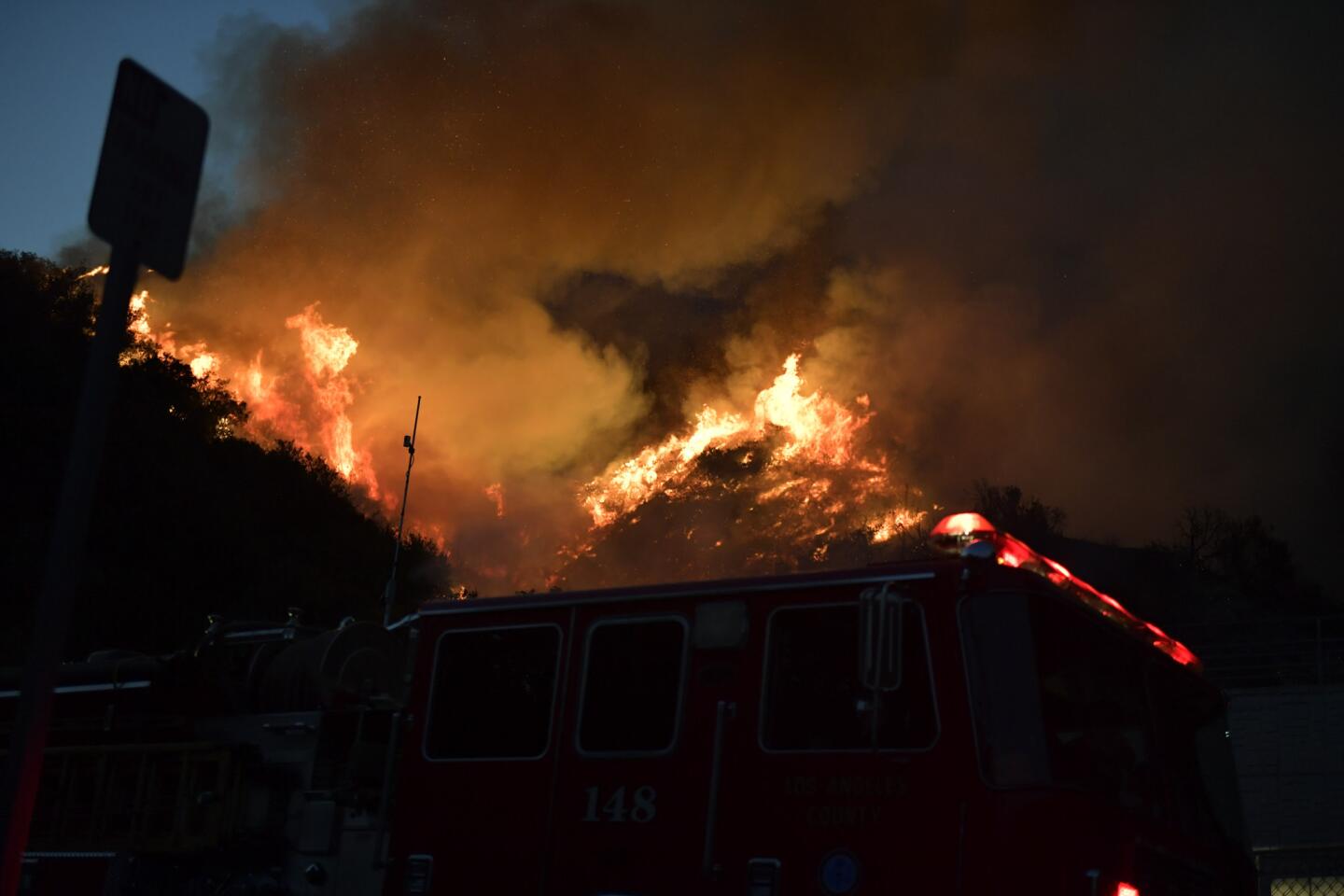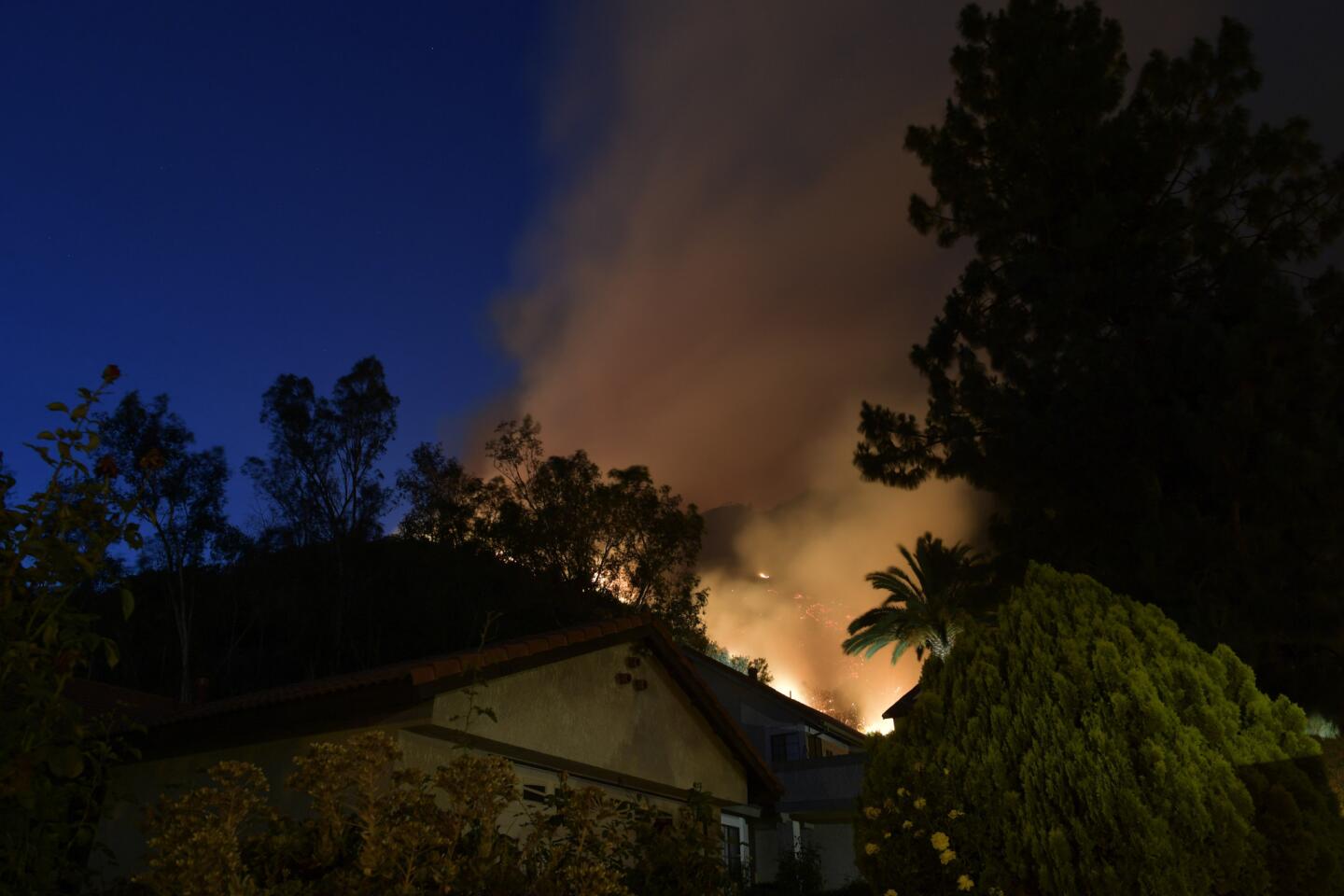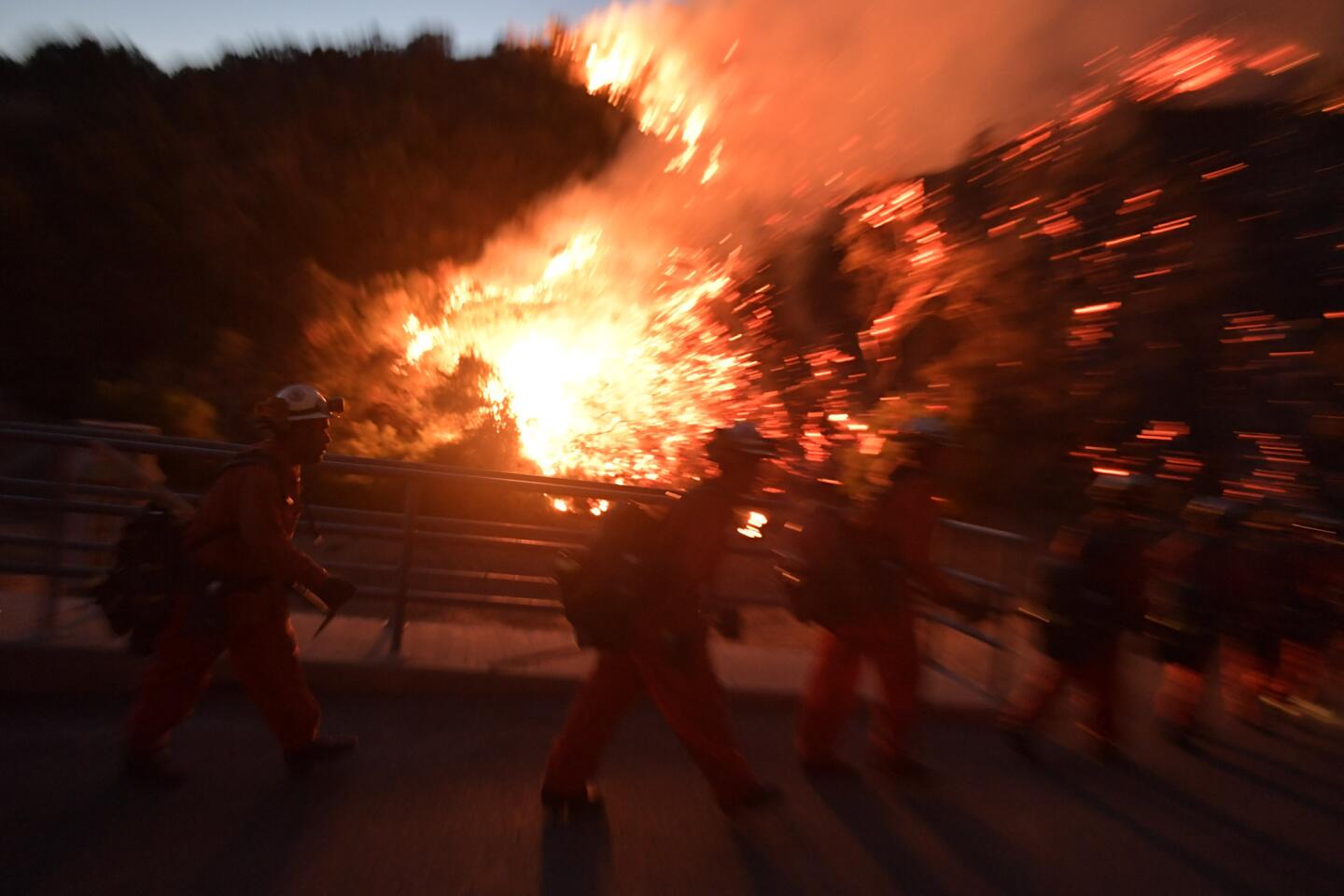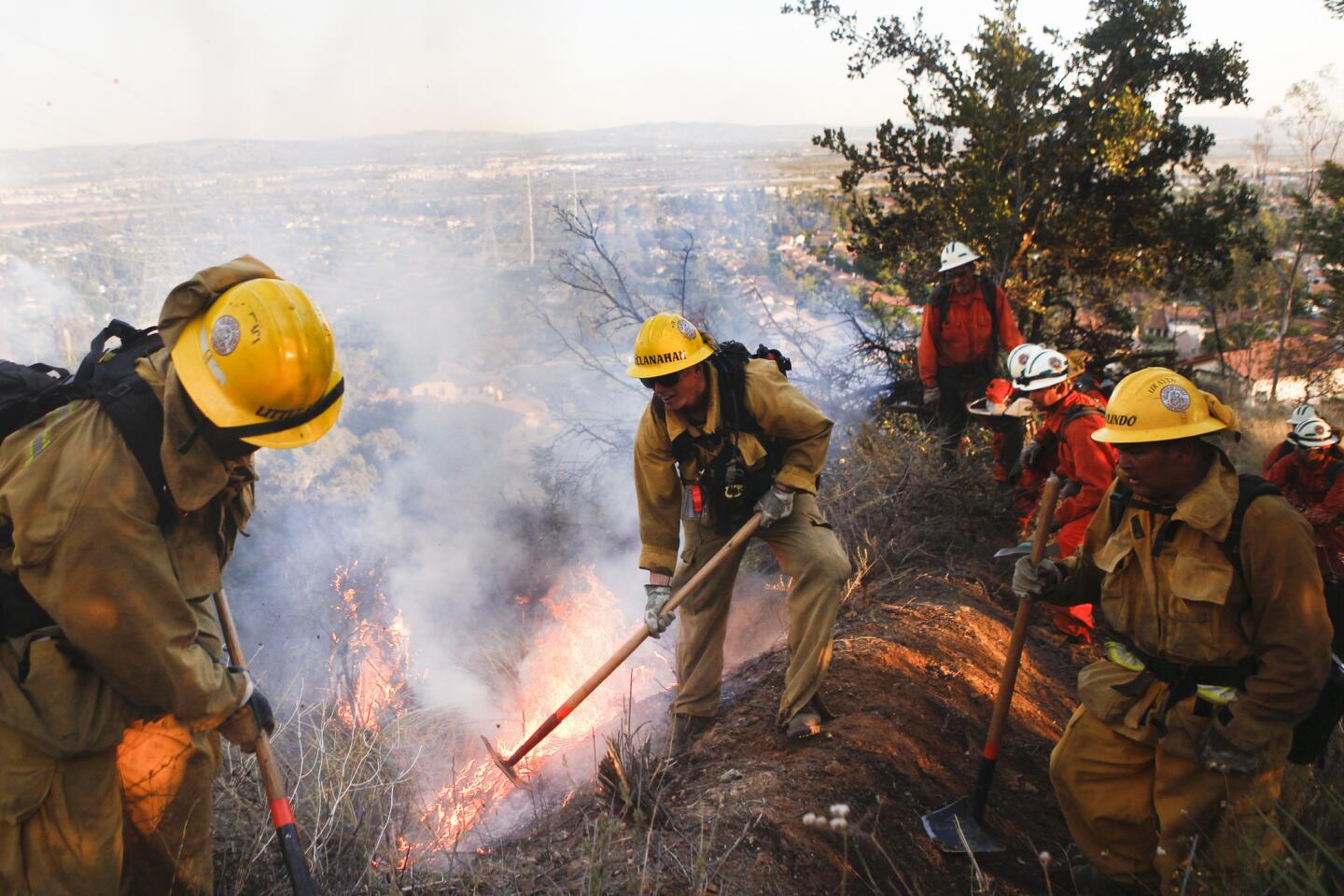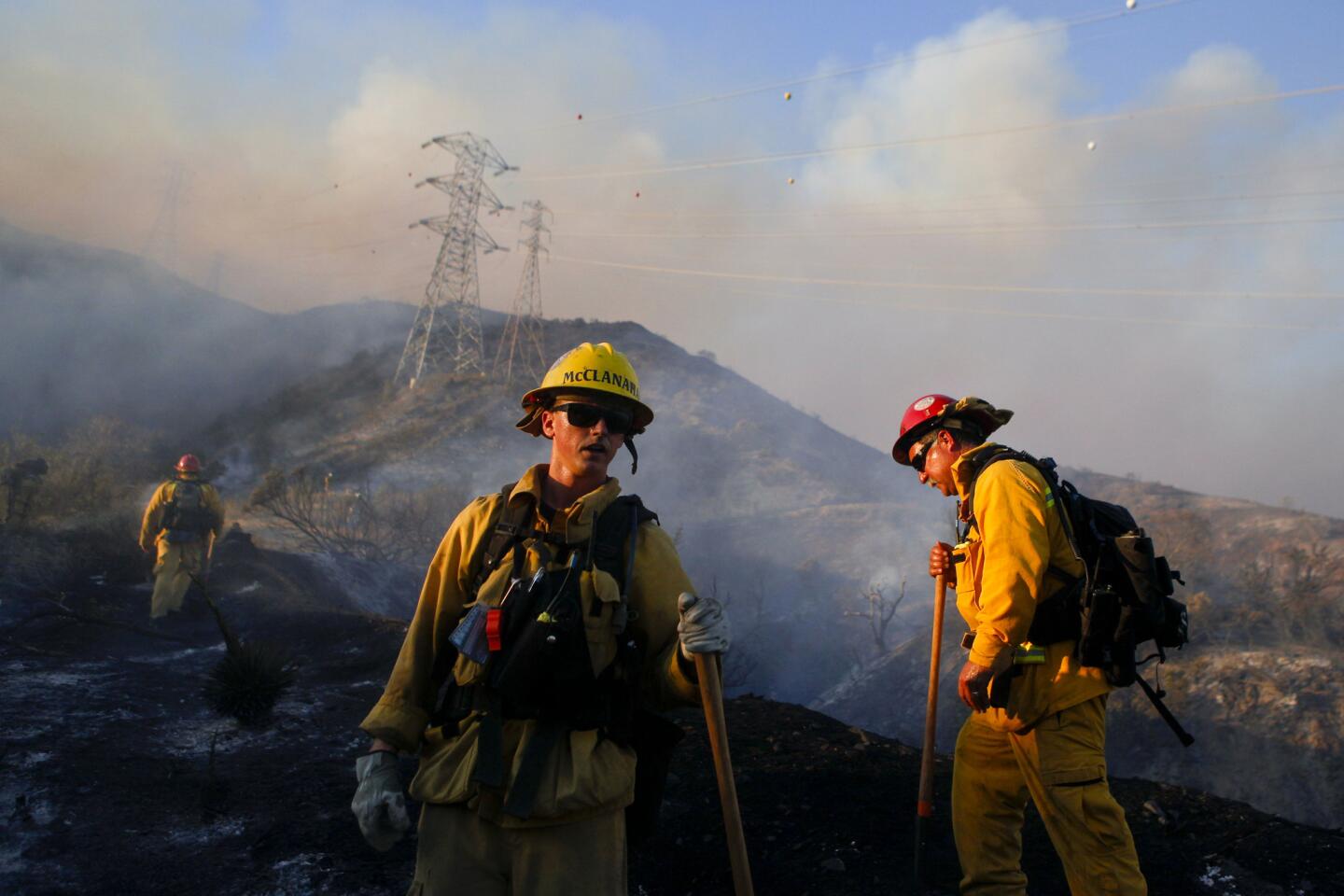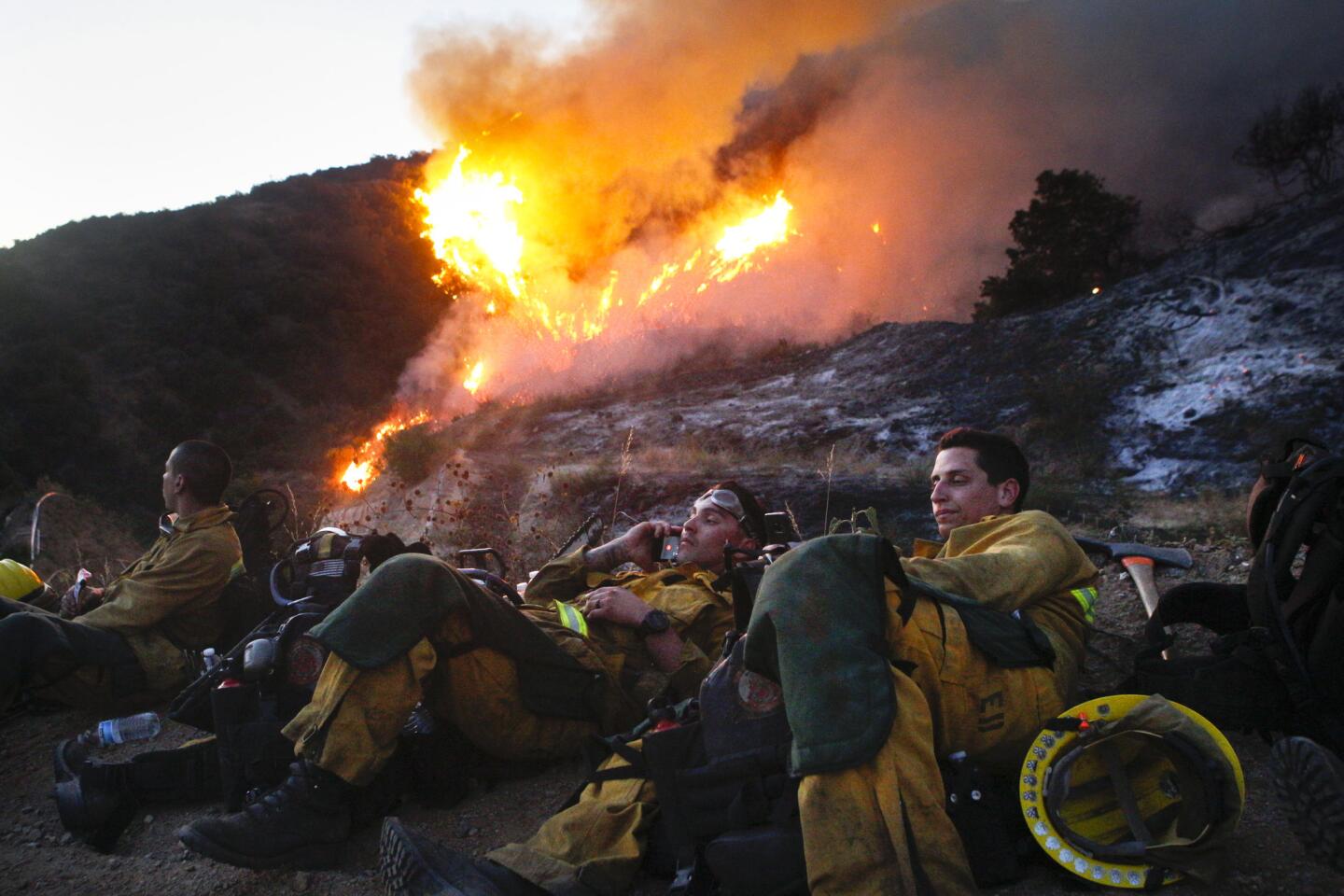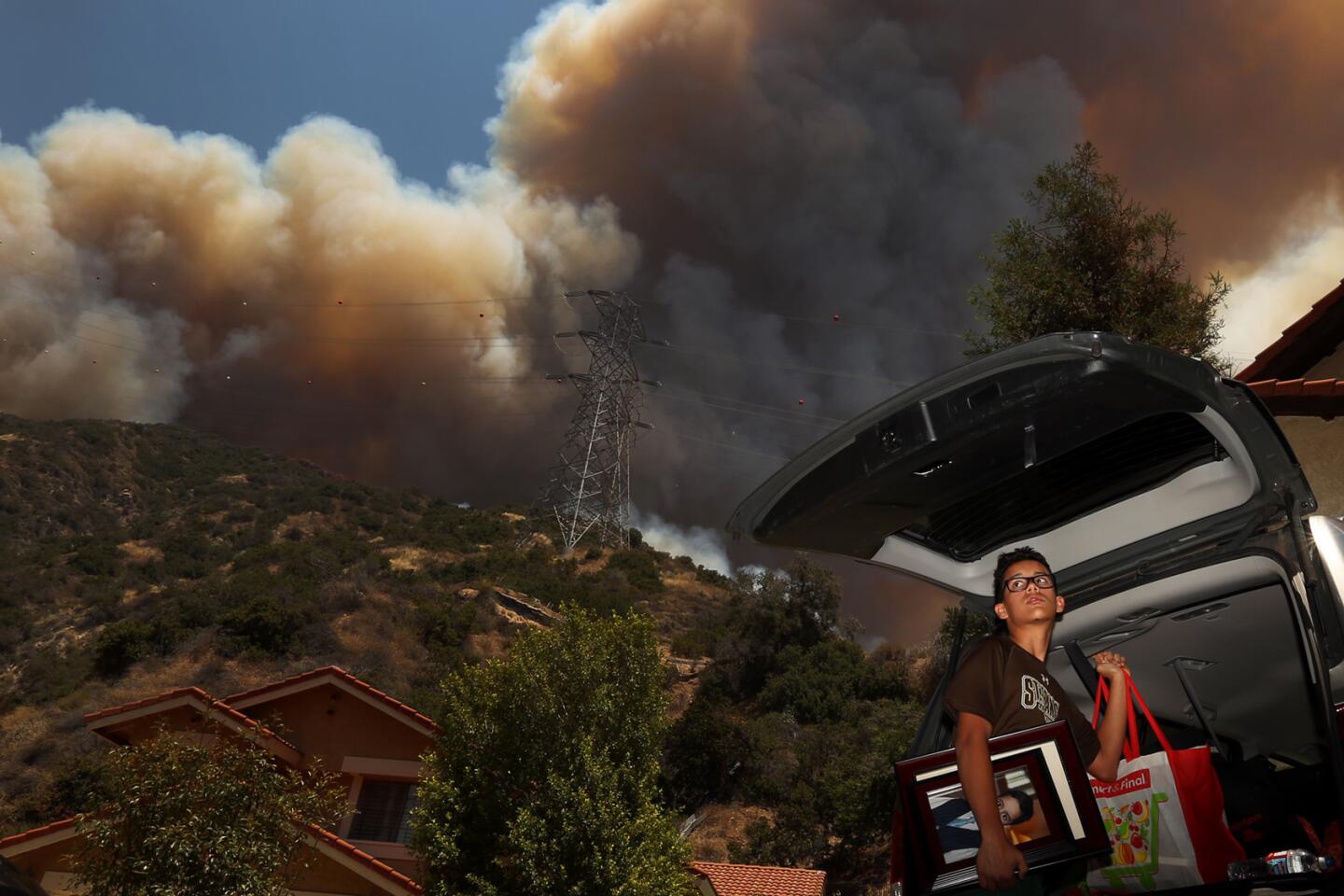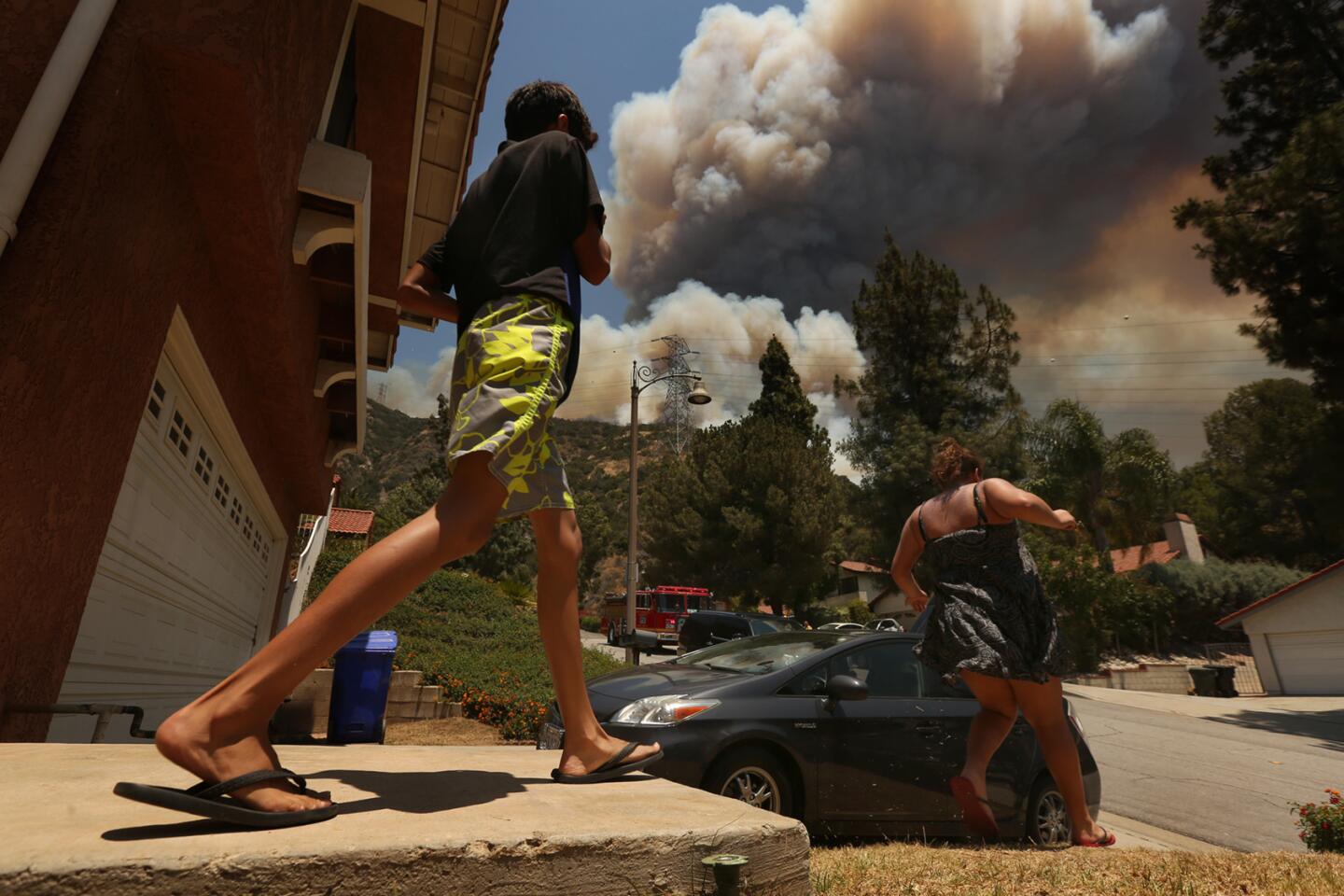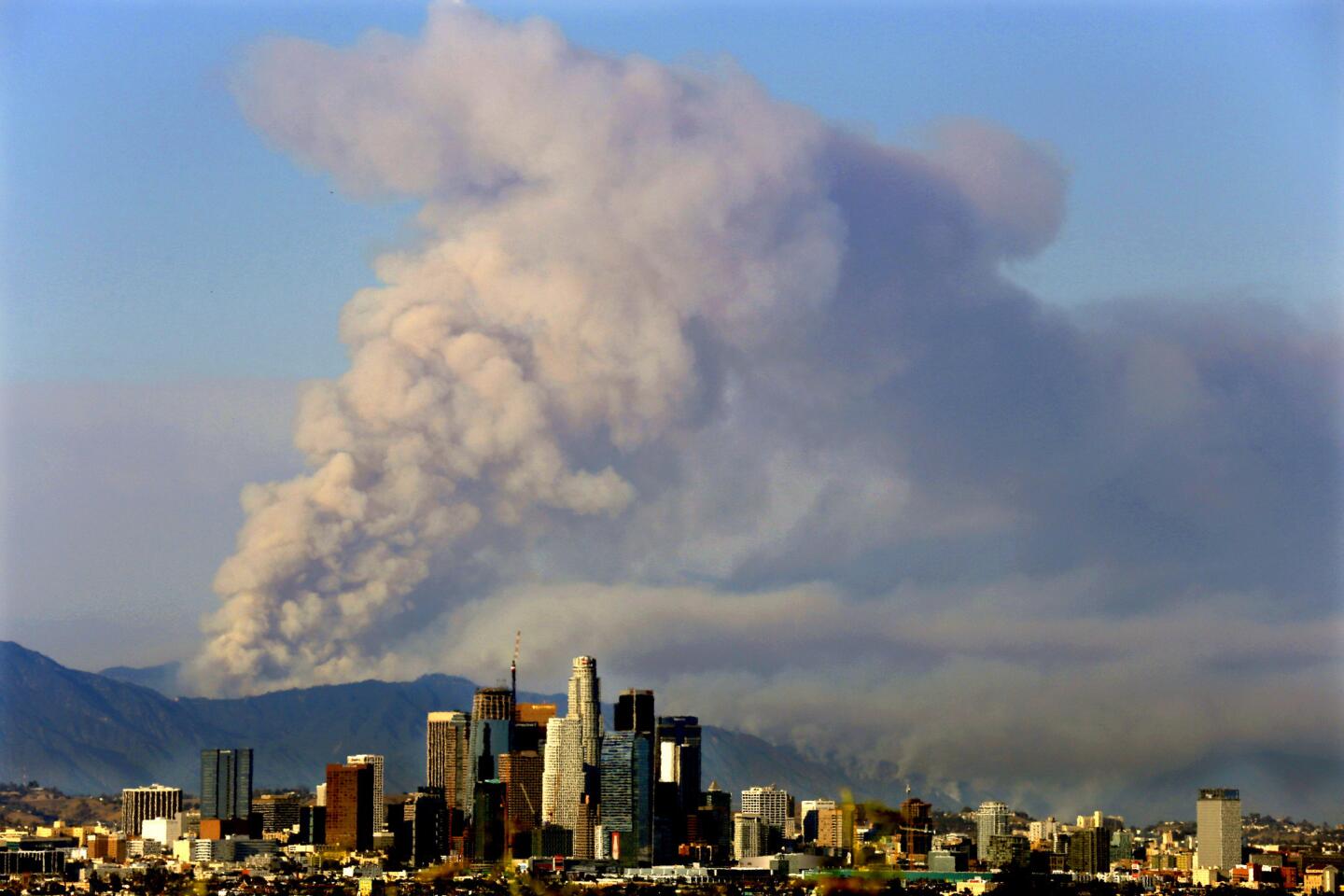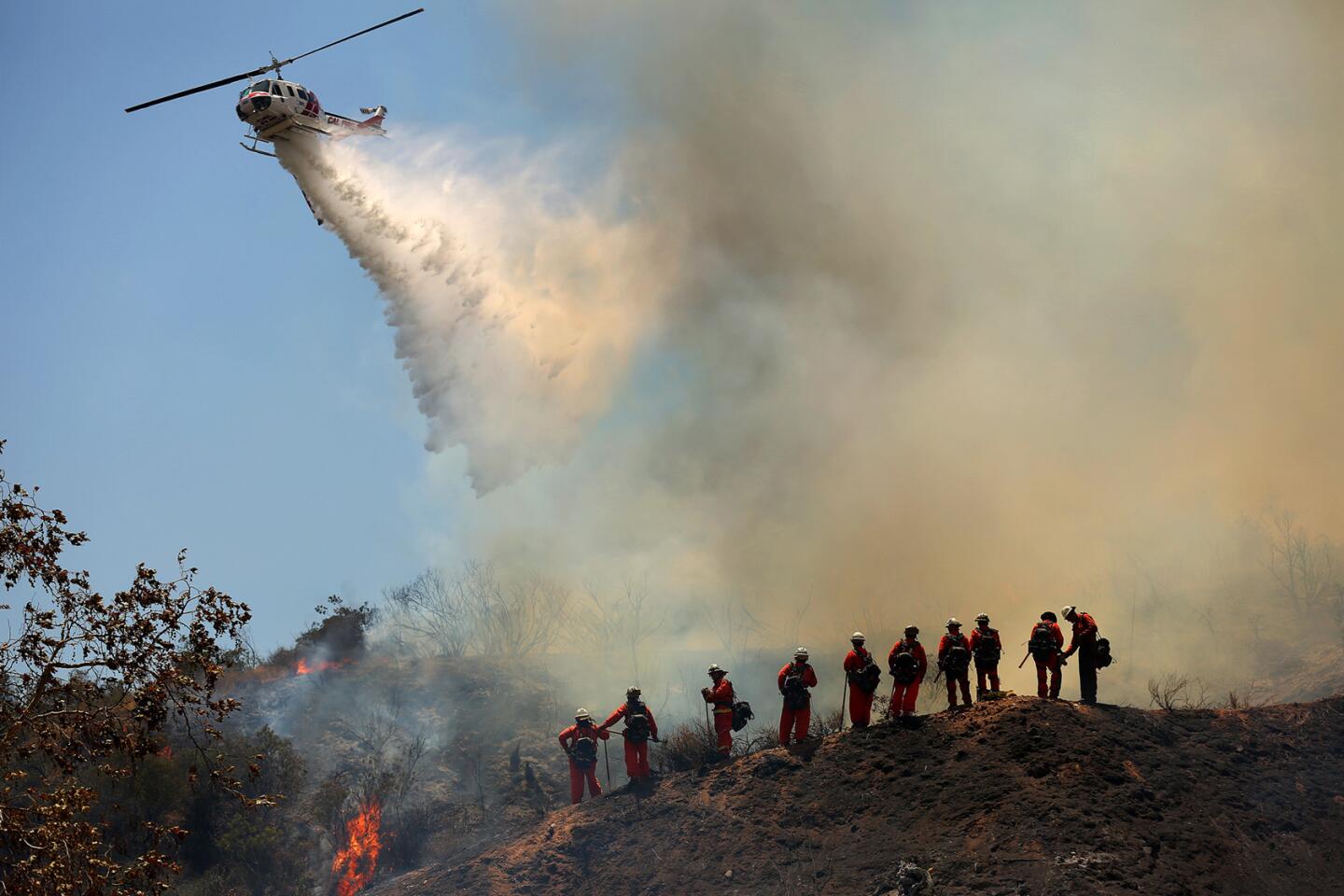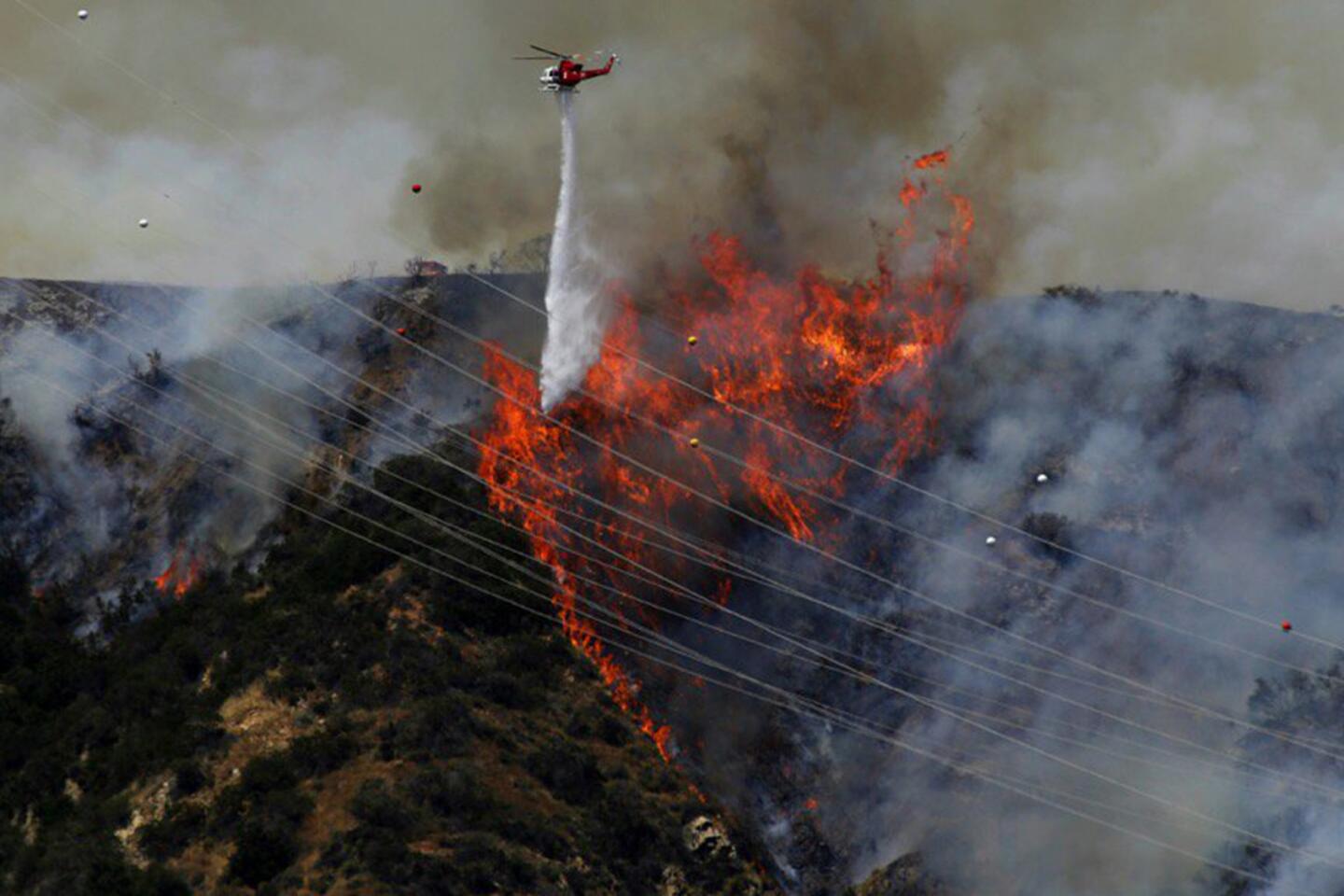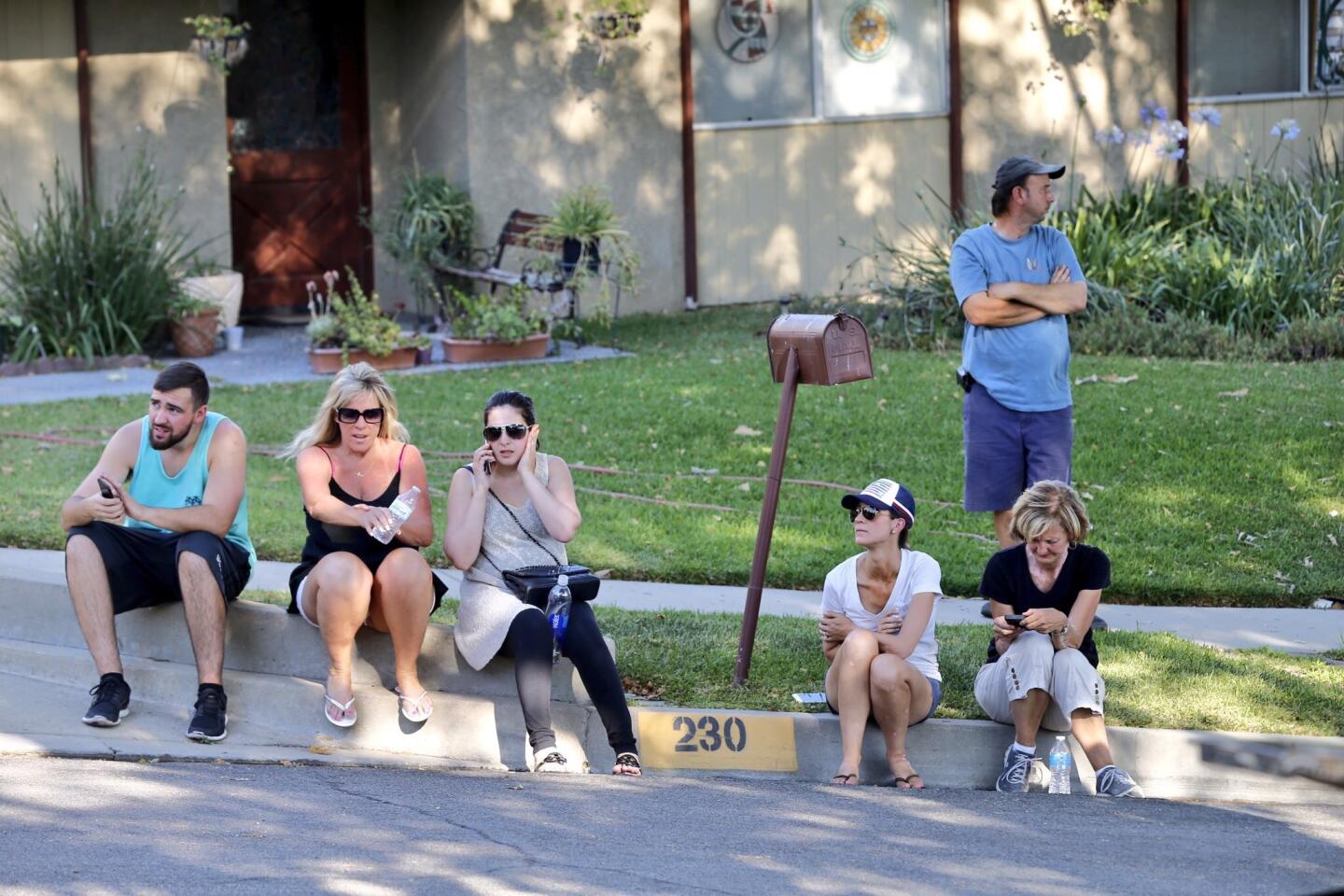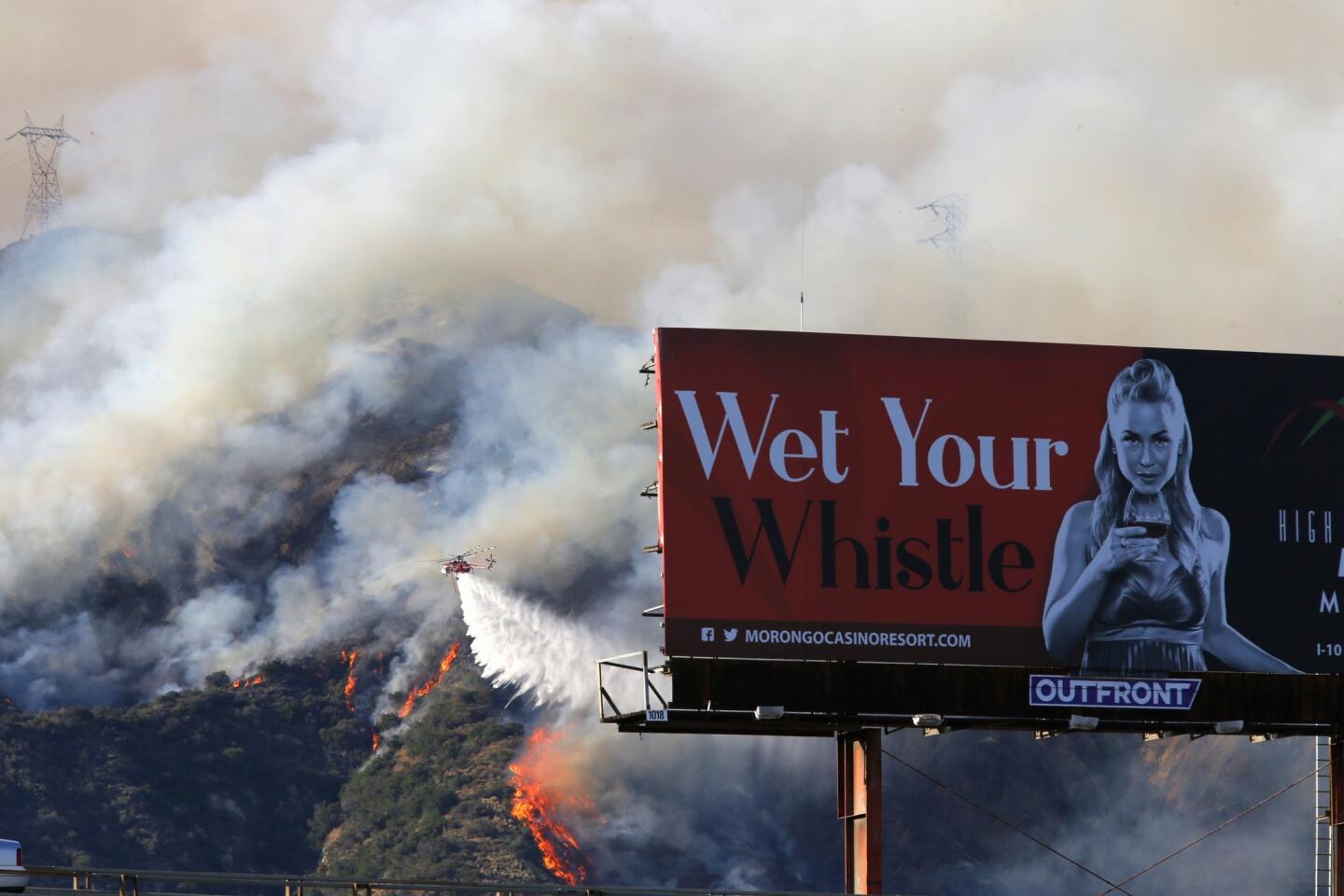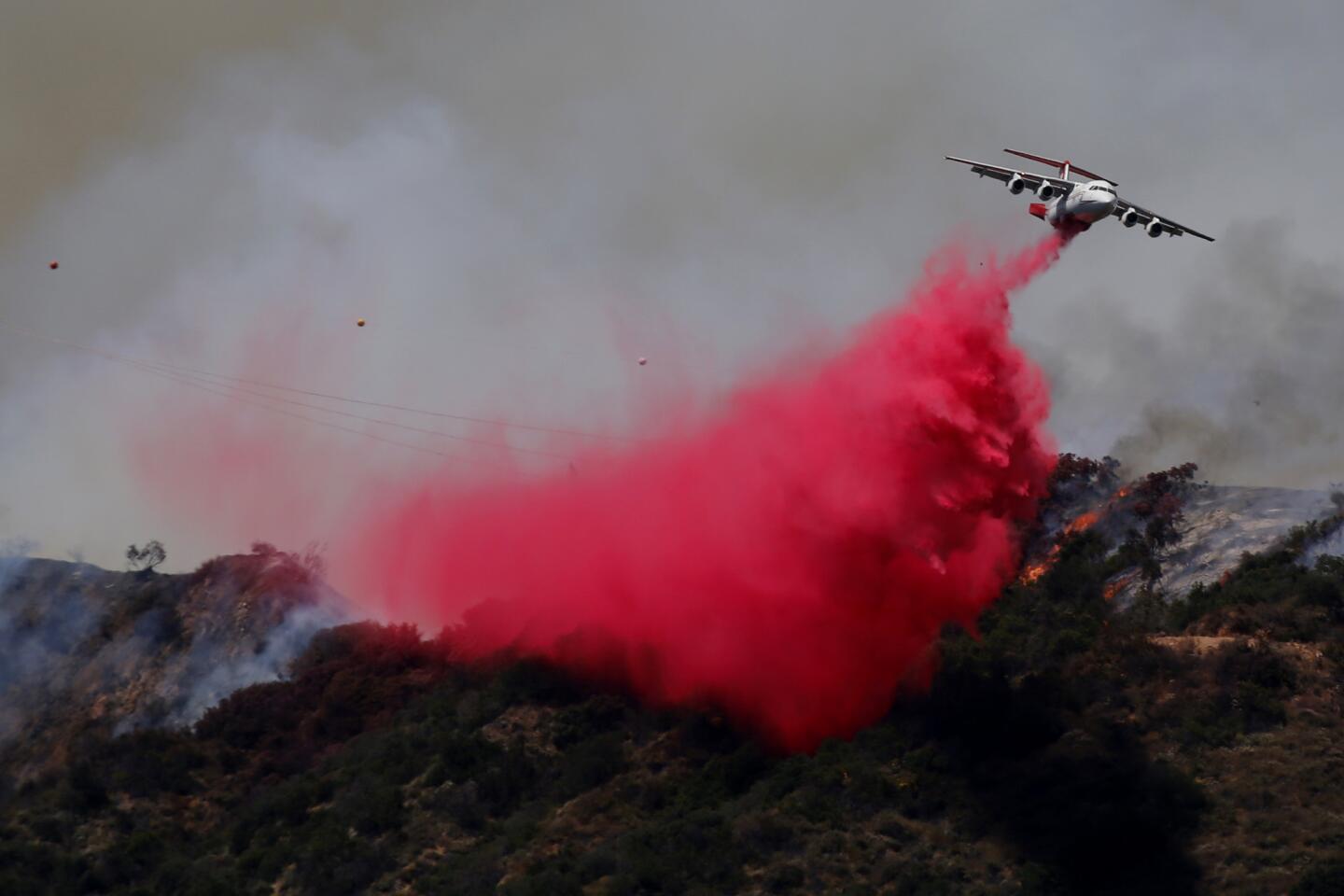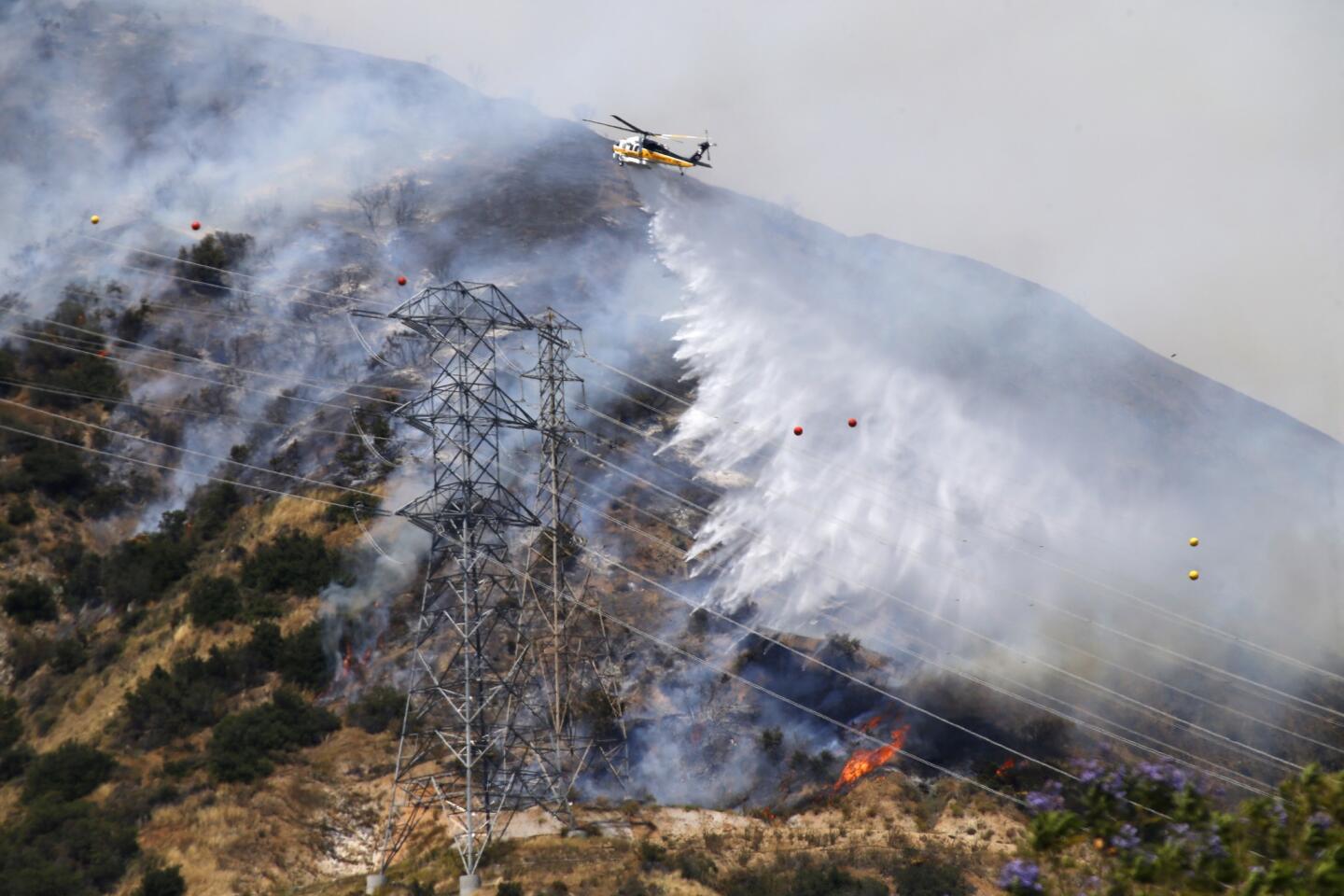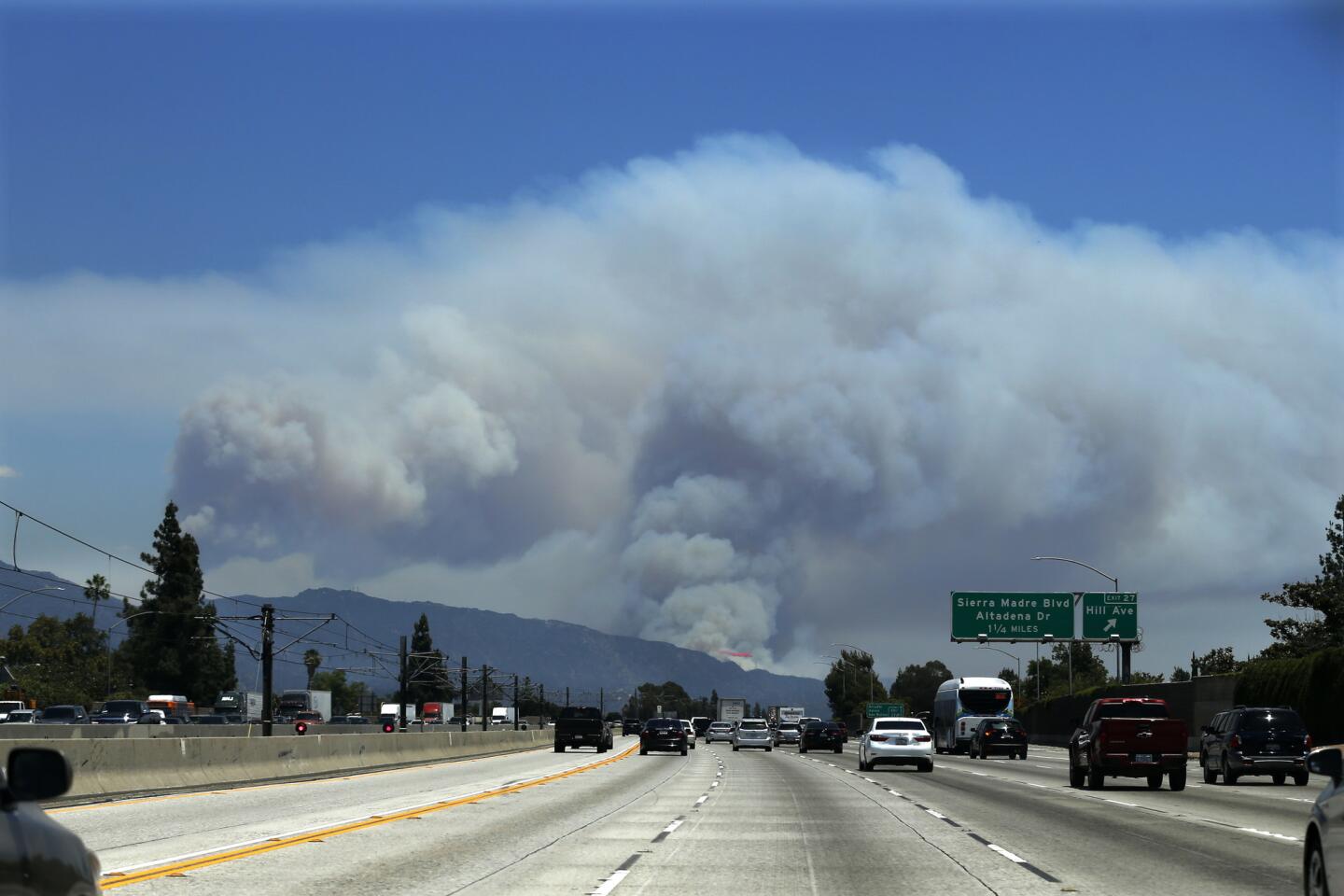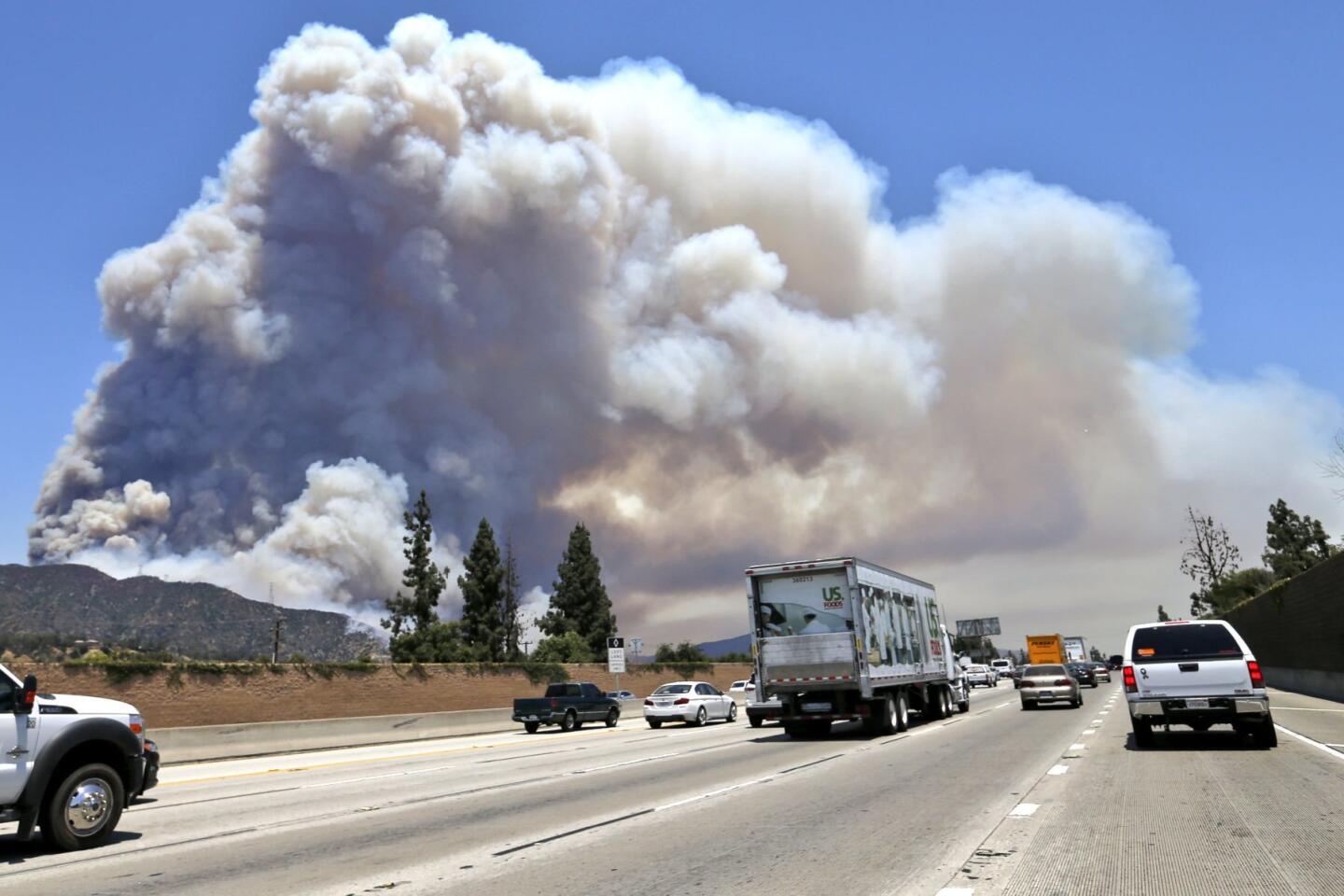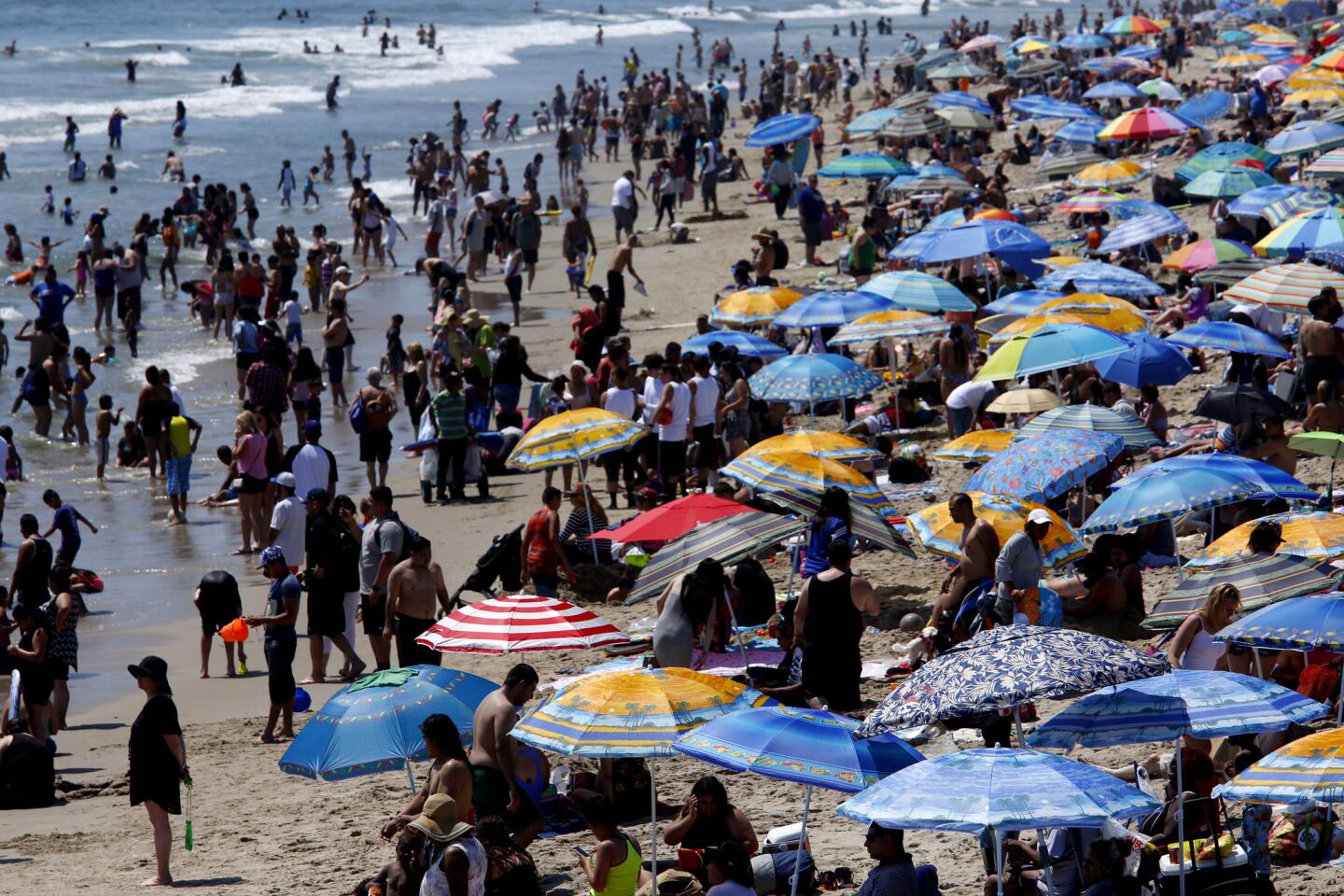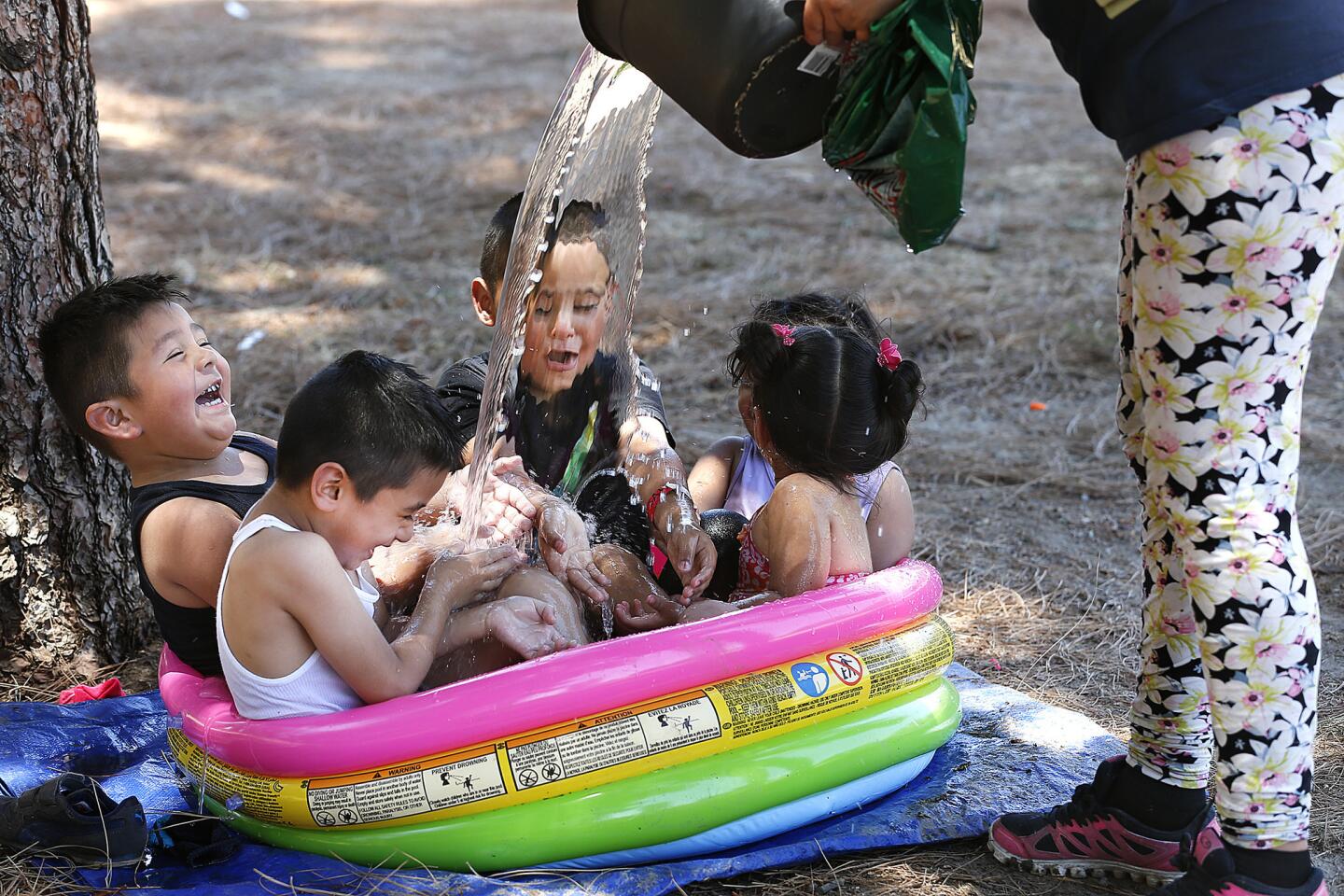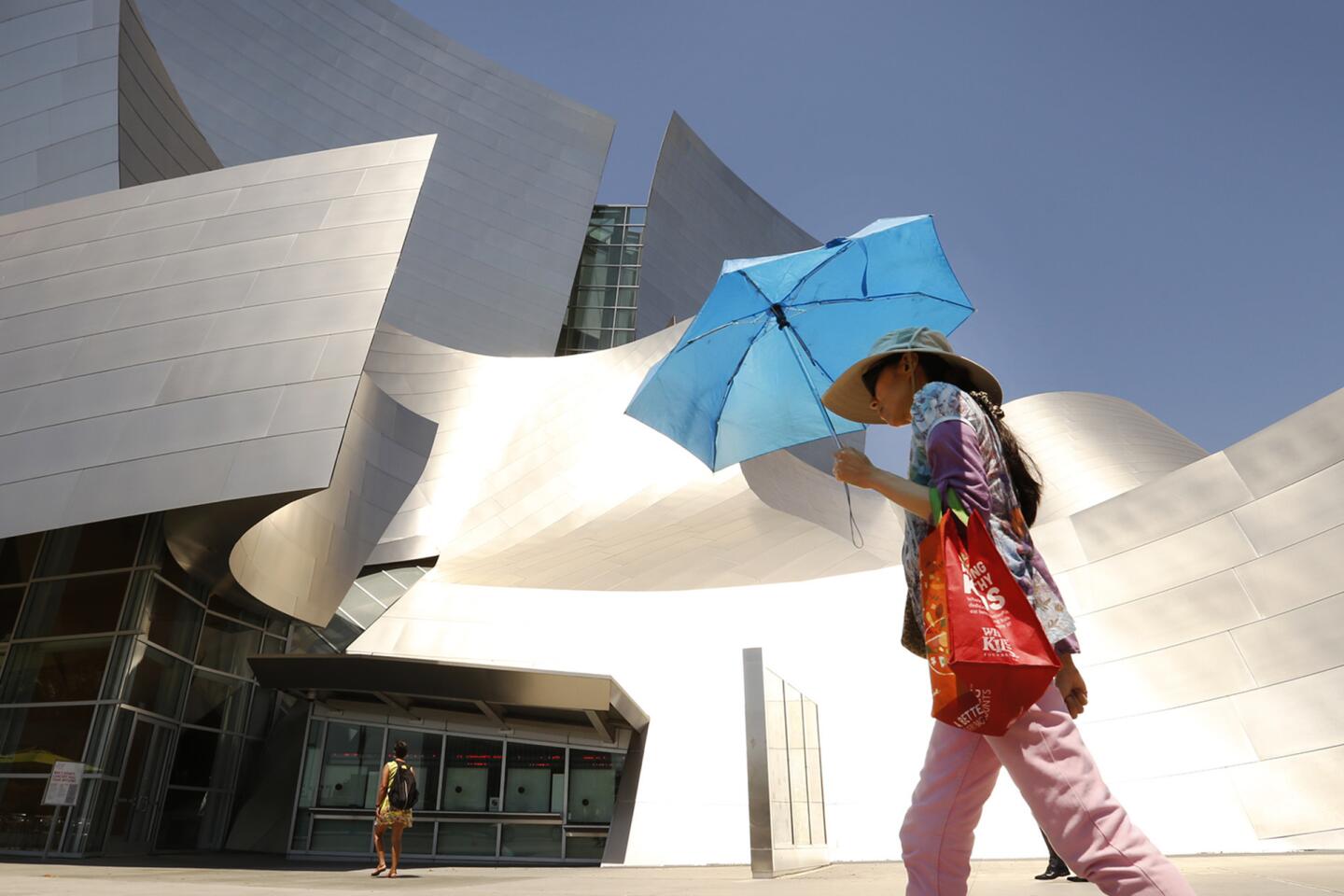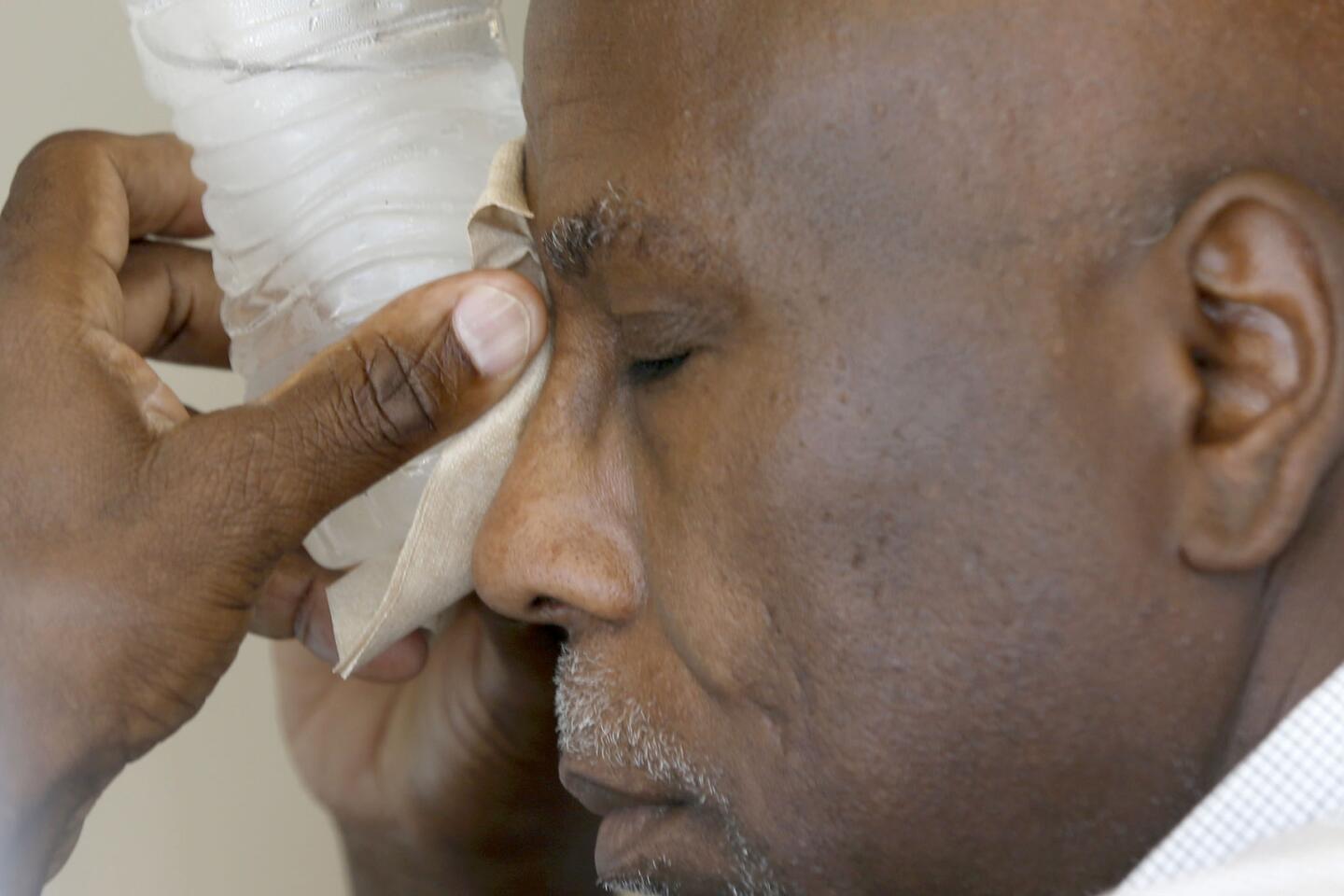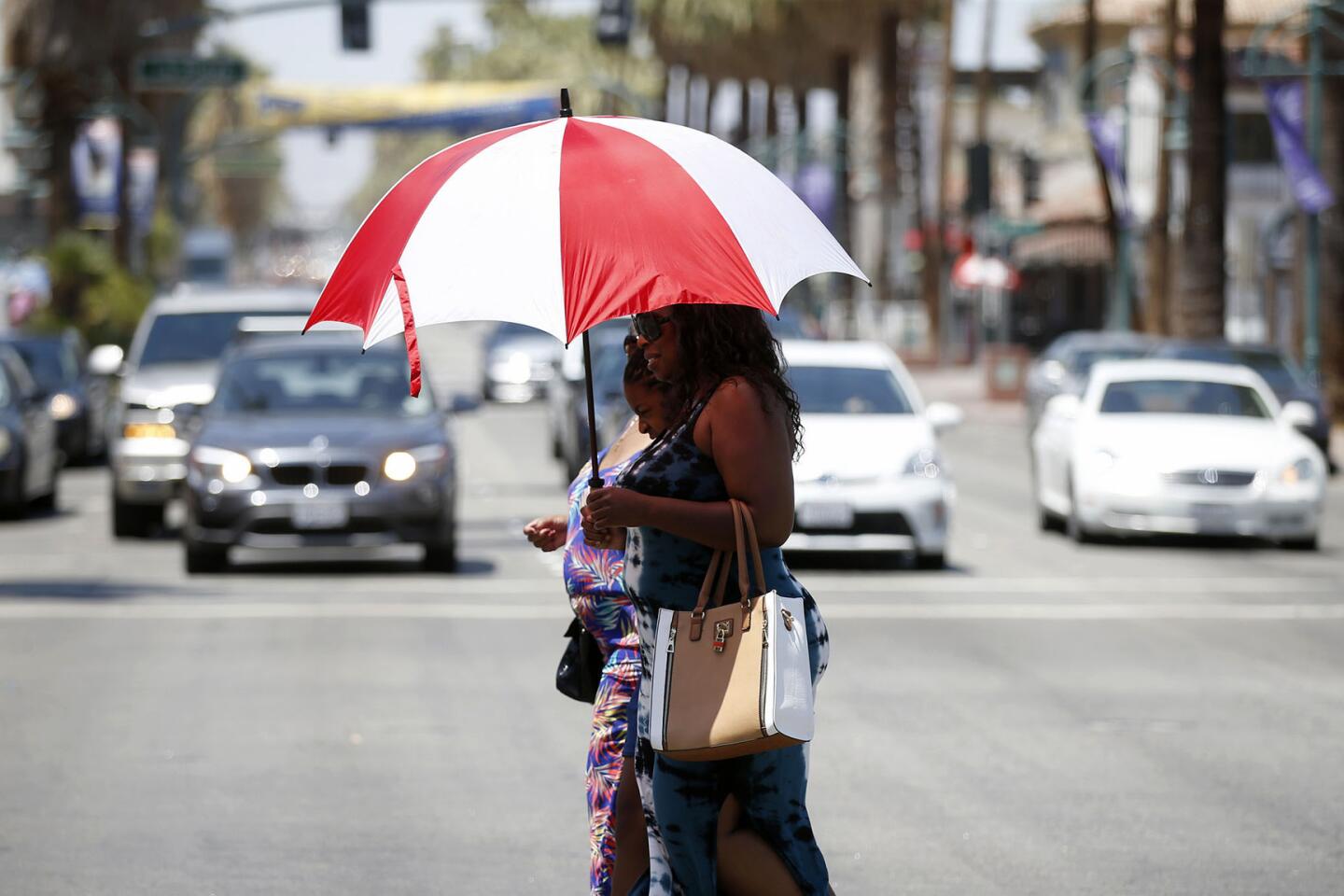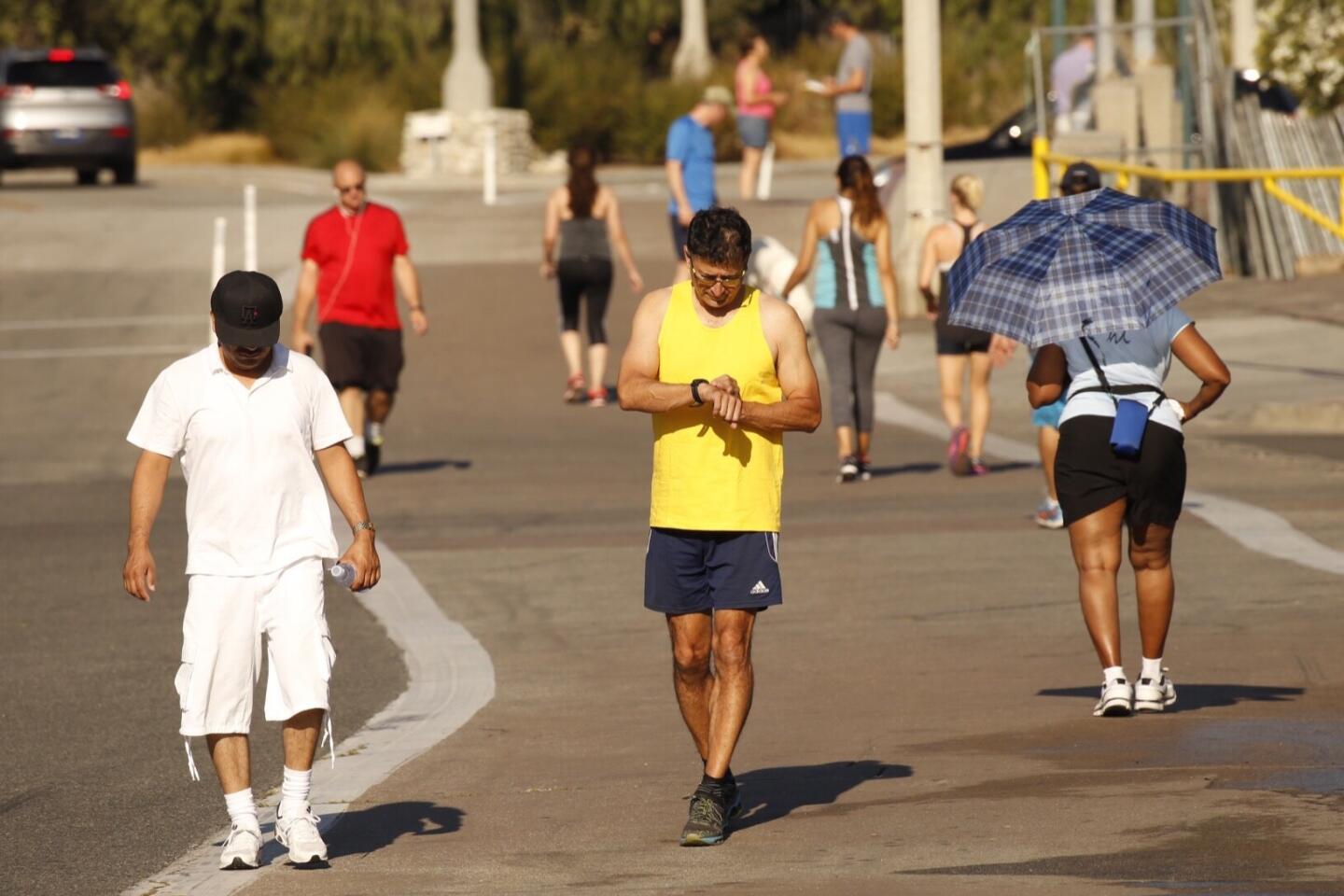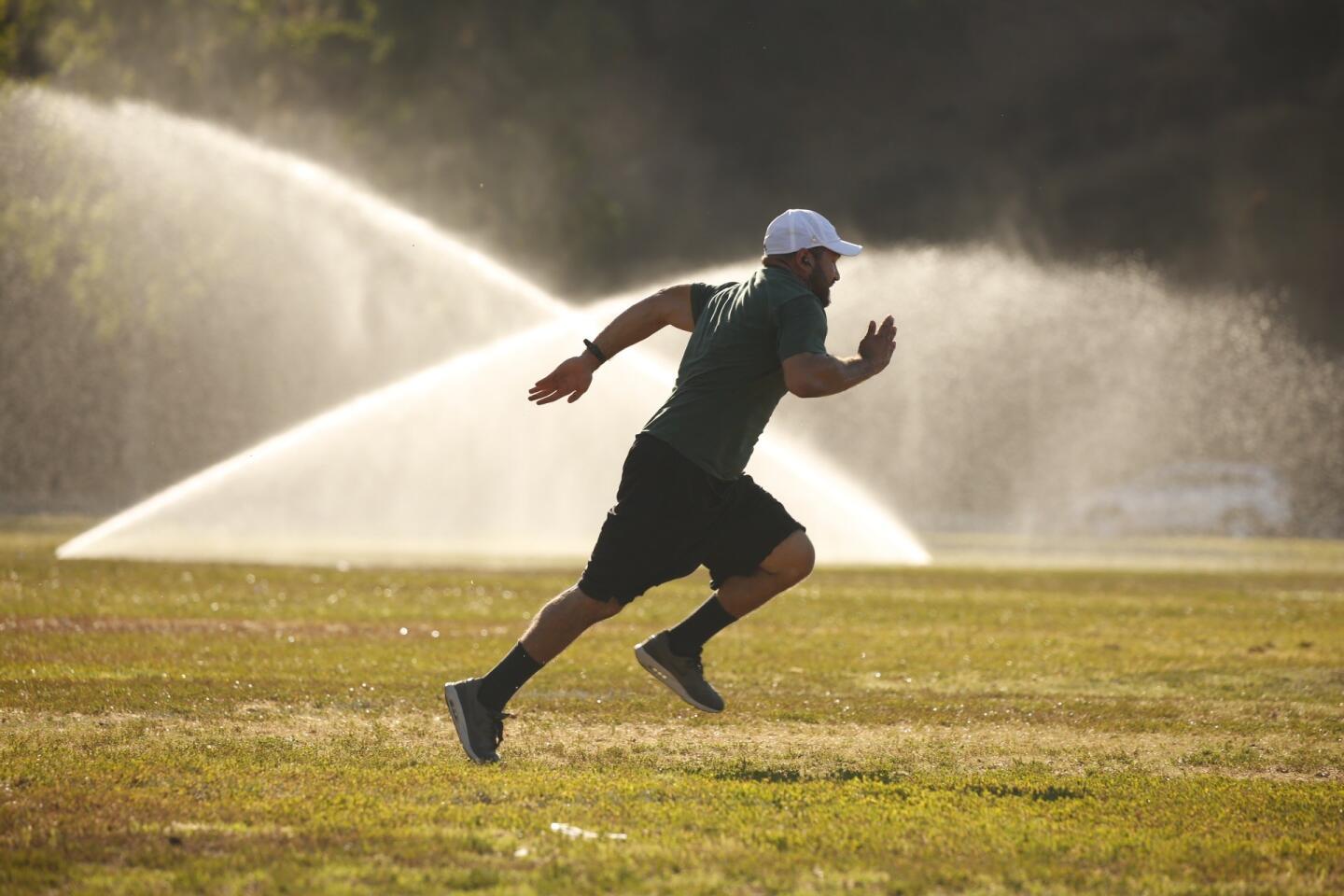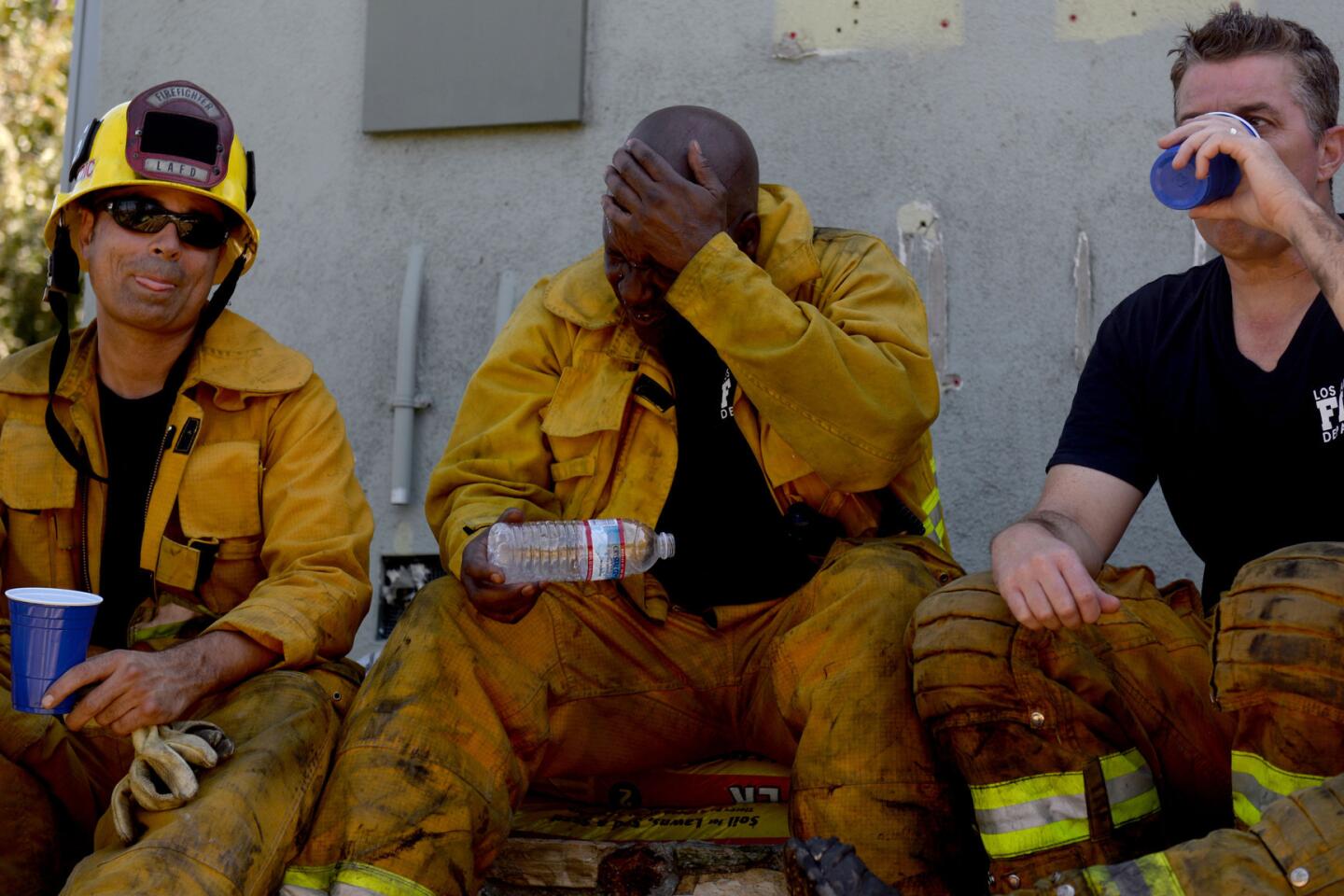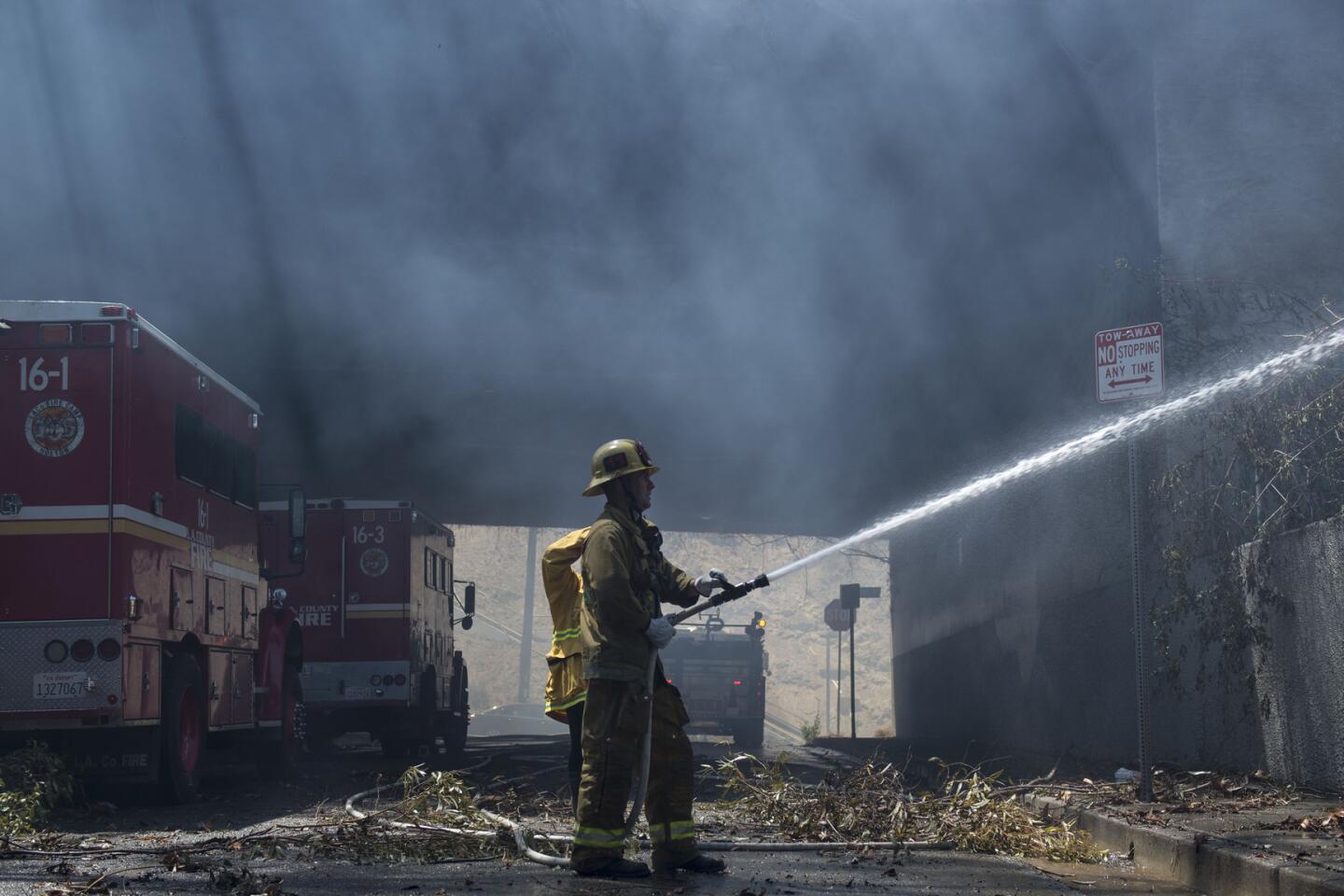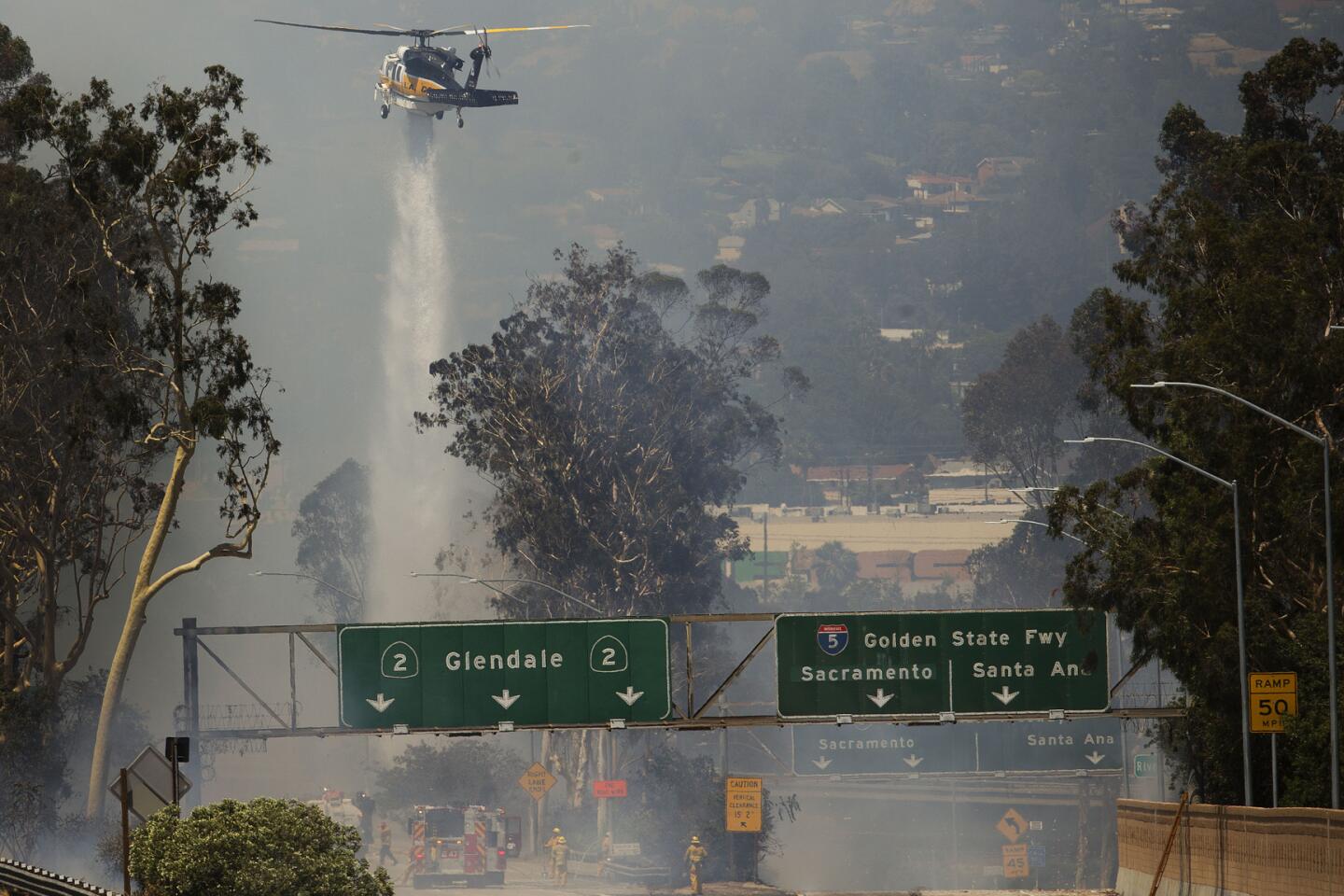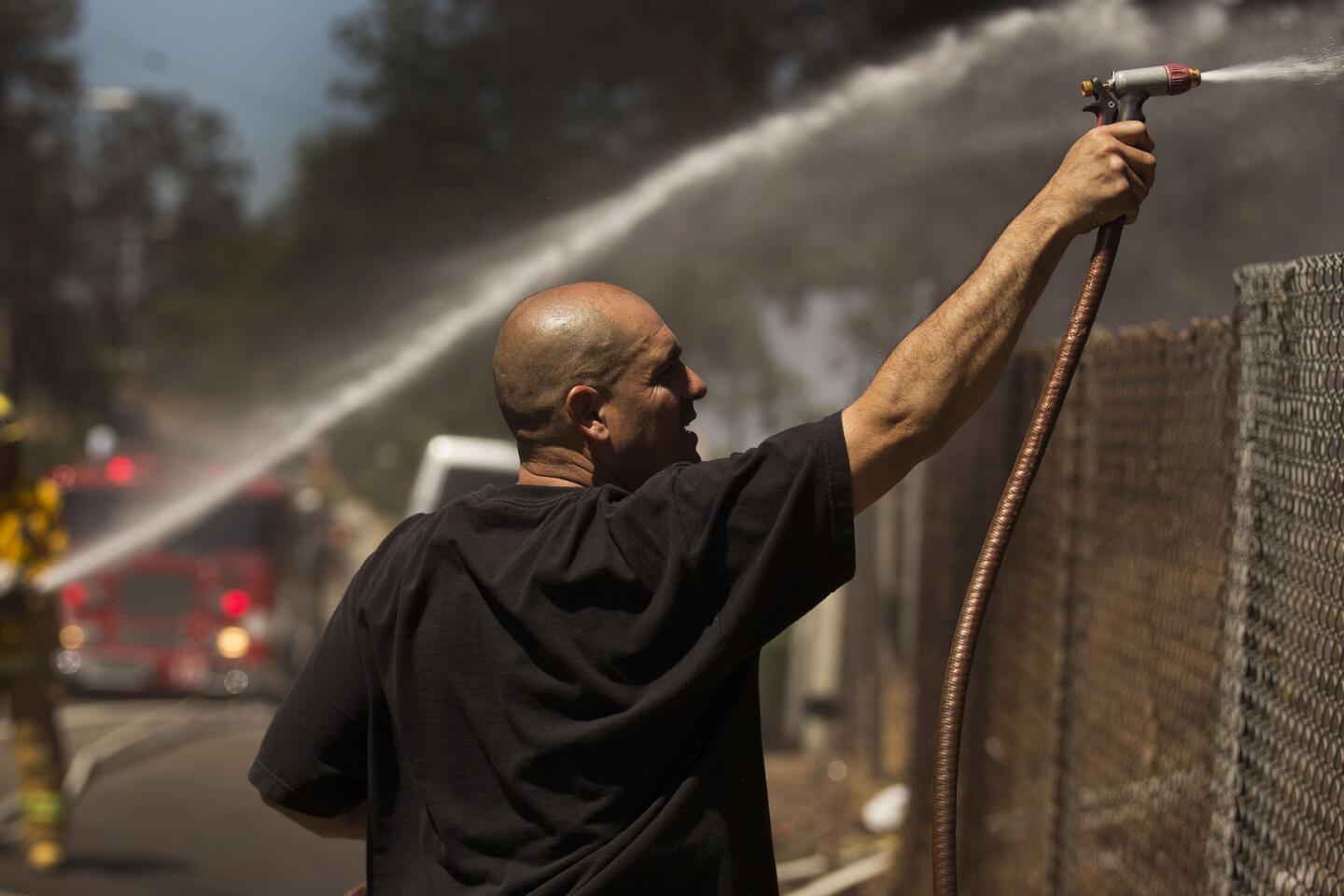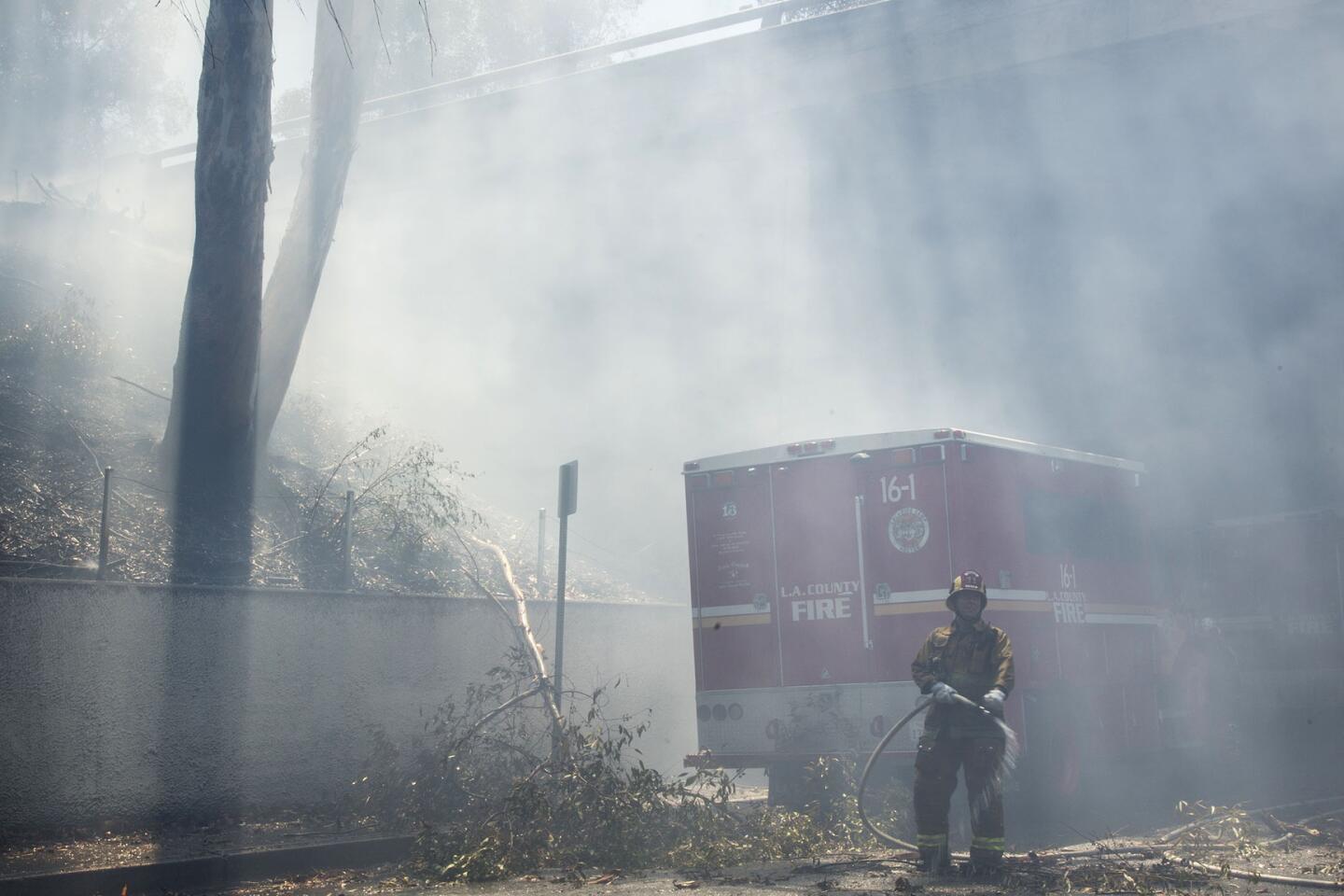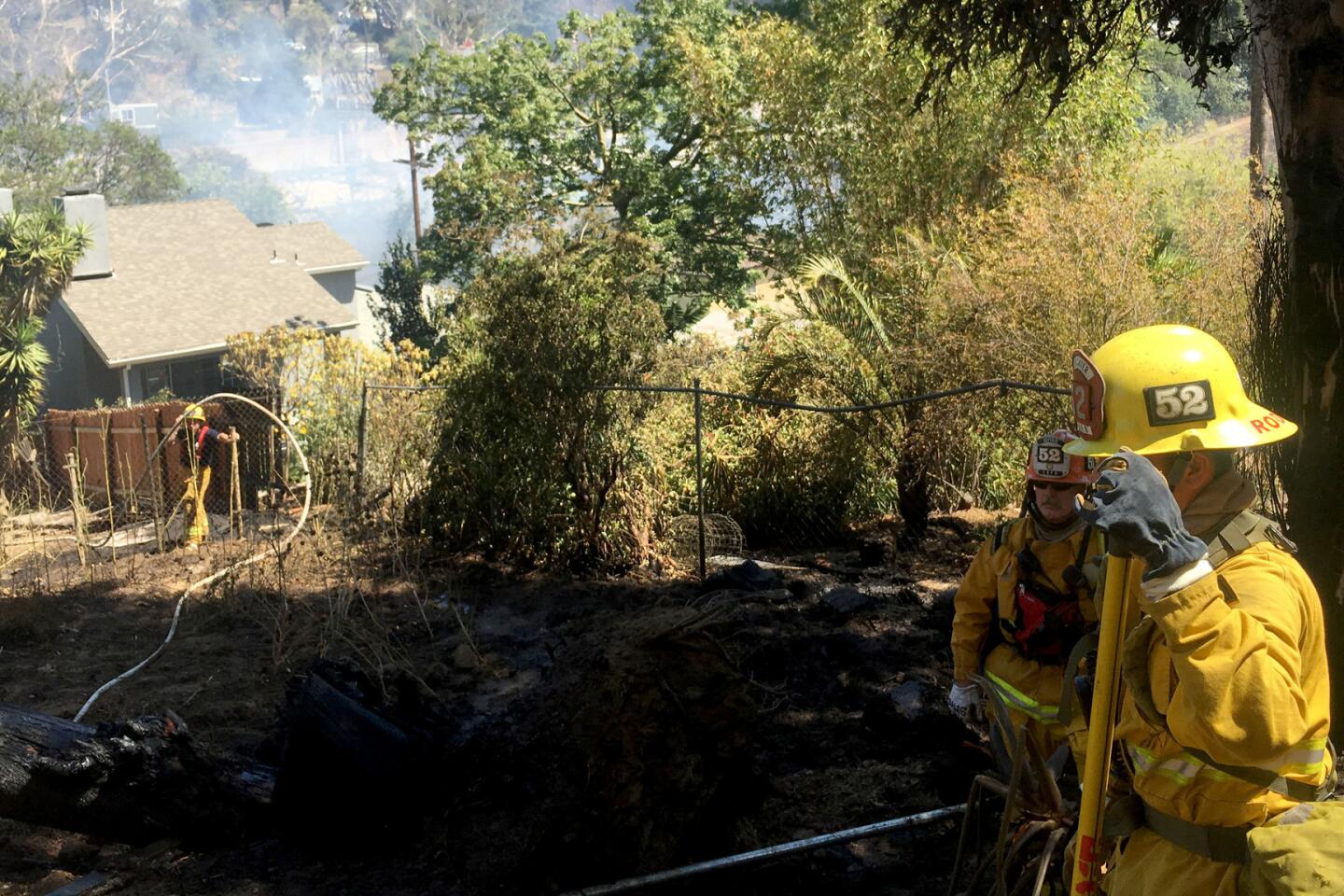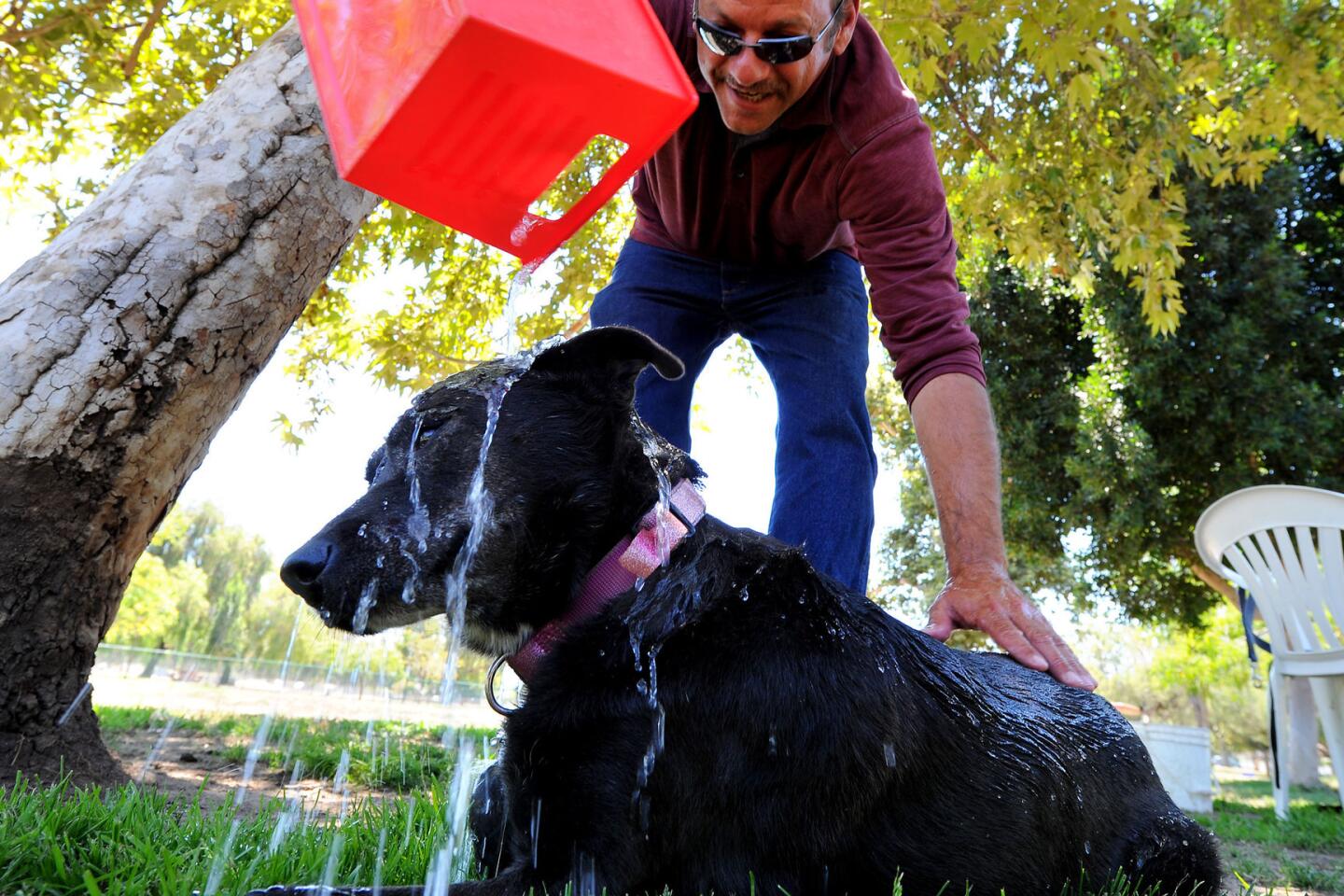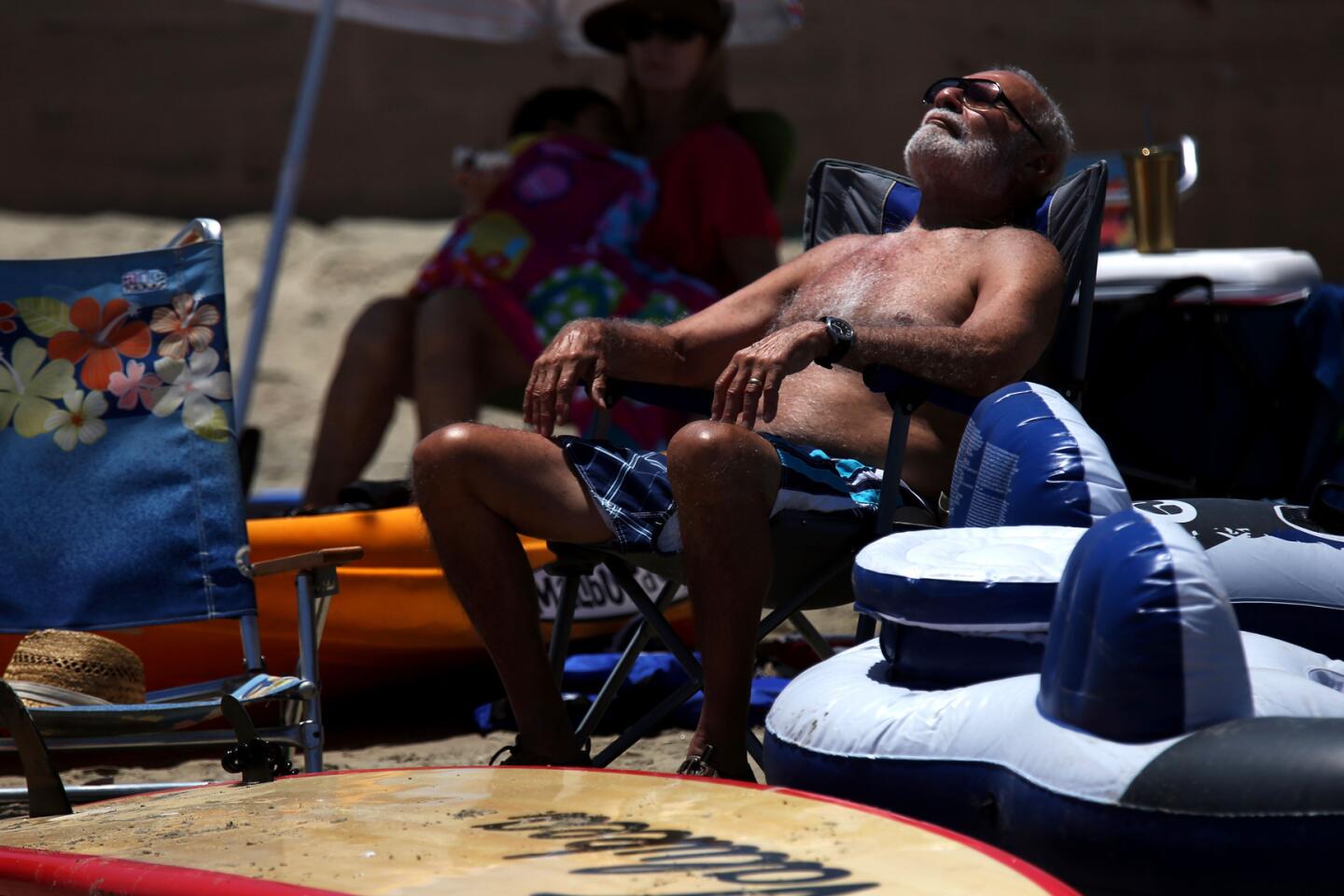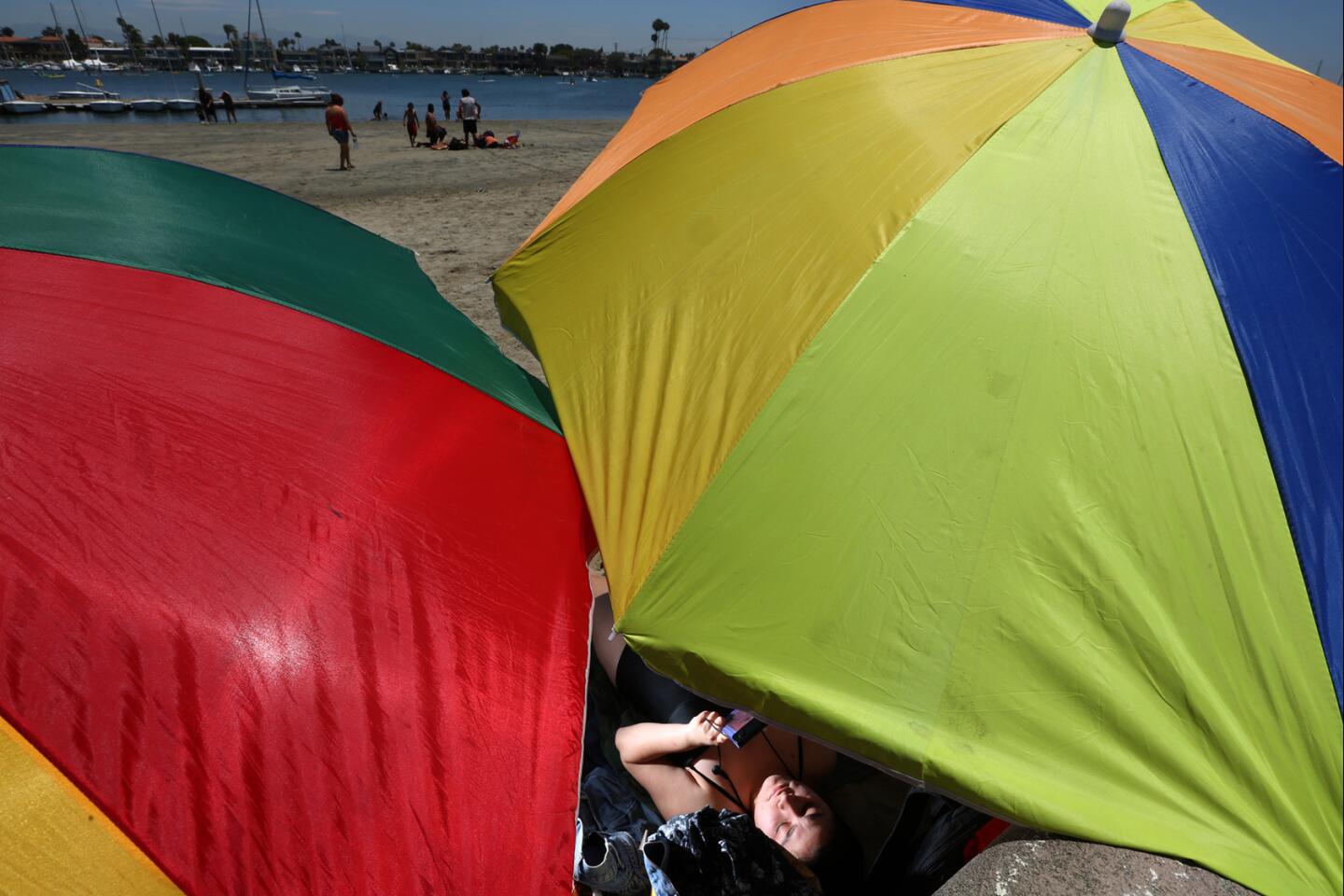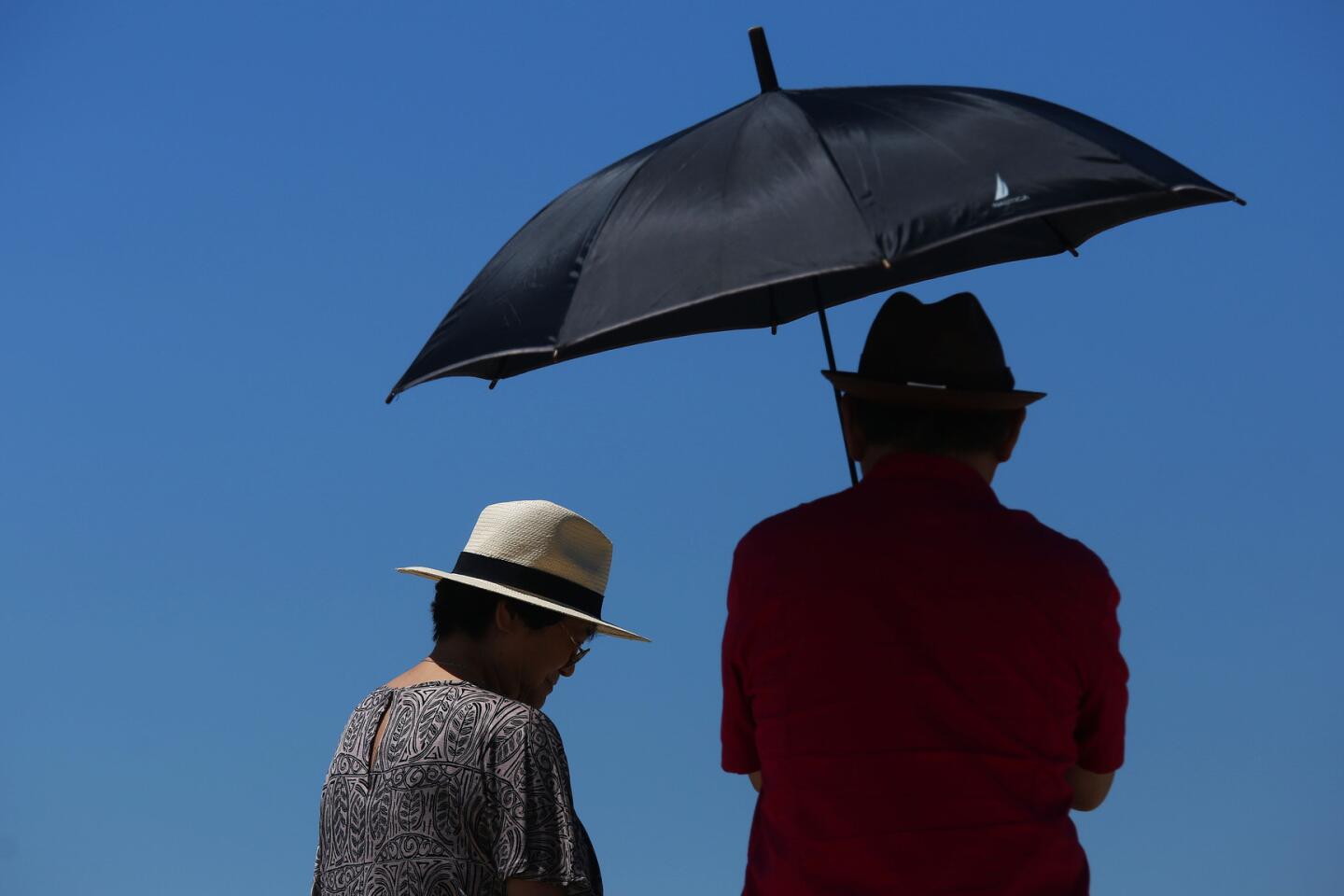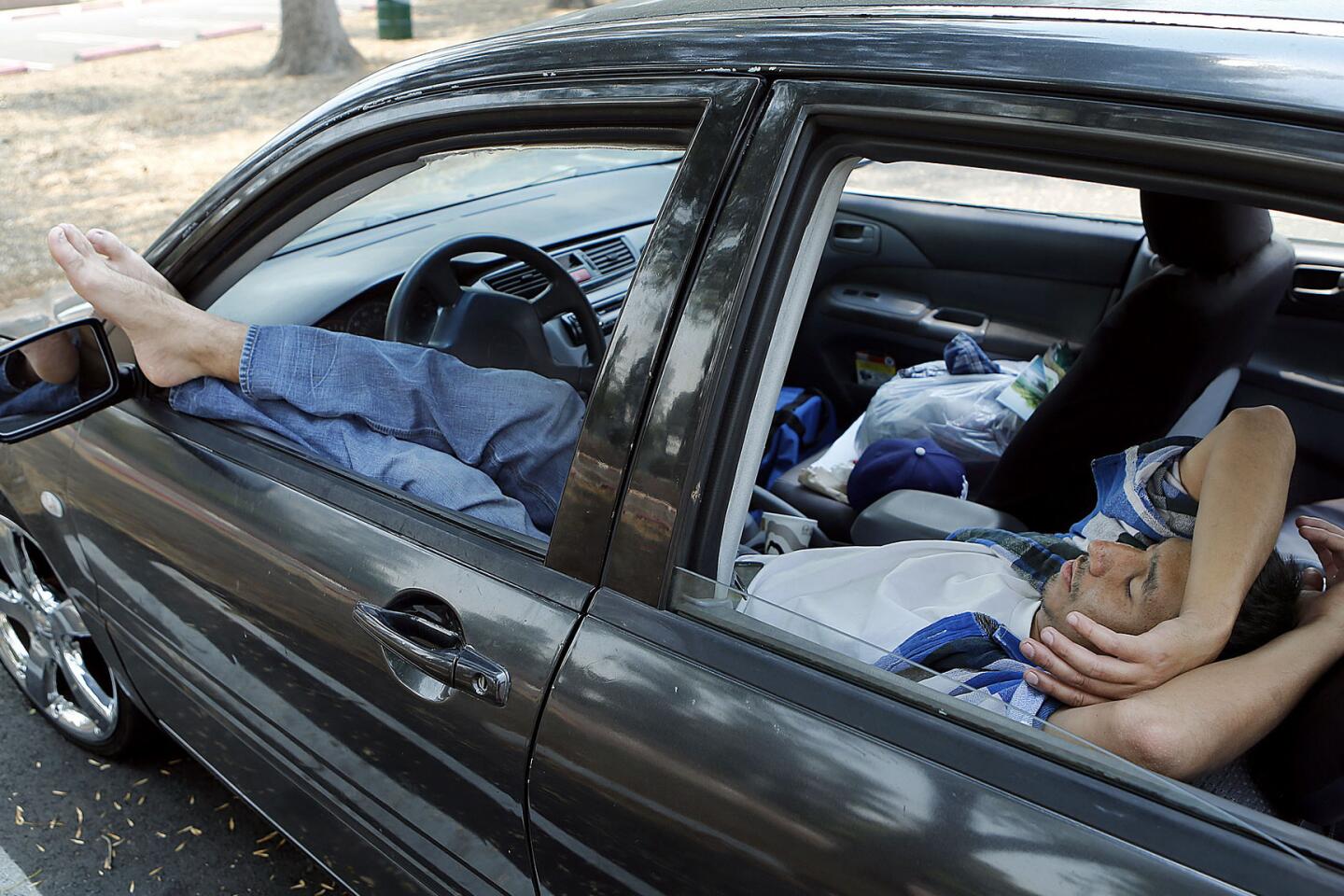Twin fires in San Gabriel Mountains force hundreds of evacuations amid brutal conditions
The battle to contain two large wildfires burning out of control above San Gabriel Valley foothill communities became something of a smoky slog Tuesday as firefighters took on the flames in rugged canyons, evacuated residents anxiously awaited word, and the surrounding region endured a bad air day.
The heat wave blitzkrieg that hit the region this week with record-breaking force eased some, but for firefighters the conditions remained brutal.
“It’s hot. It’s dry. They’re in steep, rugged, nasty terrain,” said Mark Peebles, a spokesman for the multi-agency team fighting the fires in the Angeles National Forest. “It’s extremely arduous work.”
Some of the telltale elements of a Southern California fire siege were on display. Gawkers snapping cellphone photos of flaming San Gabriel Mountains ridges, soon to be posted on Instagram. Horse owners rushing to their stables to save their beloved animals. Neighbors calmly watching smoke plumes from their yards.
More than 1,000 firefighters battled the Reservoir and Fish fires, which burned about 1.5 miles apart in the mountains above Duarte and Azusa. The blazes, which broke out Monday as temperatures hit triple digits, raged in a tinderbox region of the forest that had not burned for many years.
On Tuesday, crews began managing the fires as a single 4,900-acre conflagration called the San Gabriel Complex, which was 10% contained, authorities said.
No structures had been lost as of Tuesday, authorities said. But the fires had forced the evacuation of at least 770 homes, according to the Los Angeles County Sheriff’s Department.
Authorities urged residents of Monrovia and Bradbury to keep an eye on the news and to prepare to flee. John Tripp, deputy chief of the Los Angeles County Fire Department, advised residents to evacuate early if the flames got close, warning of clogged roadways if fire crews and evacuating residents used the same thoroughfares.
As smoke rose from mountain ridges near the tiny town of Bradbury on Tuesday, Connie Storey sat like a sentry outside the house of a neighbor who had run to the doctor – waiting and watching.
Interested in the stories shaping California? Sign up for the free Essential California newsletter »
With the sound of fire helicopters echoing, Storey, 50, checked her phone for updates on the blaze. That’s how it had been since Monday afternoon, she said, with neighbors monitoring the fire with binoculars and news updates.
Storey – who lost her house to the 2009 Station fire that tore through the San Gabriels – grew frustrated with onlookers driving through Bradbury to photograph the fire and wildlife fleeing the flames. She said she had to warn one man who was too busy trying to get the perfect shot that he didn’t see a bear coming his way.
“It’s a three-ring circus,” she said.
The Reservoir fire was reported first, about 11 a.m. Monday, at Highway 39 in the San Gabriel Mountains, apparently ignited by a car crash that killed one person, authorities said. A vehicle went over the side of the road and plunged to the bottom of a canyon near Morris Reservoir, Tripp said.
The Fish fire erupted more than an hour later near Brookridge and Opal Canyon roads in Duarte. The causes of both fires remain under investigation.

Capt. Michael McCormick of the Los Angeles County Fire Department provides an update on efforts to fight the Fish fire burning near Duarte.
About three dozen people spent Monday night at a Red Cross evacuation center in Duarte, where they were given cots to sleep on, toiletries, food and plenty of bottles of water.
“It’s better than a bed and breakfast – except the beds,” quipped Merla Canoy, who spent the night.
Rafat and Manzoor Khan, who live in the Woodbluff neighborhood of Duarte, also stayed at the shelter. Their daughter and two young grandchildren were visiting from Irvine when sheriff’s deputies knocked on their door and told them they had to leave. They packed their medications and some photo albums.
“They said to take your important things,” Rafat Khan said. “I don’t know what things are important. Everything is important.”
By Tuesday afternoon, at least 168 horses had been relocated to the Fairplex in Pomona, evacuated from stables throughout the foothills, officials said.
Andrea Brown, a horse trainer, moved her eight horses boarded at the Encanto Equestrian Center in Duarte to the Fairplex on Monday and plans to visit them every day until they can leave. She was still coughing from the smoke on Tuesday.
“All of them are happy and doing well,” she said. “They are my four-legged family.”
It was a dramatic scene Monday, she said. Brown saw smoke in the air and sped to the stables. There, she grabbed her horses’ halters and ran them to a clearing, where people with horse hauling trailers waited to take them away and firefighting helicopters landed right next to the animals.
“It was very intense, but I have to say that people really came together,” Brown said. “The neighbors brought water, cooling us down, pouring water on us as we ran with the horses.”
Mark De Yulia, a driver for Atascadero-based KC Horse Transport, spent Monday night in his truck at Santa Anita Park, ready to go in case any more horses were threatened by the fire. He was on vacation, he said, but he didn’t think about that as he spent hours hauling horses from stables in Azusa and Bradbury.
As he drove away from Rainbow Canyon Ranch, horses loaded behind him, he could see the flames shooting up the mountains near San Gabriel Canyon Road.
As the sun glowed an eerie yellow through the smoke, the horses stayed calm.
Times staff writers Joseph Serna and Veronica Rocha contributed to this report.
ALSO
122 degrees: Palm Springs breaks record — and it could get hotter
Two O.C. men convicted of conspiring to fight with Islamic State
Snowpack unlikely to recover from drought until 2019, study finds
More to Read
Sign up for Essential California
The most important California stories and recommendations in your inbox every morning.
You may occasionally receive promotional content from the Los Angeles Times.
